Tag #debugging
1050 papers:
 ASPLOS-2020-0001SWWKK #detection #memory management #persistent #source code
ASPLOS-2020-0001SWWKK #detection #memory management #persistent #source code- Cross-Failure Bug Detection in Persistent Memory Programs (SL0, KS, YW, TFW, AK, SK), pp. 1187–1202.
 CGO-2020-VermaKPR #concurrent #interactive #memory management #modelling #source code
CGO-2020-VermaKPR #concurrent #interactive #memory management #modelling #source code- Interactive debugging of concurrent programs under relaxed memory models (AV, PKK, AP, SR), pp. 68–80.
 ICPC-2019-FontanaP #sequence #using #visualisation
ICPC-2019-FontanaP #sequence #using #visualisation- Visualizing sequences of debugging sessions using swarm debugging (EAF, FP), pp. 139–143.
 ICPC-2019-IslamMRS #replication
ICPC-2019-IslamMRS #replication- Comparing bug replication in regular and micro code clones (JFI, MM, CKR, KAS), pp. 81–92.
 ICSME-2019-CokerWGBS #framework
ICSME-2019-CokerWGBS #framework- A Qualitative Study on Framework Debugging (ZC, DGW, CLG, CB, JS), pp. 568–579.
 ICSME-2019-GaoJJ00G #contract #detection #named
ICSME-2019-GaoJJ00G #contract #detection #named- SmartEmbed: A Tool for Clone and Bug Detection in Smart Contracts through Structural Code Embedding (ZG, VJ, LJ, XX0, DL0, JCG), pp. 394–397.
 ICSME-2019-Khalil #performance #policy
ICSME-2019-Khalil #performance #policy- Studying the Impact of Policy Changes on Bug Handling Performance (ZAK), pp. 590–594.
 ICSME-2019-KhalilCMDQ #analysis #eclipse
ICSME-2019-KhalilCMDQ #analysis #eclipse- A Longitudinal Analysis of Bug Handling Across Eclipse Releases (ZAK, EC, TM, LD, CQ), pp. 1–12.
 ICSME-2019-MondalRRS #adaptation
ICSME-2019-MondalRRS #adaptation- Investigating Context Adaptation Bugs in Code Clones (MM, BR, CKR, KAS), pp. 157–168.
 ICSME-2019-RwemalikaKPTL #difference #industrial
ICSME-2019-RwemalikaKPTL #difference #industrial- An Industrial Study on the Differences between Pre-Release and Post-Release Bugs (RR, MK, MP, YLT, PL), pp. 92–102.
 ICSME-2019-SarkarRB #predict
ICSME-2019-SarkarRB #predict- Improving Bug Triaging with High Confidence Predictions at Ericsson (AS, PCR, BB), pp. 81–91.
 ICSME-2019-ShimariI0I #execution #java #using
ICSME-2019-ShimariI0I #execution #java #using- Near-Omniscient Debugging for Java Using Size-Limited Execution Trace (KS, TI, TK0, KI), pp. 398–401.
 ICSME-2019-ZimmermannA #case study #open source
ICSME-2019-ZimmermannA #case study #open source- Impact of Switching Bug Trackers: A Case Study on a Medium-Sized Open Source Project (TZ, ACA), pp. 13–23.
 MSR-2019-RaduN #dataset #non-functional
MSR-2019-RaduN #dataset #non-functional- A dataset of non-functional bugs (AR, SN), pp. 399–403.
 MSR-2019-RiganelliMMM #android #benchmark #metric
MSR-2019-RiganelliMMM #android #benchmark #metric- A benchmark of data loss bugs for Android apps (OR, MM, DM, LM), pp. 582–586.
 SANER-2019-ChaparroFSM #detection #query
SANER-2019-ChaparroFSM #detection #query- Reformulating Queries for Duplicate Bug Report Detection (OC, JMF, US, AM), pp. 218–229.
 SANER-2019-DelfimUMM #automation #benchmark #java #metric #named #program repair
SANER-2019-DelfimUMM #automation #benchmark #java #metric #named #program repair- BEARS: An Extensible Java Bug Benchmark for Automatic Program Repair Studies (FM, SU, MdAM, MM), pp. 468–478.
 SANER-2019-IslamMR #case study #comparative
SANER-2019-IslamMR #case study #comparative- A Comparative Study of Software Bugs in Micro-clones and Regular Code Clones (JFI, MM, CKR), pp. 73–83.
 SANER-2019-LiuK0B #named #semantics #static analysis
SANER-2019-LiuK0B #named #semantics #static analysis- AVATAR: Fixing Semantic Bugs with Fix Patterns of Static Analysis Violations (KL0, AK, DK0, TFB), pp. 456–467.
 SANER-2019-LuC00 #comprehension #distributed
SANER-2019-LuC00 #comprehension #distributed- Understanding Node Change Bugs for Distributed Systems (JL, LC, LL0, XF0), pp. 399–410.
 SANER-2019-ZeroualiMRG #on the
SANER-2019-ZeroualiMRG #on the- On the Relation between Outdated Docker Containers, Severity Vulnerabilities, and Bugs (AZ, TM, GR, JMGB), pp. 491–501.
 ICML-2019-OdenaOAG #fuzzing #named #network
ICML-2019-OdenaOAG #fuzzing #named #network- TensorFuzz: Debugging Neural Networks with Coverage-Guided Fuzzing (AO, CO, DA, IJG), pp. 4901–4911.
 MoDELS-2019-PouraliA19a #approach #challenge #editing #modelling #uml
MoDELS-2019-PouraliA19a #approach #challenge #editing #modelling #uml- A Focus+Context Approach to Alleviate Cognitive Challenges of Editing and Debugging UML Models (PP, JMA), pp. 183–193.
 ECOOP-2019-LopezSMBS #idea #multi #nondeterminism #source code
ECOOP-2019-LopezSMBS #idea #multi #nondeterminism #source code- Multiverse Debugging: Non-Deterministic Debugging for Non-Deterministic Programs (Brave New Idea Paper) (CTL, RGS, SM, EGB, CS), p. 30.
 Onward-2019-AcharDL #distributed #interactive #named
Onward-2019-AcharDL #distributed #interactive #named- GoTcha: an interactive debugger for GoT-based distributed systems (RA, PD, CVL), pp. 94–110.
 OOPSLA-2019-BaderSP0 #automation #learning #named
OOPSLA-2019-BaderSP0 #automation #learning #named- Getafix: learning to fix bugs automatically (JB, AS, MP, SC0), p. 27.
 OOPSLA-2019-LiWNN #detection #learning #network #representation
OOPSLA-2019-LiWNN #detection #learning #network #representation- Improving bug detection via context-based code representation learning and attention-based neural networks (YL, SW0, TNN, SVN), p. 30.
 OOPSLA-2019-SurbatovichJL
OOPSLA-2019-SurbatovichJL - I/O dependent idempotence bugs in intermittent systems (MS, LJ, BL), p. 31.
 OOPSLA-2019-WangZS #contract #detection #nondeterminism
OOPSLA-2019-WangZS #contract #detection #nondeterminism- Detecting nondeterministic payment bugs in Ethereum smart contracts (SW, CZ, ZS), p. 29.
 PLDI-2019-LiLCGL #automation #distributed #named
PLDI-2019-LiLCGL #automation #distributed #named- DFix: automatically fixing timing bugs in distributed systems (GL, HL, XC, HSG, SL), pp. 994–1009.
 ASE-2019-ChenD0Q #comprehension #scalability
ASE-2019-ChenD0Q #comprehension #scalability- Understanding Exception-Related Bugs in Large-Scale Cloud Systems (HC, WD, YJ0, FQ), pp. 339–351.
 ASE-2019-JiaLYLWLL #detection #fault #specification
ASE-2019-JiaLYLWLL #detection #fault #specification- Detecting Error-Handling Bugs without Error Specification Input (ZJ, SL, TY, XL, JW, XL, YL), pp. 213–225.
 ASE-2019-JiangWXCZ #empirical #fault #locality #statistics
ASE-2019-JiangWXCZ #empirical #fault #locality #statistics- Combining Spectrum-Based Fault Localization and Statistical Debugging: An Empirical Study (JJ, RW, YX, XC, LZ), pp. 502–514.
 ASE-2019-RahatFT #android #empirical #named
ASE-2019-RahatFT #android #empirical #named- OAUTHLINT: An Empirical Study on OAuth Bugs in Android Applications (TAR, YF, YT), pp. 293–304.
 ASE-2019-StepanovAB #compilation #how #named
ASE-2019-StepanovAB #compilation #how #named- ReduKtor: How We Stopped Worrying About Bugs in Kotlin Compiler (DS, MA, MAB), pp. 317–326.
 ASE-2019-Yu19a #comprehension #crowdsourcing #generative
ASE-2019-Yu19a #comprehension #crowdsourcing #generative- Crowdsourced Report Generation via Bug Screenshot Understanding (SY), pp. 1277–1279.
 ESEC-FSE-2019-ChaparroBLMMPPN #quality
ESEC-FSE-2019-ChaparroBLMMPPN #quality- Assessing the quality of the steps to reproduce in bug reports (OC, CBC, JL, KM, AM, MDP, DP, VN), pp. 86–96.
 ESEC-FSE-2019-ChenHSZHZ #compilation #effectiveness #generative
ESEC-FSE-2019-ChenHSZHZ #compilation #effectiveness #generative- Compiler bug isolation via effective witness test program generation (JC, JH, PS, LZ, DH, LZ0), pp. 223–234.
 ESEC-FSE-2019-CotroneoSLNB #analysis #empirical #framework #how #in the cloud #platform
ESEC-FSE-2019-CotroneoSLNB #analysis #empirical #framework #how #in the cloud #platform- How bad can a bug get? an empirical analysis of software failures in the OpenStack cloud computing platform (DC, LDS, PL, RN, NB), pp. 200–211.
 ESEC-FSE-2019-DurieuxDMA #empirical #java #overview #program repair #scalability #tool support
ESEC-FSE-2019-DurieuxDMA #empirical #java #overview #program repair #scalability #tool support- Empirical review of Java program repair tools: a large-scale experiment on 2, 141 bugs and 23, 551 repair attempts (TD, FM, MM, RA), pp. 302–313.
 ESEC-FSE-2019-DuttaZHM #named #probability #programming #reduction #testing
ESEC-FSE-2019-DuttaZHM #named #probability #programming #reduction #testing- Storm: program reduction for testing and debugging probabilistic programming systems (SD, WZ, ZH, SM), pp. 729–739.
 ESEC-FSE-2019-He19a #comprehension #detection #fault #performance
ESEC-FSE-2019-He19a #comprehension #detection #fault #performance- Tuning backfired? not (always) your fault: understanding and detecting configuration-related performance bugs (HH), pp. 1229–1231.
 ESEC-FSE-2019-IslamNPR #learning
ESEC-FSE-2019-IslamNPR #learning- A comprehensive study on deep learning bug characteristics (MJI, GN, RP, HR), pp. 510–520.
 ESEC-FSE-2019-KimHK #composition #detection #effectiveness #refinement #summary #testing
ESEC-FSE-2019-KimHK #composition #detection #effectiveness #refinement #summary #testing- Target-driven compositional concolic testing with function summary refinement for effective bug detection (YK, SH, MK), pp. 16–26.
 ESEC-FSE-2019-KoyuncuLB0MKT #named #program repair
ESEC-FSE-2019-KoyuncuLB0MKT #named #program repair- iFixR: bug report driven program repair (AK, KL0, TFB, DK0, MM, JK, YLT), pp. 314–325.
 ESEC-FSE-2019-Mitropoulos #evolution #program analysis
ESEC-FSE-2019-Mitropoulos #evolution #program analysis- Employing different program analysis methods to study bug evolution (CM), pp. 1202–1204.
 ESEC-FSE-2019-MordahlOKWG #detection #empirical #tool support #variability
ESEC-FSE-2019-MordahlOKWG #detection #empirical #tool support #variability- An empirical study of real-world variability bugs detected by variability-oblivious tools (AM, JO, UK, SW, PG), pp. 50–61.
 ESEC-FSE-2019-SuiZZZX #analysis #android #difference #effectiveness #reduction #user interface
ESEC-FSE-2019-SuiZZZX #analysis #android #difference #effectiveness #reduction #user interface- Event trace reduction for effective bug replay of Android apps via differential GUI state analysis (YS, YZ0, WZ, MZ, JX), pp. 1095–1099.
 ESEC-FSE-2019-WenWLTXCS #commit #correlation
ESEC-FSE-2019-WenWLTXCS #commit #correlation- Exploring and exploiting the correlations between bug-inducing and bug-fixing commits (MW, RW, YL, YT, XX, SCC, ZS), pp. 326–337.
 ESEC-FSE-2019-ZhangSYZPS #comprehension #model checking
ESEC-FSE-2019-ZhangSYZPS #comprehension #model checking- Finding and understanding bugs in software model checkers (CZ, TS, YY, FZ, GP, ZS), pp. 763–773.
- ICSE-2019-AmarR #fault #locality #mining #predict
- Mining historical test logs to predict bugs and localize faults in the test logs (AA, PCR), pp. 140–151.
- ICSE-2019-PhamLQT #detection #learning #library #locality #named #validation
- CRADLE: cross-backend validation to detect and localize bugs in deep learning libraries (HVP, TL, WQ, LT0), pp. 1027–1038.
- ICSE-2019-YangZSS00X #difference #random #test coverage #testing #tool support
- Hunting for bugs in code coverage tools via randomized differential testing (YY, YZ, HS, ZS, ZZ0, LX0, BX), pp. 488–498.
- ICSE-2019-ZhaoYSLZZH #android #automation #named
- ReCDroid: automatically reproducing Android application crashes from bug reports (YZ, TY, TS, YL0, WZ, JZ, WGJH), pp. 128–139.
 ASPLOS-2019-CasiasATSW #pattern matching
ASPLOS-2019-CasiasATSW #pattern matching- Debugging Support for Pattern-Matching Languages and Accelerators (MC, KA, TTI, KS, WW), pp. 1073–1086.
 ASPLOS-2019-GanZHCHPD #big data #complexity #named #performance
ASPLOS-2019-GanZHCHPD #big data #complexity #named #performance- Seer: Leveraging Big Data to Navigate the Complexity of Performance Debugging in Cloud Microservices (YG0, YZ, KH, DC, YH, MP, CD), pp. 19–33.
 ASPLOS-2019-TuLSZ #comprehension #concurrent
ASPLOS-2019-TuLSZ #comprehension #concurrent- Understanding Real-World Concurrency Bugs in Go (TT, XL, LS, YZ), pp. 865–878.
 ICST-2019-GyimesiVSMBF0 #benchmark #javascript #metric #named
ICST-2019-GyimesiVSMBF0 #benchmark #javascript #metric #named- BugsJS: a Benchmark of JavaScript Bugs (PG, BV, AS0, DM, ÁB, RF, AM0), pp. 90–101.
 ICST-2019-TannoI #interactive #realtime #source code
ICST-2019-TannoI #interactive #realtime #source code- Suspend-Less Debugging for Interactive and/or Realtime Programs (HT, HI), pp. 194–205.
 ICPC-2018-GaoMSSZMMDDZC #c #c++ #detection #named
ICPC-2018-GaoMSSZMMDDZC #c #c++ #detection #named- CoBOT: static C/C++ bug detection in the presence of incomplete code (QG, SM, SS, YS, GZ, LM, XM, FD, XD, SZ, XC), pp. 385–388.
 ICPC-2018-LiJLRL #summary
ICPC-2018-LiJLRL #summary- Unsupervised deep bug report summarization (XL, HJ, DL, ZR, GL), pp. 144–155.
 ICPC-2018-ScarsbrookKR0 #javascript #named #scalability #visualisation
ICPC-2018-ScarsbrookKR0 #javascript #named #scalability #visualisation- MetropolJS: visualizing and debugging large-scale javascript program structure with treemaps (JDS, RKLK, BR, DB0), pp. 389–392.
 ICPC-2018-TakahashiSHS #case study #locality #smell #using
ICPC-2018-TakahashiSHS #case study #locality #smell #using- A preliminary study on using code smells to improve bug localization (AT, NSL, SH, MS), pp. 324–327.
 ICPC-2018-ZhangLXJS #recommendation
ICPC-2018-ZhangLXJS #recommendation- Recommending frequently encountered bugs (YZ0, DL0, XX0, JJ0, JS), pp. 120–131.
 ICPC-2018-ZhouLSG #repository
ICPC-2018-ZhouLSG #repository- Recognizing software bug-specific named entity in software bug repository (CZ, BL0, XS, HG), pp. 108–119.
 ICSME-2018-LawrieB #locality #on the
ICSME-2018-LawrieB #locality #on the- On the Value of Bug Reports for Retrieval-Based Bug Localization (DJL, DWB), pp. 524–528.
 ICSME-2018-LebeufVHS #comprehension #design #distributed #optimisation
ICSME-2018-LebeufVHS #comprehension #design #distributed #optimisation- Understanding, Debugging, and Optimizing Distributed Software Builds: A Design Study (CL, EV, KH, MADS), pp. 496–507.
 ICSME-2018-MillsPPBH #locality #question
ICSME-2018-MillsPPBH #locality #question- Are Bug Reports Enough for Text Retrieval-Based Bug Localization? (CM, JP, EP, GB, SH), pp. 381–392.
 ICSME-2018-WangK #concept #open source #replication
ICSME-2018-WangK #concept #open source #replication- A Conceptual Replication Study on Bugs that Get Fixed in Open Source Software (HW, HHK), pp. 299–310.
 ICSME-2018-WangMZ #empirical #multi
ICSME-2018-WangMZ #empirical #multi- An Empirical Study of Multi-entity Changes in Real Bug Fixes (YW, NM, HZ), pp. 287–298.
 MSR-2018-0002LM08 #information management #locality #requirements #traceability
MSR-2018-0002LM08 #information management #locality #requirements #traceability- Analyzing requirements and traceability information to improve bug localization (MR0, DL0, PM), pp. 442–453.
 MSR-2018-AfzalG #case study #ide #using
MSR-2018-AfzalG #case study #ide #using- A study on the use of IDE features for debugging (AA, CLG), pp. 114–117.
 MSR-2018-BellmanSB #analysis #developer #ide #timeline #visual notation
MSR-2018-BellmanSB #analysis #developer #ide #timeline #visual notation- Studying developer build issues and debugger usage via timeline analysis in visual studio IDE (CB, AS, OB), pp. 106–109.
 MSR-2018-SahaLLYP #dataset #java #scalability
MSR-2018-SahaLLYP #dataset #java #scalability- Bugs.jar: a large-scale, diverse dataset of real-world Java bugs (RKS, YL, WL, HY, MRP), pp. 10–13.
 MSR-2018-Soto-ValeroBB #analysis #behaviour #detection #process
MSR-2018-Soto-ValeroBB #analysis #behaviour #detection #process- Detection and analysis of behavioral T-patterns in debugging activities (CSV, JB, BB), pp. 110–113.
 SANER-2018-PascarellaPB #predict
SANER-2018-PascarellaPB #predict- Re-evaluating method-level bug prediction (LP, FP, AB), pp. 592–601.
 SANER-2018-SobreiraDDMM #dataset #fault
SANER-2018-SobreiraDDMM #dataset #fault- Dissection of a bug dataset: Anatomy of 395 patches from Defects4J (VS, TD, FM, MM, MdAM), pp. 130–140.
 SANER-2018-SotoG #predict #probability #using
SANER-2018-SotoG #predict #probability #using- Using a probabilistic model to predict bug fixes (MS, CLG), pp. 221–231.
 CIKM-2018-LoyolaGS #learning #locality #rank
CIKM-2018-LoyolaGS #learning #locality #rank- Bug Localization by Learning to Rank and Represent Bug Inducing Changes (PL, KG, FS), pp. 657–665.
 MoDELS-2018-ArcegaFC #algorithm #configuration management #locality #modelling #runtime
MoDELS-2018-ArcegaFC #algorithm #configuration management #locality #modelling #runtime- Evolutionary Algorithm for Bug Localization in the Reconfigurations of Models at Runtime (LA, JF, CC), pp. 90–100.
 OOPSLA-2018-PradelS #approach #detection #learning #named
OOPSLA-2018-PradelS #approach #detection #learning #named- DeepBugs: a learning approach to name-based bug detection (MP, KS), p. 25.
 PLDI-2018-LiuH #analysis #concurrent #difference #named #parallel #performance
PLDI-2018-LiuH #analysis #concurrent #difference #named #parallel #performance- D4: fast concurrency debugging with parallel differential analysis (BL, JH0), pp. 359–373.
 PLDI-2018-VilkB #automation #memory management #named #web
PLDI-2018-VilkB #automation #memory management #named #web- BLeak: automatically debugging memory leaks in web applications (JV, EDB), pp. 15–29.
 POPL-2018-MajumdarN #effectiveness #question #random testing #testing #why
POPL-2018-MajumdarN #effectiveness #question #random testing #testing #why- Why is random testing effective for partition tolerance bugs? (RM, FN), p. 24.
 ASE-2018-Arora0IKR
ASE-2018-Arora0IKR - Replay without recording of production bugs for service oriented applications (NA, JB0, FI, GEK, BR), pp. 452–463.
 ASE-2018-HabibP18a #case study #detection #how
ASE-2018-HabibP18a #case study #detection #how- How many of all bugs do we find? a study of static bug detectors (AH, MP), pp. 317–328.
 ASE-2018-HanYL #learning #named #performance
ASE-2018-HanYL #learning #named #performance- PerfLearner: learning from bug reports to understand and generate performance test frames (XH, TY, DL0), pp. 17–28.
 ASE-2018-HuWLCH #android #how
ASE-2018-HuWLCH #android #how- A tale of two cities: how WebView induces bugs to Android applications (JH, LW, YL, SCC, HH), pp. 702–713.
 ASE-2018-Lin0TBWD #slicing
ASE-2018-Lin0TBWD #slicing- Break the dead end of dynamic slicing: localizing data and control omission bug (YL0, JS0, LT, GB, HW, JSD), pp. 509–519.
 ASE-2018-LinWLSZW #concurrent #data access #memory management #named
ASE-2018-LinWLSZW #concurrent #data access #memory management #named- PFix: fixing concurrency bugs based on memory access patterns (HL, ZW, SL, JS0, DZ, GW), pp. 589–600.
 ASE-2018-ZhouPX0LJD
ASE-2018-ZhouPX0LJD - Delta debugging microservice systems (XZ, XP0, TX, JS0, WL, CJ, DD), pp. 802–807.
 ESEC-FSE-2018-0001R #locality #query
ESEC-FSE-2018-0001R #locality #query- Improving IR-based bug localization with context-aware query reformulation (MMR0, CKR), pp. 621–632.
 ESEC-FSE-2018-BianLSH0 #detection #named
ESEC-FSE-2018-BianLSH0 #detection #named- NAR-miner: discovering negative association rules from code for bug detection (PB, BL0, WS, JH0, YC0), pp. 411–422.
 ESEC-FSE-2018-GadelhaMCN #detection #performance #towards
ESEC-FSE-2018-GadelhaMCN #detection #performance #towards- Towards counterexample-guided k-induction for fast bug detection (MYRG, FRM, LCC, DAN), pp. 765–769.
 ESEC-FSE-2018-GaoDQGW0HZW #distributed #empirical #scalability
ESEC-FSE-2018-GaoDQGW0HZW #distributed #empirical #scalability- An empirical study on crash recovery bugs in large-scale distributed systems (YG, WD, FQ, CG, DW, JW0, RH, LZ, YW), pp. 539–550.
 ESEC-FSE-2018-GulzarWK #automation #big data #data analysis #data-driven #named #scalability
ESEC-FSE-2018-GulzarWK #automation #big data #data analysis #data-driven #named #scalability- BigSift: automated debugging of big data analytics in data-intensive scalable computing (MAG, SW, MK), pp. 863–866.
 ESEC-FSE-2018-HashimotoMI #automation #semantics #source code
ESEC-FSE-2018-HashimotoMI #automation #semantics #source code- Automated patch extraction via syntax- and semantics-aware Delta debugging on source code changes (MH, AM, TI), pp. 598–609.
 ESEC-FSE-2018-LuLL0 #concurrent #in the cloud #named
ESEC-FSE-2018-LuLL0 #concurrent #in the cloud #named- CloudRaid: hunting concurrency bugs in the cloud via log-mining (JL, FL, LL0, XF0), pp. 3–14.
 ESEC-FSE-2018-MaLLZG #analysis #automation #difference #named #network
ESEC-FSE-2018-MaLLZG #analysis #automation #difference #named #network- MODE: automated neural network model debugging via state differential analysis and input selection (SM, YL, WCL, XZ, AG), pp. 175–186.
 ESEC-FSE-2018-QuerelR #modelling #named #static analysis #statistics
ESEC-FSE-2018-QuerelR #modelling #named #static analysis #statistics- WarningsGuru: integrating statistical bug models with static analysis to provide timely and specific bug warnings (LPQ, PCR), pp. 892–895.
 ESEC-FSE-2018-RoyPDH #fault #synthesis #tool support
ESEC-FSE-2018-RoyPDH #fault #synthesis #tool support- Bug synthesis: challenging bug-finding tools with deep faults (SR, AP, BDG, YH), pp. 224–234.
 ESEC-FSE-2018-Tomassi #effectiveness
ESEC-FSE-2018-Tomassi #effectiveness- Bugs in the wild: examining the effectiveness of static analyzers at finding real-world bugs (DAT), pp. 980–982.
 ESEC-FSE-2018-WoodRAM #detection #developer #speech
ESEC-FSE-2018-WoodRAM #detection #developer #speech- Detecting speech act types in developer question/answer conversations during bug repair (AW, PR, AA, CM), pp. 491–502.
 ESEC-FSE-2018-Zhou #graph
ESEC-FSE-2018-Zhou #graph- Intelligent bug fixing with software bug knowledge graph (CZ), pp. 944–947.
- ICSE-2018-BankenMG #data flow #source code
- Debugging data flows in reactive programs (HB, EM0, GG), pp. 752–763.
- ICSE-2018-BellerSSZ #behaviour #on the
- On the dichotomy of debugging behavior among programmers (MB, NS, DS, AZ), pp. 572–583.
- ICSE-2018-ChowdhuryMMGJC #automation #cyber-physical #development
- Automatically finding bugs in a commercial cyber-physical system development tool chain with SLforge (SAC, SM, SM, SG, TTJ, CC), pp. 981–992.
- ICSE-2018-GaoW #named #parallel
- MSeer: an advanced technique for locating multiple bugs in parallel (RG, WEW), p. 1064.
- ICSE-2018-HabayebMMB #markov #on the #predict #using
- On the use of hidden Markov model to predict the time to fix bugs (MH, SSM, AVM, ABB), p. 700.
- ICSE-2018-LiZdO
- Enlightened debugging (XL, SZ, Md, AO), pp. 82–92.
- ICSE-2018-MotwaniSJB #automation #program repair #question
- Do automated program repair techniques repair hard and important bugs? (MM, SS, RJ, YB), p. 25.
- ICSE-2018-VendomeGPBVP #matter #why
- To distribute or not to distribute?: why licensing bugs matter (CV, DMG, MDP, GB, MLV, DP), pp. 268–279.
- ICSE-2018-XuMZZX #probability
- Debugging with intelligence via probabilistic inference (ZX, SM, XZ0, SZ, BX), pp. 1171–1181.
- ICSE-2018-YangSLYC #case study #how #performance #web
- How not to structure your database-backed web applications: a study of performance bugs in the wild (JY, PS, SL, CY, AC), pp. 800–810.
 ASPLOS-2018-LiuWLLYT #automation #detection #named
ASPLOS-2018-LiuWLLYT #automation #detection #named- FCatch: Automatically Detecting Time-of-fault Bugs in Cloud Systems (HL, XW, GL, SL, FY, CT0), pp. 419–431.
 ASPLOS-2018-RiggerSMGM #c #execution #fault #source code
ASPLOS-2018-RiggerSMGM #c #execution #fault #source code- Sulong, and Thanks for All the Bugs: Finding Errors in C Programs by Abstracting from the Native Execution Model (MR, RS, RM, MG, HM), pp. 377–391.
 CGO-2018-0003LJZW #concurrent #distributed #graph #scalability
CGO-2018-0003LJZW #concurrent #distributed #graph #scalability- Scalable concurrency debugging with distributed graph processing (LZ0, XL, HJ0, JZ, QW), pp. 188–199.
 ICST-2018-TimperleyAKHG #detection #question #simulation
ICST-2018-TimperleyAKHG #detection #question #simulation- Crashing Simulated Planes is Cheap: Can Simulation Detect Robotics Bugs Early? (CST, AA, DSK, JMH, CLG), pp. 331–342.
 EDM-2017-VillamorR #analysis #collaboration #empirical
EDM-2017-VillamorR #analysis #collaboration #empirical- Characterizing Collaboration in the Pair Program Tracing and Debugging Eye-Tracking Experiment: A Preliminary Analysis (MV, MMTR).
 ICPC-2017-DaoZM #execution #how #locality #question
ICPC-2017-DaoZM #execution #how #locality #question- How does execution information help with information-retrieval based bug localization? (TD, LZ, NM), pp. 241–250.
 ICPC-2017-LamNNN #information retrieval #learning #locality
ICPC-2017-LamNNN #information retrieval #learning #locality- Bug localization with combination of deep learning and information retrieval (ANL, ATN0, HAN, TNN), pp. 218–229.
 ICPC-2017-MondalRS #identification
ICPC-2017-MondalRS #identification- Identifying code clones having high possibilities of containing bugs (MM, CKR, KAS), pp. 99–109.
 ICPC-2017-ZhangCJLX #automation #recommendation
ICPC-2017-ZhangCJLX #automation #recommendation- Bug report enrichment with application of automated fixer recommendation (TZ0, JC, HJ, XL, XX0), pp. 230–240.
 ICSME-2017-ChaparroFM #behaviour #locality #query #using
ICSME-2017-ChaparroFM #behaviour #locality #query #using- Using Observed Behavior to Reformulate Queries during Text Retrieval-based Bug Localization (OC, JMF, AM), pp. 376–387.
 ICSME-2017-DeshmukhMPSD #learning #retrieval #towards #using
ICSME-2017-DeshmukhMPSD #learning #retrieval #towards #using- Towards Accurate Duplicate Bug Retrieval Using Deep Learning Techniques (JD, KMA, SP, SS, ND), pp. 115–124.
 ICSME-2017-HodovanKG
ICSME-2017-HodovanKG - Coarse Hierarchical Delta Debugging (RH, ÁK0, TG), pp. 194–203.
 ICSME-2017-MondalRS #empirical
ICSME-2017-MondalRS #empirical- Bug Propagation through Code Cloning: An Empirical Study (MM, CKR, KAS), pp. 227–237.
 ICSME-2017-TerdchanakulHPM #classification #n-gram #using
ICSME-2017-TerdchanakulHPM #classification #n-gram #using- Bug or Not? Bug Report Classification Using N-Gram IDF (PT, HH, PP, KM), pp. 534–538.
 ICSME-2017-YueMW
ICSME-2017-YueMW - A Characterization Study of Repeated Bug Fixes (RY, NM, QW), pp. 422–432.
 MSR-2017-WanLXC #empirical #scalability
MSR-2017-WanLXC #empirical #scalability- Bug characteristics in blockchain systems: a large-scale empirical study (ZW, DL0, XX0, LC), pp. 413–424.
 SANER-2017-TrefferPU #database
SANER-2017-TrefferPU #database- Bringing back-in-time debugging down to the database (AT, MP, MU), pp. 521–525.
- ICFP-2017-PerezN #functional #programming #testing
- Testing and debugging functional reactive programming (IP0, HN), p. 27.
 ASE-2017-FrancoGR
ASE-2017-FrancoGR - A comprehensive study of real-world numerical bug characteristics (ADF, HG0, CRG), pp. 509–519.
 ASE-2017-Wang #javascript #nondeterminism
ASE-2017-Wang #javascript #nondeterminism- Characterizing and taming non-deterministic bugs in JavaScript applications (JW), pp. 1006–1009.
 ASE-2017-WangDGGQYW #concurrent
ASE-2017-WangDGGQYW #concurrent- A comprehensive study on real world concurrency bugs in Node.js (JW, WD, YG, CG, FQ, KY, JW0), pp. 520–531.
 ESEC-FSE-2017-BagherzadehHD #development #independence #modelling #platform #realtime
ESEC-FSE-2017-BagherzadehHD #development #independence #modelling #platform #realtime- Model-level, platform-independent debugging in the context of the model-driven development of real-time systems (MB, NH, JD), pp. 419–430.
 ESEC-FSE-2017-BohmeS0UZ #empirical #how
ESEC-FSE-2017-BohmeS0UZ #empirical #how- Where is the bug and how is it fixed? an experiment with practitioners (MB, EOS, SC0, EU, AZ), pp. 117–128.
 ESEC-FSE-2017-ChaparroLZMPMBN #detection
ESEC-FSE-2017-ChaparroLZMPMBN #detection- Detecting missing information in bug descriptions (OC, JL, FZ, LM, MDP, AM, GB, VN), pp. 396–407.
 ESEC-FSE-2017-LeeHLKJ #automation #industrial #learning
ESEC-FSE-2017-LeeHLKJ #automation #industrial #learning- Applying deep learning based automatic bug triager to industrial projects (SRL, MJH, CGL, MK, GJ), pp. 926–931.
 ESEC-FSE-2017-TianR #automation #c #fault
ESEC-FSE-2017-TianR #automation #c #fault- Automatically diagnosing and repairing error handling bugs in C (YT, BR), pp. 752–762.
 ESEC-FSE-2017-ZhouS #automation #commit #identification #security
ESEC-FSE-2017-ZhouS #automation #commit #identification #security- Automated identification of security issues from commit messages and bug reports (YZ, AS), pp. 914–919.
- ICSE-2017-GaoBB #detection #javascript
- To type or not to type: quantifying detectable bugs in JavaScript (ZG, CB, ETB), pp. 758–769.
- ICSE-2017-LinSXLD
- Feedback-based debugging (YL0, JS0, YX, YL0, JSD), pp. 393–403.
- ICSE-2017-MaCZZX #case study #correlation #developer #ecosystem #git #how #python
- How do developers fix cross-project correlated bugs?: a case study on the GitHub scientific python ecosystem (WM, LC0, XZ0, YZ, BX), pp. 381–392.
 SLE-2017-LiF #metaprogramming
SLE-2017-LiF #metaprogramming- Debugging with domain-specific events via macros (XL, MF), pp. 91–102.
 ASPLOS-2017-HuangAZ #named #performance #semantics
ASPLOS-2017-HuangAZ #named #performance #semantics- Pallas: Semantic-Aware Checking for Finding Deep Bugs in Fast Path (JH0, MAB, XZ), pp. 709–722.
 ASPLOS-2017-LiuLLLLGT #automation #concurrent #detection #distributed #named
ASPLOS-2017-LiuLLLLGT #automation #concurrent #detection #distributed #named- DCatch: Automatically Detecting Distributed Concurrency Bugs in Cloud Systems (HL, GL, JFL, JL, SL, HSG, CT0), pp. 677–691.
 FASE-2017-AraujoNN #effectiveness #on the #predict
FASE-2017-AraujoNN #effectiveness #on the #predict- On the Effectiveness of Bug Predictors with Procedural Systems: A Quantitative Study (CWA, IN, DJN), pp. 78–95.
 FASE-2017-SahaG
FASE-2017-SahaG - Selective Bisection Debugging (RS, MG), pp. 60–77.
 CAV-2017-SinghBM #detection #fault #formal method #locality #named #validation
CAV-2017-SinghBM #detection #fault #formal method #locality #named #validation- E-QED: Electrical Bug Localization During Post-silicon Validation Enabled by Quick Error Detection and Formal Methods (ES, CWB, SM), pp. 104–125.
 ICST-2017-XuLC #concurrent #data type #testing #using
ICST-2017-XuLC #concurrent #data type #testing #using- Using Delta Debugging to Minimize Stress Tests for Concurrent Data Structures (JX, YL, RHC), pp. 35–46.
 VMCAI-2017-AbalBW #abstraction #c #effectiveness #source code
VMCAI-2017-AbalBW #abstraction #c #effectiveness #source code- Effective Bug Finding in C Programs with Shape and Effect Abstractions (IA, CB, AW), pp. 34–54.
 ICPC-2016-AzadmaneshH #named
ICPC-2016-AzadmaneshH #named- InfectoMeter: A tool that helps to place bug fixes (MRA, MH), pp. 1–3.
 ICPC-2016-PetrilloSKPFG #comprehension #framework #interactive
ICPC-2016-PetrilloSKPFG #comprehension #framework #interactive- Understanding interactive debugging with Swarm Debug Infrastructure (FP, ZS, FK, MSP, CMDSF, YGG), pp. 1–4.
 ICPC-2016-TianWLG #learning #rank #recommendation
ICPC-2016-TianWLG #learning #rank #recommendation- Learning to rank for bug report assignee recommendation (YT0, DW, DL0, CLG), pp. 1–10.
 ICSME-2016-Moran #mobile #testing
ICSME-2016-Moran #mobile #testing- Improving Bug Reporting and Testing for Mobile Applications (KM), p. 620.
 ICSME-2016-PalombaZFLO #performance #predict #smell #using
ICSME-2016-PalombaZFLO #performance #predict #smell #using- Smells Like Teen Spirit: Improving Bug Prediction Performance Using the Intensity of Code Smells (FP, MZ, FAF, ADL, RO), pp. 244–255.
 ICSME-2016-XiaBLL #automation #case study #fault #harmful #locality #scalability #user study #using
ICSME-2016-XiaBLL #automation #case study #fault #harmful #locality #scalability #user study #using- “Automated Debugging Considered Harmful” Considered Harmful: A User Study Revisiting the Usefulness of Spectra-Based Fault Localization Techniques with Professionals Using Real Bugs from Large Systems (XX0, LB, DL0, SL), pp. 267–278.
 MSR-2016-DilshenerWY #roadmap
MSR-2016-DilshenerWY #roadmap- Locating bugs without looking back (TD, MW, YY), pp. 286–290.
 MSR-2016-SotoTWGL
MSR-2016-SotoTWGL - A deeper look into bug fixes: patterns, replacements, deletions, and additions (MS, FT, CPW, CLG, DL0), pp. 512–515.
 SANER-2016-IslamMR #empirical #replication
SANER-2016-IslamMR #empirical #replication- Bug Replication in Code Clones: An Empirical Study (JFI, MM, CKR), pp. 68–78.
 SANER-2016-NayrollesH #named #natural language
SANER-2016-NayrollesH #named #natural language- BUMPER: A Tool for Coping with Natural Language Searches of Millions of Bugs and Fixes (MN, AHL), pp. 649–652.
 SANER-2016-RochaVMM #empirical #recommendation
SANER-2016-RochaVMM #empirical #recommendation- An Empirical Study on Recommendations of Similar Bugs (HR, MTV, HMN, GCM), pp. 46–56.
- ICFP-2016-Ryu #javascript #web
- Journey to find bugs in JavaScript web applications in the wild (SR), p. 2.
 ECOOP-2016-TomanG #named
ECOOP-2016-TomanG #named- Staccato: A Bug Finder for Dynamic Configuration Updates (JT, DG), p. 25.
 OOPSLA-2016-BavishiPR #precise
OOPSLA-2016-BavishiPR #precise- To be precise: regression aware debugging (RB, AP, SR), pp. 897–915.
 OOPSLA-2016-SunLS #compilation
OOPSLA-2016-SunLS #compilation- Finding compiler bugs via live code mutation (CS, VL, ZS), pp. 849–863.
 OOPSLA-2016-ZuoFKXL #abstraction #automation #refinement #statistics
OOPSLA-2016-ZuoFKXL #abstraction #automation #refinement #statistics- Low-overhead and fully automated statistical debugging with abstraction refinement (ZZ0, LF, SCK, G(X, SL), pp. 881–896.
 ASE-2016-AlmhanaMK0 #multi #recommendation #using
ASE-2016-AlmhanaMK0 #multi #recommendation #using- Recommending relevant classes for bug reports using multi-objective search (RA, WM, MK, AO), pp. 286–295.
 ASE-2016-BocicB #data access #web
ASE-2016-BocicB #data access #web- Finding access control bugs in web applications with CanCheck (IB, TB), pp. 155–166.
 ASE-2016-HentschelHB16a #comprehension #effectiveness #interactive #proving #verification
ASE-2016-HentschelHB16a #comprehension #effectiveness #interactive #proving #verification- The interactive verification debugger: effective understanding of interactive proof attempts (MH, RH, RB), pp. 846–851.
 ASE-2016-TangWWZ #android #concurrent #generative #testing
ASE-2016-TangWWZ #android #concurrent #generative #testing- Generating test cases to expose concurrency bugs in Android applications (HT, GW, JW, HZ), pp. 648–653.
 ASE-2016-WangCMT #detection #modelling #n-gram #named
ASE-2016-WangCMT #detection #modelling #n-gram #named- Bugram: bug detection with n-gram language models (SW, DC, DMA, LT), pp. 708–719.
 ASE-2016-WenWC #named
ASE-2016-WenWC #named- Locus: locating bugs from software changes (MW, RW, SCC), pp. 262–273.
 FSE-2016-BarrMMMS #javascript
FSE-2016-BarrMMMS #javascript- Time-travel debugging for JavaScript/Node.js (ETB, MM, EM, DM, GS), pp. 1003–1007.
 FSE-2016-GulzarICK #big data #data analysis #interactive #named
FSE-2016-GulzarICK #big data #data analysis #interactive #named- BigDebug: interactive debugger for big data analytics in Apache Spark (MAG, MI, TC, MK), pp. 1033–1037.
 FSE-2016-Guo #interactive #java #named
FSE-2016-Guo #interactive #java #named- SmartDebug: an interactive debug assistant for Java (XG), pp. 1127–1129.
 FSE-2016-GyoriLSLM #api #detection #java #named #specification
FSE-2016-GyoriLSLM #api #detection #java #named #specification- NonDex: a tool for detecting and debugging wrong assumptions on Java API specifications (AG, BL, AS, OL, DM), pp. 993–997.
 FSE-2016-HanamBM #javascript
FSE-2016-HanamBM #javascript- Discovering bug patterns in JavaScript (QH, FSDMB, AM0), pp. 144–156.
 FSE-2016-Kellogg #detection #generative #testing
FSE-2016-Kellogg #detection #generative #testing- Combining bug detection and test case generation (MK), pp. 1124–1126.
 FSE-2016-LiuCL #comprehension #concurrent #generative #quality
FSE-2016-LiuCL #comprehension #concurrent #generative #quality- Understanding and generating high quality patches for concurrency bugs (HL, YC, SL), pp. 715–726.
 FSE-2016-Xu0ZX #analysis #detection #predict #python
FSE-2016-Xu0ZX #analysis #detection #predict #python- Python predictive analysis for bug detection (ZX, PL0, XZ0, BX), pp. 121–132.
- ICSE-2016-GulzarIYTCMK #big data #interactive #named
- BigDebug: debugging primitives for interactive big data processing in spark (MAG, MI, SY, SDT, TC, TDM, MK), pp. 784–795.
- ICSE-2016-LiangBZSYC #mining #named
- AntMiner: mining more bugs by reducing noise interference (BL0, PB, YZ, WS, WY, YC0), pp. 333–344.
- ICSE-2016-MeloBW #how #question #variability
- How does the degree of variability affect bug finding? (JM, CB, AW), pp. 679–690.
- ICSE-2016-NearJ #data access #security #using #web
- Finding security bugs in web applications using a catalog of access control patterns (JPN, DJ0), pp. 947–958.
- ICSE-2016-PanichellaPBZG #empirical #performance #summary #testing
- The impact of test case summaries on bug fixing performance: an empirical investigation (SP, AP, MB, AZ, HCG), pp. 547–558.
- ICSE-2016-SalvaneschiM #programming
- Debugging for reactive programming (GS, MM), pp. 796–807.
- ICSE-2016-XieLSCXX #analysis #automation
- Revisit of automatic debugging via human focus-tracking analysis (XX, ZL, SS, ZC0, JX, BX), pp. 808–819.
 ASPLOS-2016-ColinHLS #energy
ASPLOS-2016-ColinHLS #energy- An Energy-interference-free Hardware-Software Debugger for Intermittent Energy-harvesting Systems (AC, GH, BL, APS), pp. 577–589.
 ASPLOS-2016-Leesatapornwongsa #concurrent #distributed #named #nondeterminism #taxonomy
ASPLOS-2016-Leesatapornwongsa #concurrent #distributed #named #nondeterminism #taxonomy- TaxDC: A Taxonomy of Non-Deterministic Concurrency Bugs in Datacenter Distributed Systems (TL, JFL, SL, HSG), pp. 517–530.
 ASPLOS-2016-MaoCXS #consistency #named
ASPLOS-2016-MaoCXS #consistency #named- RID: Finding Reference Count Bugs with Inconsistent Path Pair Checking (JM, YC0, QX, YS), pp. 531–544.
 FASE-2016-BadashianHS #crowdsourcing #platform
FASE-2016-BadashianHS #crowdsourcing #platform- Crowdsourced Bug Triaging: Leveraging Q&A Platforms for Bug Assignment (ASB, AH, ES), pp. 231–248.
 FASE-2016-LechenetKG #branch #slicing #verification
FASE-2016-LechenetKG #branch #slicing #verification- Cut Branches Before Looking for Bugs: Sound Verification on Relaxed Slices (JCL, NK, PLG), pp. 179–196.
 CAV-2016-BeyerD #fault #interactive
CAV-2016-BeyerD #fault #interactive- Verification-Aided Debugging: An Interactive Web-Service for Exploring Error Witnesses (DB, MD), pp. 502–509.
 ICST-2016-GhardallouDMF #testing
ICST-2016-GhardallouDMF #testing- Debugging without Testing (WG, ND, AM, MFF), pp. 113–123.
 ICST-2016-MahajanLBH #using #visual notation #web
ICST-2016-MahajanLBH #using #visual notation #web- Using Visual Symptoms for Debugging Presentation Failures in Web Applications (SM, BL, PB, WGJH), pp. 191–201.
 ICST-2016-YeZWL #detection #empirical
ICST-2016-YeZWL #detection #empirical- An Empirical Study on Detecting and Fixing Buffer Overflow Bugs (TY, LZ, LW, XL), pp. 91–101.
 TAP-2016-PodelskiSW
TAP-2016-PodelskiSW - Classifying Bugs with Interpolants (AP, MS, TW), pp. 151–168.
 TAP-2016-TamaritRMC #erlang #testing
TAP-2016-TamaritRMC #erlang #testing- Debugging Meets Testing in Erlang (ST, AR0, EMM, RC0), pp. 171–180.
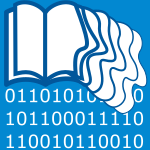 JCDL-2015-AlonsoMN #crowdsourcing
JCDL-2015-AlonsoMN #crowdsourcing- Debugging a Crowdsourced Task with Low Inter-Rater Agreement (OA, CCM, MN), pp. 101–110.
 SIGMOD-2015-DietrichG #database #sql
SIGMOD-2015-DietrichG #database #sql- A SQL Debugger Built from Spare Parts: Turning a SQL: 1999 Database System into Its Own Debugger (BD, TG), pp. 865–870.
 SIGMOD-2015-SalihogluSKTW #named
SIGMOD-2015-SalihogluSKTW #named- Graft: A Debugging Tool For Apache Giraph (SS, JS, VK, BQT, JW), pp. 1403–1408.
 EDM-2015-Liu #data-driven #generative
EDM-2015-Liu #data-driven #generative- Data-driven Hint Generation from Peer Debugging Solutions (ZL), pp. 665–667.
 ITiCSE-2015-BrianTHF #student #testing
ITiCSE-2015-BrianTHF #student #testing- Planting Bugs: A System for Testing Students’ Unit Tests (SAB, RNT, JMH, CF), pp. 45–50.
 ICPC-2015-WhiteVJBP #android #generative
ICPC-2015-WhiteVJBP #android #generative- Generating reproducible and replayable bug reports from Android application crashes (MW, MLV, PJ, CBC, DP), pp. 48–59.
 ICSME-2015-BadashianHS #crowdsourcing
ICSME-2015-BadashianHS #crowdsourcing- Crowdsourced bug triaging (ASB, AH, ES), pp. 506–510.
 ICSME-2015-NucciPSBOL #developer #on the #predict
ICSME-2015-NucciPSBOL #developer #on the #predict- On the role of developer’s scattered changes in bug prediction (DDN, FP, SS, GB, RO, ADL), pp. 241–250.
 ICSME-2015-PiorkowskiFSBKH #bias #developer #how #information management
ICSME-2015-PiorkowskiFSBKH #bias #developer #how #information management- To fix or to learn? How production bias affects developers’ information foraging during debugging (DP, SDF, CS, MMB, IK, AZH, JM, CH, AH), pp. 11–20.
 ICSME-2015-VahabzadehF0 #empirical
ICSME-2015-VahabzadehF0 #empirical- An empirical study of bugs in test code (AV, AMF, AM), pp. 101–110.
 MSR-2015-CamiloMN #case study
MSR-2015-CamiloMN #case study- Do Bugs Foreshadow Vulnerabilities? A Study of the Chromium Project (FC, AM, MN), pp. 269–279.
 MSR-2015-CoelhoAGD #android #exception #git
MSR-2015-CoelhoAGD #android #exception #git- Unveiling Exception Handling Bug Hazards in Android Based on GitHub and Google Code Issues (RC, LA, GG, AvD), pp. 134–145.
 MSR-2015-MirakhorliC #architecture
MSR-2015-MirakhorliC #architecture- Modifications, Tweaks, and Bug Fixes in Architectural Tactics (MM, JCH), pp. 377–380.
 MSR-2015-OhiraKYYMLFHIM #classification #dataset
MSR-2015-OhiraKYYMLFHIM #classification #dataset- A Dataset of High Impact Bugs: Manually-Classified Issue Reports (MO, YK, YY, HY, YM, NL, KF, HH, AI, KiM), pp. 518–521.
 MSR-2015-SahaLKP #question
MSR-2015-SahaLKP #question- Are These Bugs Really “Normal”? (RKS, JL, SK, DEP), pp. 258–268.
 SANER-2015-AggarwalRTHGS #detection #re-engineering
SANER-2015-AggarwalRTHGS #detection #re-engineering- Detecting duplicate bug reports with software engineering domain knowledge (KA, TR, FT, AH, RG, ES), pp. 211–220.
 SANER-2015-KochharTL #effectiveness #empirical #scalability #test coverage #testing
SANER-2015-KochharTL #effectiveness #empirical #scalability #test coverage #testing- Code coverage and test suite effectiveness: Empirical study with real bugs in large systems (PSK, FT, DL), pp. 560–564.
 SANER-2015-NayrollesHTL #approach #model checking #named #using
SANER-2015-NayrollesHTL #approach #model checking #named #using- JCHARMING: A bug reproduction approach using crash traces and directed model checking (MN, AHL, ST, AL), pp. 101–110.
 SANER-2015-TianL #case study #comparative #effectiveness
SANER-2015-TianL #case study #comparative #effectiveness- A comparative study on the effectiveness of part-of-speech tagging techniques on bug reports (YT, DL), pp. 570–574.
 SCAM-2015-BoisselleA #empirical
SCAM-2015-BoisselleA #empirical- The impact of cross-distribution bug duplicates, empirical study on Debian and Ubuntu (VB, BA), pp. 131–140.
 ICEIS-v2-2015-SariK #analysis #monitoring #predict #using
ICEIS-v2-2015-SariK #analysis #monitoring #predict #using- Bug Prediction for an ATM Monitoring Software — Use of Logistic Regression Analysis for Bug Prediction (ÖS, OK), pp. 382–387.
 AMT-2015-SelimCDLO #case study #experience #model transformation #verification
AMT-2015-SelimCDLO #case study #experience #model transformation #verification- Finding and Fixing Bugs in Model Transformations with Formal Verification: An Experience Report (GMKS, JRC, JD, LL, BJO), pp. 26–35.
 MoDELS-2015-MontaghamiR #declarative #modelling
MoDELS-2015-MontaghamiR #declarative #modelling- Pattern-based debugging of declarative models (VM, DR), pp. 322–327.
 SPLC-2015-SoutoGdMKB #detection #feature model #modelling #performance #product line
SPLC-2015-SoutoGdMKB #detection #feature model #modelling #performance #product line- Faster bug detection for software product lines with incomplete feature models (SS, DG, Md, DM, SK, DSB), pp. 151–160.
 OOPSLA-2015-LeSS #compilation #probability
OOPSLA-2015-LeSS #compilation #probability- Finding deep compiler bugs via guided stochastic program mutation (VL, CS, ZS), pp. 386–399.
 AdaEurope-2015-PavleticVRKK #framework
AdaEurope-2015-PavleticVRKK #framework- Extensible Debugger Framework for Extensible Languages (DP, MV, SAR, BK, TK), pp. 33–49.
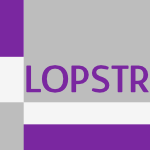 LOPSTR-2015-InsaS #algorithm
LOPSTR-2015-InsaS #algorithm- A Generalized Model for Algorithmic Debugging (DI, JS), pp. 261–276.
 PLDI-2015-FaddegonC #algorithm #dependence #haskell #source code #stack
PLDI-2015-FaddegonC #algorithm #dependence #haskell #source code #stack- Algorithmic debugging of real-world haskell programs: deriving dependencies from the cost centre stack (MF, OC), pp. 33–42.
 PLDI-2015-MachadoLR #concurrent #difference
PLDI-2015-MachadoLR #concurrent #difference- Concurrency debugging with differential schedule projections (NM, BL, LETR), pp. 586–595.
 PLDI-2015-OlivoDL #detection #performance #static analysis #traversal
PLDI-2015-OlivoDL #detection #performance #static analysis #traversal- Static detection of asymptotic performance bugs in collection traversals (OO, ID, CL), pp. 369–378.
 PPDP-2015-CaballeroGS #constraints #datalog #source code
PPDP-2015-CaballeroGS #constraints #datalog #source code- Debugging of wrong and missing answers for datalog programs with constraint handling rules (RC, YGR, FSP), pp. 55–66.
 PPDP-2015-StievenartNMR #abstract interpretation #concurrent #detection #higher-order #source code
PPDP-2015-StievenartNMR #abstract interpretation #concurrent #detection #higher-order #source code- Detecting concurrency bugs in higher-order programs through abstract interpretation (QS, JN, WDM, CDR), pp. 232–243.
 ASE-2015-DeligiannisDR #analysis #concurrent #performance #precise
ASE-2015-DeligiannisDR #analysis #concurrent #performance #precise- Fast and Precise Symbolic Analysis of Concurrency Bugs in Device Drivers (T) (PD, AFD, ZR), pp. 166–177.
 ASE-2015-GaoZWXZM
ASE-2015-GaoZWXZM - Fixing Recurring Crash Bugs via Analyzing Q&A Sites (T) (QG, HZ, JW, YX, LZ, HM), pp. 307–318.
 ASE-2015-LamNNN #information retrieval #learning #locality
ASE-2015-LamNNN #information retrieval #learning #locality- Combining Deep Learning with Information Retrieval to Localize Buggy Files for Bug Reports (N) (ANL, ATN, HAN, TNN), pp. 476–481.
 ASE-2015-LinMZCZ #benchmark #concurrent #java #metric #named
ASE-2015-LinMZCZ #benchmark #concurrent #java #metric #named- JaConTeBe: A Benchmark Suite of Real-World Java Concurrency Bugs (T) (ZL, DM, HZ, YC, JZ), pp. 178–189.
 ESEC-FSE-2015-ChenK
ESEC-FSE-2015-ChenK - Crowd debugging (FC, SK), pp. 320–332.
 ESEC-FSE-2015-DovgalyukDM #kernel
ESEC-FSE-2015-DovgalyukDM #kernel- Don’t panic: reverse debugging of kernel drivers (PD, DD, VM), pp. 938–941.
 ESEC-FSE-2015-HammoudiBBR #on the #using #web
ESEC-FSE-2015-HammoudiBBR #on the #using #web- On the use of delta debugging to reduce recordings and facilitate debugging of web applications (MH, BB, GB, GR), pp. 333–344.
 ESEC-FSE-2015-JensenSSC #independence #javascript #memory management #named #platform
ESEC-FSE-2015-JensenSSC #independence #javascript #memory management #named #platform- MemInsight: platform-independent memory debugging for JavaScript (SHJ, MS, KS, SC), pp. 345–356.
 ESEC-FSE-2015-LeOL #information retrieval #locality
ESEC-FSE-2015-LeOL #information retrieval #locality- Information retrieval and spectrum based bug localization: better together (TDBL, RJO, DL), pp. 579–590.
 ESEC-FSE-2015-Moran #android
ESEC-FSE-2015-Moran #android- Enhancing Android application bug reporting (KM), pp. 1045–1047.
 ESEC-FSE-2015-MoranVBP #android
ESEC-FSE-2015-MoranVBP #android- Auto-completing bug reports for Android applications (KM, MLV, CBC, DP), pp. 673–686.
 ICSE-v1-2015-YuanWWLYHFLCG #concurrent #named #using
ICSE-v1-2015-YuanWWLYHFLCG #concurrent #named #using- ReCBuLC: Reproducing Concurrency Bugs Using Local Clocks (XY, CW, ZW, JL, PCY, JH, XF, YL, YC, YG), pp. 824–834.
 ICSE-v1-2015-ZhongS #empirical
ICSE-v1-2015-ZhongS #empirical- An Empirical Study on Real Bug Fixes (HZ, ZS), pp. 913–923.
 ICSE-v2-2015-Cornu #named #null #using
ICSE-v2-2015-Cornu #named #null #using- Casper: Using Ghosts to Debug Null Deferences with Dynamic Causality Traces (BC), pp. 790–791.
 ICSE-v2-2015-CzerwonkaGT #code review #how #overview
ICSE-v2-2015-CzerwonkaGT #code review #how #overview- Code Reviews Do Not Find Bugs. How the Current Code Review Best Practice Slows Us Down (JC, MG, JT), pp. 27–28.
 ICSE-v2-2015-GomezMMR
ICSE-v2-2015-GomezMMR - When App Stores Listen to the Crowd to Fight Bugs in the Wild (MG, MM, MM, RR), pp. 567–570.
 SAC-2015-SakuraiM #object-oriented #source code
SAC-2015-SakuraiM #object-oriented #source code- The omission finder for debugging what-should-have-happened bugs in object-oriented programs (KS, HM), pp. 1962–1969.
 SAC-2015-ZhangYLC #concept #mining #predict #repository
SAC-2015-ZhangYLC #concept #mining #predict #repository- Predicting severity of bug report by mining bug repository with concept profile (TZ, GY, BL, ATSC), pp. 1553–1558.
 SLE-2015-BousseCCGB #performance
SLE-2015-BousseCCGB #performance- Supporting efficient and advanced omniscient debugging for xDSMLs (EB, JC, BC, JGG, BB), pp. 137–148.
 ASPLOS-2015-HicksSKS #lightweight #named #runtime #specification
ASPLOS-2015-HicksSKS #lightweight #named #runtime #specification- SPECS: A Lightweight Runtime Mechanism for Protecting Software from Security-Critical Processor Bugs (MH, CS, STK, JMS), pp. 517–529.
 ASPLOS-2015-RingenburgSACG #approximate #monitoring #quality #source code
ASPLOS-2015-RingenburgSACG #approximate #monitoring #quality #source code- Monitoring and Debugging the Quality of Results in Approximate Programs (MFR, AS, IA, LC, DG), pp. 399–411.
 CGO-2015-ZhengLHWJ #approach #manycore #on the #performance
CGO-2015-ZhengLHWJ #approach #manycore #on the #performance- On performance debugging of unnecessary lock contentions on multicore processors: a replay-based approach (LZ, XL, BH, SW, HJ), pp. 56–67.
 DAC-2015-CampbellLMC #detection #fault #hybrid #synthesis #using #validation
DAC-2015-CampbellLMC #detection #fault #hybrid #synthesis #using #validation- Hybrid quick error detection (H-QED): accelerator validation and debug using high-level synthesis principles (KAC, DL, SM, DC), p. 6.
 DAC-2015-LeeHLP #data flow #information management #interface #performance
DAC-2015-LeeHLP #data flow #information management #interface #performance- Efficient dynamic information flow tracking on a processor with core debug interface (JL, IH, YL, YP), p. 6.
 DATE-2015-ChenWLL
DATE-2015-ChenWLL - A breakpoint-based silicon debug technique with cycle-granularity for handshake-based SoC (HCC, CRW, KSML, KJL), pp. 1281–1284.
 DATE-2015-FarkashHS #data mining #locality #mining
DATE-2015-FarkashHS #data mining #locality #mining- Data mining diagnostics and bug MRIs for HW bug localization (MF, BGH, BS), pp. 79–84.
 DATE-2015-LinSKRM #detection #effectiveness #fault #performance #testing #validation
DATE-2015-LinSKRM #detection #effectiveness #fault #performance #testing #validation- Quick error detection tests with fast runtimes for effective post-silicon validation and debug (DL, ES, SK, ER, SM), pp. 1168–1173.
 SOSP-2015-MinKLSK #correctness #file system #semantics
SOSP-2015-MinKLSK #correctness #file system #semantics- Cross-checking semantic correctness: the case of finding file system bugs (CM, SK, BL, CS, TK), pp. 361–377.
 CAV-2015-OzkanET #android
CAV-2015-OzkanET #android- Systematic Asynchrony Bug Exploration for Android Apps (BKO, ME, ST), pp. 455–461.
 ICLP-2015-DamasioMA #source code
ICLP-2015-DamasioMA #source code- Unifying Justifications and Debugging for Answer-Set Programs (CVD, JM, AA), pp. 260–273.
 ICLP-2015-LiVPSB #using
ICLP-2015-LiVPSB #using- Debugging ASP using ILP (TL, MDV, JP, KS, TB), pp. 100–113.
 ICST-2015-MahajanH15a #html #named
ICST-2015-MahajanH15a #html #named- WebSee: A Tool for Debugging HTML Presentation Failures (SM, WGJH), pp. 1–8.
 ISSTA-2015-KhoshnoodKW #concurrent #constraints #named #theorem proving
ISSTA-2015-KhoshnoodKW #concurrent #constraints #named #theorem proving- ConcBugAssist: constraint solving for diagnosis and repair of concurrency bugs (SK, MK, CW), pp. 165–176.
 VMCAI-2015-SalaunY #algebra #process #specification
VMCAI-2015-SalaunY #algebra #process #specification- Debugging Process Algebra Specifications (GS, LY), pp. 245–262.
 TFPIE-2014-IshiiA
TFPIE-2014-IshiiA - Report on a User Test and Extension of a Type Debugger for Novice Programmers (YI, KA), pp. 1–18.
 CSMR-WCRE-2014-OsmanLN #mining
CSMR-WCRE-2014-OsmanLN #mining- Mining frequent bug-fix code changes (HO, ML, ON), pp. 343–347.
 CSMR-WCRE-2014-PerscheidFH #execution
CSMR-WCRE-2014-PerscheidFH #execution- Follow the path: Debugging state anomalies along execution histories (MP, TF, RH), pp. 124–133.
 CSMR-WCRE-2014-PerscheidH #fault #navigation #testing #tool support
CSMR-WCRE-2014-PerscheidH #fault #navigation #testing #tool support- Follow the path: Debugging tools for test-driven fault navigation (MP, RH), pp. 446–449.
 CSMR-WCRE-2014-SahaKP #empirical
CSMR-WCRE-2014-SahaKP #empirical- An empirical study of long lived bugs (RKS, SK, DEP), pp. 144–153.
 CSMR-WCRE-2014-SassoL #repository #visual notation
CSMR-WCRE-2014-SassoL #repository #visual notation- In∗bug: Visual analytics of bug repositories (TDS, ML), pp. 415–419.
 CSMR-WCRE-2014-XiaLWSZ #empirical
CSMR-WCRE-2014-XiaLWSZ #empirical- An empirical study of bug report field reassignment (XX, DL, MW, ES, BZ), pp. 174–183.
 ICPC-2014-WangL #locality #version control
ICPC-2014-WangL #locality #version control- Version history, similar report, and structure: putting them together for improved bug localization (SW, DL), pp. 53–63.
 ICPC-2014-XiaLWZW #locality
ICPC-2014-XiaLWZW #locality- Cross-language bug localization (XX, DL, XW, CZ, XW), pp. 275–278.
 ICSME-2014-HuoDMG #empirical
ICSME-2014-HuoDMG #empirical- An Empirical Study of the Effects of Expert Knowledge on Bug Reports (DH, TD, CM, MG), pp. 1–10.
 ICSME-2014-KashiwaYKO #case study
ICSME-2014-KashiwaYKO #case study- A Pilot Study of Diversity in High Impact Bugs (YK, HY, YK, MO), pp. 536–540.
 ICSME-2014-LiuQWM #concurrent #named #precise
ICSME-2014-LiuQWM #concurrent #named #precise- Pinso: Precise Isolation of Concurrency Bugs via Delta Triaging (BL, ZQ, BW, RM), pp. 201–210.
 ICSME-2014-MorenoTMS #locality #on the #stack #using
ICSME-2014-MorenoTMS #locality #on the #stack #using- On the Use of Stack Traces to Improve Text Retrieval-Based Bug Localization (LM, JJT, AM, WS), pp. 151–160.
 ICSME-2014-SahaLKP #c #effectiveness #information retrieval #locality #on the #source code
ICSME-2014-SahaLKP #c #effectiveness #information retrieval #locality #on the #source code- On the Effectiveness of Information Retrieval Based Bug Localization for C Programs (RKS, JL, SK, DEP), pp. 161–170.
 ICSME-2014-WangLL #composition #locality #modelling
ICSME-2014-WangLL #composition #locality #modelling- Compositional Vector Space Models for Improved Bug Localization (SW, DL, JL), pp. 171–180.
 ICSME-2014-YeasminRS #evolution #interactive #summary #topic #using #visualisation
ICSME-2014-YeasminRS #evolution #interactive #summary #topic #using #visualisation- Interactive Visualization of Bug Reports Using Topic Evolution and Extractive Summaries (SY, CKR, KAS), pp. 421–425.
 ICSME-2014-ZhouTGG #classification #data mining #mining
ICSME-2014-ZhouTGG #classification #data mining #mining- Combining Text Mining and Data Mining for Bug Report Classification (YZ, YT, RG, HCG), pp. 311–320.
 MSR-2014-ChenNSH #empirical
MSR-2014-ChenNSH #empirical- An empirical study of dormant bugs (THC, MN, ES, AEH), pp. 82–91.
 MSR-2014-GarciaS #open source #predict
MSR-2014-GarciaS #open source #predict- Characterizing and predicting blocking bugs in open source projects (HVG, ES), pp. 72–81.
 MSR-2014-JoorabchiMM #exclamation
MSR-2014-JoorabchiMM #exclamation- Works for me! characterizing non-reproducible bug reports (MEJ, MM, AM), pp. 62–71.
 MSR-2014-KleinCK #detection
MSR-2014-KleinCK #detection- New features for duplicate bug detection (NK, CSC, NAK), pp. 324–327.
 MSR-2014-KochharLL #classification #locality #question
MSR-2014-KochharLL #classification #locality #question- It’s not a bug, it’s a feature: does misclassification affect bug localization? (PSK, TDBL, DL), pp. 296–299.
 MSR-2014-LazarRS #detection #metric #similarity #using
MSR-2014-LazarRS #detection #metric #similarity #using- Improving the accuracy of duplicate bug report detection using textual similarity measures (AL, SR, BS), pp. 308–311.
 MSR-2014-LazarRS14a #dataset #generative
MSR-2014-LazarRS14a #dataset #generative- Generating duplicate bug datasets (AL, SR, BS), pp. 392–395.
 MSR-2014-MitropoulosKLGS #ecosystem
MSR-2014-MitropoulosKLGS #ecosystem- The bug catalog of the maven ecosystem (DM, VK, PL, GG, DS), pp. 372–375.
 MSR-2014-SainiSOL #dataset
MSR-2014-SainiSOL #dataset- A dataset for maven artifacts and bug patterns found in them (VS, HS, JO, CVL), pp. 416–419.
 SCAM-2014-AnKA
SCAM-2014-AnKA - Supplementary Bug Fixes vs. Re-opened Bugs (LA, FK, BA), pp. 205–214.
 SCAM-2014-BazrafshanK #developer #performance
SCAM-2014-BazrafshanK #developer #performance- Effect of Clone Information on the Performance of Developers Fixing Cloned Bugs (SB, RK), pp. 1–10.
 SCAM-2014-SajnaniSL #case study #comparative #java
SCAM-2014-SajnaniSL #case study #comparative #java- A Comparative Study of Bug Patterns in Java Cloned and Non-cloned Code (HS, VS, CVL), pp. 21–30.
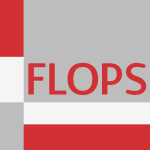 FLOPS-2014-ChenE
FLOPS-2014-ChenE - Guided Type Debugging (SC, ME), pp. 35–51.
 FLOPS-2014-Riesco #declarative #maude #semantics #using
FLOPS-2014-Riesco #declarative #maude #semantics #using- Using Big-Step and Small-Step Semantics in Maude to Perform Declarative Debugging (AR), pp. 52–68.
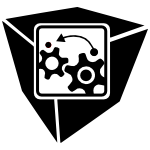 VISSOFT-2014-Reiss #challenge
VISSOFT-2014-Reiss #challenge- The Challenge of Helping the Programmer during Debugging (SPR), pp. 112–116.
 SEKE-2014-YangWSFC #analysis #fault
SEKE-2014-YangWSFC #analysis #fault- Bug Inducing Analysis to Prevent Fault Prone Bug Fixes (HY, CW, QS, YF, ZC), pp. 620–625.
 OOPSLA-2014-BarowyGB #named #spreadsheet
OOPSLA-2014-BarowyGB #named #spreadsheet- CheckCell: data debugging for spreadsheets (DWB, DG, EDB), pp. 507–523.
 OOPSLA-2014-BarrM #named
OOPSLA-2014-BarrM #named- Tardis: affordable time-travel debugging in managed runtimes (ETB, MM), pp. 67–82.
 OOPSLA-2014-SongL #performance #problem #statistics
OOPSLA-2014-SongL #performance #problem #statistics- Statistical debugging for real-world performance problems (LS, SL), pp. 561–578.
 OOPSLA-2014-ToschB #automation #named #programming
OOPSLA-2014-ToschB #automation #named #programming- SurveyMan: programming and automatically debugging surveys (ET, EDB), pp. 197–211.
 PLDI-2014-MitraLABSG #analysis #parallel #scalability
PLDI-2014-MitraLABSG #analysis #parallel #scalability- Accurate application progress analysis for large-scale parallel debugging (SM, IL, DHA, SB, MS, TG), p. 23.
 POPL-2014-ChenE #fault #type system
POPL-2014-ChenE #fault #type system- Counter-factual typing for debugging type errors (SC, ME), pp. 583–594.
 PPDP-2014-StulovaMH #higher-order #source code
PPDP-2014-StulovaMH #higher-order #source code- Assertion-based Debugging of Higher-Order (C)LP Programs (NS, JFM, MVH), pp. 225–235.
 ASE-2014-AbalBW #analysis #kernel #linux #variability
ASE-2014-AbalBW #analysis #kernel #linux #variability- 42 variability bugs in the linux kernel: a qualitative analysis (IA, CB, AW), pp. 421–432.
 ASE-2014-Borg #re-engineering #using
ASE-2014-Borg #re-engineering #using- Embrace your issues: compassing the software engineering landscape using bug reports (MB), pp. 891–894.
 ASE-2014-KochharTL #bias #locality #matter #question
ASE-2014-KochharTL #bias #locality #matter #question- Potential biases in bug localization: do they matter? (PSK, YT, DL), pp. 803–814.
 ASE-2014-ThungKL #detection #named #tool support
ASE-2014-ThungKL #detection #named #tool support- DupFinder: integrated tool support for duplicate bug report detection (FT, PSK, DL), pp. 871–874.
 ASE-2014-WangWWYSYLFG #concurrent #locality #memory management #using
ASE-2014-WangWWYSYLFG #concurrent #locality #memory management #using- Localization of concurrency bugs using shared memory access pairs (WW, ZW, CW, PCY, XS, XY, JL, XF, YG), pp. 611–622.
 ASE-2014-ZuddasJPMO #comprehension #named
ASE-2014-ZuddasJPMO #comprehension #named- MIMIC: locating and understanding bugs by analyzing mimicked executions (DZ, WJ, FP, LM, AO), pp. 815–826.
 FSE-2014-0010TZ #concurrent #named
FSE-2014-0010TZ #concurrent #named- Grail: context-aware fixing of concurrency bugs (PL, OT, CZ), pp. 318–329.
 FSE-2014-BanerjeeC0R #detection #energy #mobile
FSE-2014-BanerjeeC0R #detection #energy #mobile- Detecting energy bugs and hotspots in mobile apps (AB, LKC, SC, AR), pp. 588–598.
 FSE-2014-TaoKKX #automation
FSE-2014-TaoKKX #automation- Automatically generated patches as debugging aids: a human study (YT, JK, SK, CX), pp. 64–74.
 FSE-2014-ThungLKL #locality #named #tool support
FSE-2014-ThungLKL #locality #named #tool support- BugLocalizer: integrated tool support for bug localization (FT, TDBL, PSK, DL), pp. 767–770.
 FSE-2014-Xiao #architecture #detection
FSE-2014-Xiao #architecture #detection- Detecting and preventing the architectural roots of bugs (LX), pp. 811–813.
 FSE-2014-YeBL #learning #rank #using
FSE-2014-YeBL #learning #rank #using- Learning to rank relevant files for bug reports using domain knowledge (XY, RCB, CL), pp. 689–699.
 FSE-2014-ZhangWLQRZ #concurrent #lightweight #named
FSE-2014-ZhangWLQRZ #concurrent #lightweight #named- AI: a lightweight system for tolerating concurrency bugs (MZ, YW, SL, SQ, JR, WZ), pp. 330–340.
 ICSE-2014-LiuXC #detection #performance #smarttech
ICSE-2014-LiuXC #detection #performance #smarttech- Characterizing and detecting performance bugs for smartphone applications (YL, CX, SCC), pp. 1013–1024.
 ICSE-2014-RahmanKBD #predict #statistics
ICSE-2014-RahmanKBD #predict #statistics- Comparing static bug finders and statistical prediction (FR, SK, ETB, PTD), pp. 424–434.
 SAC-2014-PotocnikCS #named #problem #scala
SAC-2014-PotocnikCS #named #problem #scala- Linter: a tool for finding bugs and potential problems in scala code (MP, UC, BS), pp. 1615–1616.
 SAC-2014-YangZL #algorithm #developer #effectiveness #multi #recommendation
SAC-2014-YangZL #algorithm #developer #effectiveness #multi #recommendation- Utilizing a multi-developer network-based developer recommendation algorithm to fix bugs effectively (GY, TZ, BL), pp. 1134–1139.
 SAC-2014-ZhaoXKLL #empirical #process
SAC-2014-ZhaoXKLL #empirical #process- An empirical study of bugs in build process (XZ, XX, PSK, DL, SL), pp. 1187–1189.
 SLE-2014-ChisGN #framework
SLE-2014-ChisGN #framework- The Moldable Debugger: A Framework for Developing Domain-Specific Debuggers (AC, TG, ON), pp. 102–121.
 SLE-2014-KaufmannKPSW #diagrams #satisfiability #sequence chart #state machine
SLE-2014-KaufmannKPSW #diagrams #satisfiability #sequence chart #state machine- A SAT-Based Debugging Tool for State Machines and Sequence Diagrams (PK, MK, AP, MS, MW), pp. 21–40.
 CGO-2014-WangPPLGN #named #slicing
CGO-2014-WangPPLGN #named #slicing- DrDebug: Deterministic Replay based Cyclic Debugging with Dynamic Slicing (YW, HP, CP, GL, RG, IN), p. 98.
 DAC-2014-YounGK #locality #probability #statistics
DAC-2014-YounGK #locality #probability #statistics- Probabilistic Bug Localization via Statistical Inference based on Partially Observed Data (SY, CG, JK), p. 6.
 DATE-2014-AdlerAABG #logic
DATE-2014-AdlerAABG #logic- Facilitating timing debug by logic path correspondence (OA, EA, IA, IB, IG), pp. 1–6.
 DATE-2014-MurilloWCLA #automation #concurrent #constraints #detection
DATE-2014-MurilloWCLA #automation #concurrent #constraints #detection- Automatic detection of concurrency bugs through event ordering constraints (LGM, SW, JC, RL, GA), pp. 1–6.
 OSDI-2014-0001RB #concurrent #kernel #named
OSDI-2014-0001RB #concurrent #kernel #named- SKI: Exposing Kernel Concurrency Bugs through Systematic Schedule Exploration (PF, RR, BBB), pp. 415–431.
 OSDI-2014-LeesatapornwongsaHJLG #model checking #named #performance #semantics
OSDI-2014-LeesatapornwongsaHJLG #model checking #named #performance #semantics- SAMC: Semantic-Aware Model Checking for Fast Discovery of Deep Bugs in Cloud Systems (TL, MH, PJ, JFL, HSG), pp. 399–414.
 PDP-2014-DehbashiF #multi #online #transaction
PDP-2014-DehbashiF #multi #online #transaction- Transaction-Based Online Debug for NoC-Based Multiprocessor SoCs (MD, GF), pp. 400–404.
 PPoPP-2014-WangWYYWL0 #concurrent #locality #memory management #using
PPoPP-2014-WangWYYWL0 #concurrent #locality #memory management #using- Concurrency bug localization using shared memory access pairs (WW, CW, PCY, XY, ZW, JL, XF), pp. 375–376.
 FASE-2014-GiachinoLM
FASE-2014-GiachinoLM - Causal-Consistent Reversible Debugging (EG, IL, CAM), pp. 370–384.
 TACAS-2014-CaballeroMRT #declarative #erlang #named #source code
TACAS-2014-CaballeroMRT #declarative #erlang #named #source code- EDD: A Declarative Debugger for Sequential Erlang Programs (RC, EMM, AR, ST), pp. 581–586.
 ICST-2014-VarvaressosLMGH #automation #case study #game studies #monitoring #runtime #video
ICST-2014-VarvaressosLMGH #automation #case study #game studies #monitoring #runtime #video- Automated Bug Finding in Video Games: A Case Study for Runtime Monitoring (SV, KL, ABM, SG, SH), pp. 143–152.
 ISSTA-2014-Zuo #performance #statistics
ISSTA-2014-Zuo #performance #statistics- Efficient statistical debugging via hierarchical instrumentation (ZZ), pp. 457–460.
 ISSTA-2014-ZuoKS #mining #performance
ISSTA-2014-ZuoKS #mining #performance- Efficient predicated bug signature mining via hierarchical instrumentation (ZZ, SCK, CS), pp. 215–224.
 CSMR-2013-BhattacharyaUNK #analysis #android #empirical #open source
CSMR-2013-BhattacharyaUNK #analysis #android #empirical #open source- An Empirical Analysis of Bug Reports and Bug Fixing in Open Source Android Apps (PB, LU, IN, SCK), pp. 133–143.
 CSMR-2013-BissyandeTWLJR #empirical #evaluation
CSMR-2013-BissyandeTWLJR #empirical #evaluation- Empirical Evaluation of Bug Linking (TFB, FT, SW, DL, LJ, LR), pp. 89–98.
 CSMR-2013-LamkanfiD #predict
CSMR-2013-LamkanfiD #predict- Predicting Reassignments of Bug Reports — An Exploratory Investigation (AL, SD), pp. 327–330.
 CSMR-2013-LerchM
CSMR-2013-LerchM - Finding Duplicates of Your Yet Unwritten Bug Report (JL, MM), pp. 69–78.
 CSMR-2013-XiaLWYLS #algorithm #case study #comparative #learning #predict
CSMR-2013-XiaLWYLS #algorithm #case study #comparative #learning #predict- A Comparative Study of Supervised Learning Algorithms for Re-opened Bug Prediction (XX, DL, XW, XY, SL, JS), pp. 331–334.
 ICSM-2013-EbertC #case study #developer #exception
ICSM-2013-EbertC #case study #developer #exception- A Study on Developers’ Perceptions about Exception Handling Bugs (FE, FC), pp. 448–451.
 ICSM-2013-FrancisW #policy
ICSM-2013-FrancisW #policy- Determining “Grim Reaper” Policies to Prevent Languishing Bugs (PF, LW), pp. 436–439.
 ICSM-2013-LarssonH #mining
ICSM-2013-LarssonH #mining- Mining Telecom System Logs to Facilitate Debugging Tasks (AL, AHL), pp. 536–539.
 ICSM-2013-MorenoBHM #on the #source code
ICSM-2013-MorenoBHM #on the #source code- On the Relationship between the Vocabulary of Bug Reports and Source Code (LM, WB, SH, AM), pp. 452–455.
 ICSM-2013-TabaKZHN #predict #using
ICSM-2013-TabaKZHN #predict #using- Predicting Bugs Using Antipatterns (SEST, FK, YZ, AEH, MN), pp. 270–279.
 ICSM-2013-TianLS #analysis #multi #named #predict
ICSM-2013-TianLS #analysis #multi #named #predict- DRONE: Predicting Priority of Reported Bugs by Multi-factor Analysis (YT, DL, CS), pp. 200–209.
 MSR-2013-AlipourHS #approach #detection #towards
MSR-2013-AlipourHS #approach #detection #towards- A contextual approach towards more accurate duplicate bug report detection (AA, AH, ES), pp. 183–192.
 MSR-2013-LamkanfiPD #dataset #eclipse #fault #mining
MSR-2013-LamkanfiPD #dataset #eclipse #fault #mining- The eclipse and mozilla defect tracking dataset: a genuine dataset for mining bug information (AL, JP, SD), pp. 203–206.
 MSR-2013-ManiNMNSN #identification #repository
MSR-2013-ManiNMNSN #identification #repository- Bug resolution catalysts: identifying essential non-committers from bug repositories (SM, SN, DM, RN, VSS, AAN), pp. 193–202.
 MSR-2013-NaguibNBH #process #recommendation #using
MSR-2013-NaguibNBH #process #recommendation #using- Bug report assignee recommendation using activity profiles (HN, NN, BB, DH), pp. 22–30.
 MSR-2013-NistorJT #performance
MSR-2013-NistorJT #performance- Discovering, reporting, and fixing performance bugs (AN, TJ, LT), pp. 237–246.
 MSR-2013-ShokripourAKZ #recommendation #why
MSR-2013-ShokripourAKZ #recommendation #why- Why so complicated? simple term filtering and weighting for location-based bug report assignment recommendation (RS, JA, ZMK, SZ), pp. 2–11.
 MSR-2013-SismanK #automation #code search #locality #query
MSR-2013-SismanK #automation #code search #locality #query- Assisting code search with automatic query reformulation for bug localization (BS, ACK), pp. 309–318.
 MSR-2013-WangKZ #correlation #locality #using
MSR-2013-WangKZ #correlation #locality #using- Improving bug localization using correlations in crash reports (SW, FK, YZ), pp. 247–256.
 PASTE-2013-ModiRA #locality #statistics
PASTE-2013-ModiRA #locality #statistics- Exploring program phases for statistical bug localization (VM, SR, SKA), pp. 33–40.
 SCAM-2013-WangFGN #interactive
SCAM-2013-WangFGN #interactive- A state alteration and inspection-based interactive debugger (YW, MF, RG, IN), pp. 84–93.
 WCRE-2013-LiuTZ #question
WCRE-2013-LiuTZ #question- Has this bug been reported? (KL, HBKT, HZ), pp. 82–91.
 WCRE-2013-RaoMK #framework #incremental #library #locality #performance #retrieval
WCRE-2013-RaoMK #framework #incremental #library #locality #performance #retrieval- An incremental update framework for efficient retrieval from software libraries for bug localization (SR, HM, ACK), pp. 62–71.
 WCRE-2013-XiaLWZ #developer #recommendation
WCRE-2013-XiaLWZ #developer #recommendation- Accurate developer recommendation for bug resolution (XX, DL, XW, BZ), pp. 72–81.
 SEFM-2013-KeshishzadehMM #automation #detection #domain-specific language #fault #smt #using
SEFM-2013-KeshishzadehMM #automation #detection #domain-specific language #fault #smt #using- Early Fault Detection in DSLs Using SMT Solving and Automated Debugging (SK, AJM, MRM), pp. 182–196.
 CHI-2013-KuttalSR #programming
CHI-2013-KuttalSR #programming- Debugging support for end user mashup programming (SKK, AS, GR), pp. 1609–1618.
 VISSOFT-2013-SassoL
VISSOFT-2013-SassoL - A closer look at bugs (TDS, ML), pp. 1–4.
 SEKE-2013-LiLJJ #communication #comprehension #concurrent #graph
SEKE-2013-LiLJJ #communication #comprehension #concurrent #graph- Locating and Understanding Concurrency Bugs Based on Edge-labeled Communication Graphs (HL, ML, TJ, ZJ), pp. 525–530.
 SEKE-2013-YuanYL #fine-grained #predict #source code
SEKE-2013-YuanYL #fine-grained #predict #source code- Bug Prediction for Fine-Grained Source Code Changes (ZY, LY, CL), pp. 381–387.
 SEKE-2013-ZhangLK #on the #statistics #using
SEKE-2013-ZhangLK #on the #statistics #using- On the Use of Bug and Predicate Signatures for Statistical Debugging (YZ, EL, BK), pp. 249–299.
 ECMFA-2013-0002G #execution #model transformation
ECMFA-2013-0002G #execution #model transformation- End-User Support for Debugging Demonstration-Based Model Transformation Execution (YS, JG), pp. 86–100.
 TOOLS-EUROPE-J-2012-LilisS13 #approach #fault #metaprogramming
TOOLS-EUROPE-J-2012-LilisS13 #approach #fault #metaprogramming- An Integrated Approach to Source Level Debugging and Compile Error Reporting in Metaprograms (YL, AS), pp. 1–26.
 ECOOP-2013-HaoLZG0 #question
ECOOP-2013-HaoLZG0 #question- Is This a Bug or an Obsolete Test? (DH, TL, HZ, CG, LZ), pp. 602–628.
 LOPSTR-2013-GonzalezIS #architecture #eclipse #hybrid
LOPSTR-2013-GonzalezIS #architecture #eclipse #hybrid- A New Hybrid Debugging Architecture for Eclipse (JG, DI, JS), pp. 183–201.
 PADL-2013-DreyMHC
PADL-2013-DreyMHC - Reversible Language Extensions and Their Application in Debugging (ZD, JFM, MVH, MC), pp. 206–221.
 PLDI-2013-ElmasBNS #concurrent #domain-specific language #named
PLDI-2013-ElmasBNS #concurrent #domain-specific language #named- CONCURRIT: a domain specific language for reproducing concurrency bugs (TE, JB, GCN, KS), pp. 153–164.
 RE-2013-WangLWYZL #dependence #integration #network #question #requirements
RE-2013-WangLWYZL #dependence #integration #network #question #requirements- Can requirements dependency network be used as early indicator of software integration bugs? (JW, JL, QW, DY, HZ, ML), pp. 185–194.
 SAC-PL-J-2010-PopeeaC13 #analysis #proving #safety
SAC-PL-J-2010-PopeeaC13 #analysis #proving #safety- Dual analysis for proving safety and finding bugs (CP, WNC), pp. 390–411.
 ASE-2013-OhmannL #analysis #control flow #lightweight
ASE-2013-OhmannL #analysis #control flow #lightweight- Lightweight control-flow instrumentation and postmortem analysis in support of debugging (PO, BL), pp. 378–388.
 ASE-2013-SagdeoEPV #automation #invariant #locality #testing #using
ASE-2013-SagdeoEPV #automation #invariant #locality #testing #using- Using automatically generated invariants for regression testing and bug localization (PS, NE, DP, SV), pp. 634–639.
 ASE-2013-SahaLKP #information retrieval #locality #using
ASE-2013-SahaLKP #information retrieval #locality #using- Improving bug localization using structured information retrieval (RKS, ML, SK, DEP), pp. 345–355.
 ASE-2013-Servant #analysis #using
ASE-2013-Servant #analysis #using- Supporting bug investigation using history analysis (FS), pp. 754–757.
 ESEC-FSE-2013-GongZ #named
ESEC-FSE-2013-GongZ #named- BugMap: a topographic map of bugs (JG, HZ), pp. 647–650.
 ESEC-FSE-2013-LiangWXM #detection
ESEC-FSE-2013-LiangWXM #detection- Inferring project-specific bug patterns for detecting sibling bugs (GL, QW, TX, HM), pp. 565–575.
 ESEC-FSE-2013-McPeakGR #detection #incremental #scalability
ESEC-FSE-2013-McPeakGR #detection #incremental #scalability- Scalable and incremental software bug detection (SM, CHG, MKR), pp. 554–564.
 ESEC-FSE-2013-MusluBM #testing
ESEC-FSE-2013-MusluBM #testing- Data debugging with continuous testing (KM, YB, AM), pp. 631–634.
 ESEC-FSE-2013-SunK #mining
ESEC-FSE-2013-SunK #mining- Mining succinct predicated bug signatures (CS, SCK), pp. 576–586.
 ICSE-2013-BortisH #approach #named
ICSE-2013-BortisH #approach #named- PorchLight: a tag-based approach to bug triaging (GB, AvdH), pp. 342–351.
 ICSE-2013-HerzigJZ #classification #how #predict
ICSE-2013-HerzigJZ #classification #how #predict- It’s not a bug, it’s a feature: how misclassification impacts bug prediction (KH, SJ, AZ), pp. 392–401.
 ICSE-2013-Jin
ICSE-2013-Jin - Reproducing and debugging field failures in house (WJ), pp. 1441–1443.
 ICSE-2013-JohnsonSMB #developer #question #static analysis #tool support #why
ICSE-2013-JohnsonSMB #developer #question #static analysis #tool support #why- Why don’t software developers use static analysis tools to find bugs? (BJ, YS, ERMH, RWB), pp. 672–681.
 ICSE-2013-KhooFH #named
ICSE-2013-KhooFH #named- Expositor: scriptable time-travel debugging with first-class traces (YPK, JSF, MH), pp. 352–361.
 ICSE-2013-LewisLSZOW #case study #developer #predict
ICSE-2013-LewisLSZOW #case study #developer #predict- Does bug prediction support human developers? findings from a google case study (CL, ZL, CS, XZ, RO, EJWJ), pp. 372–381.
 ICSE-2013-Murphy-HillZBN #design
ICSE-2013-Murphy-HillZBN #design- The design of bug fixes (ERMH, TZ, CB, NN), pp. 332–341.
 ICSE-2013-NguyenCT #named #visual notation
ICSE-2013-NguyenCT #named #visual notation- GROPG: a graphical on-phone debugger (TAN, CC, NT), pp. 1189–1192.
 ICSE-2013-PastoreMG #c #c++ #named #problem
ICSE-2013-PastoreMG #c #c++ #named #problem- RADAR: a tool for debugging regression problems in C/C++ software (FP, LM, AG), pp. 1335–1338.
 ICSE-2013-ZanettiSTS #case study #categorisation #community #network #open source #social
ICSE-2013-ZanettiSTS #case study #categorisation #community #network #open source #social- Categorizing bugs with social networks: a case study on four open source software communities (MSZ, IS, CJT, FS), pp. 1032–1041.
 SAC-2013-LaurentBG #modelling #uml
SAC-2013-LaurentBG #modelling #uml- Executing and debugging UML models: an fUML extension (YL, RB, MPG), pp. 1095–1102.
 SAC-2013-PougetSCM #approach #data flow #embedded #interactive #novel
SAC-2013-PougetSCM #approach #data flow #embedded #interactive #novel- A novel approach for interactive debugging of dynamic dataflow embedded applications (KP, MS, PLC, JFM), pp. 1547–1549.
 SAC-2013-ZhangL #algorithm #developer #hybrid #recommendation
SAC-2013-ZhangL #algorithm #developer #hybrid #recommendation- A hybrid bug triage algorithm for developer recommendation (TZ, BL), pp. 1088–1094.
 ASPLOS-2013-ViennotNN #manycore #validation
ASPLOS-2013-ViennotNN #manycore #validation- Transparent mutable replay for multicore debugging and patch validation (NV, SN, JN), pp. 127–138.
 ASPLOS-2013-ZhangKLLS #concurrent #execution #named #thread
ASPLOS-2013-ZhangKLLS #concurrent #execution #named #thread- ConAir: featherweight concurrency bug recovery via single-threaded idempotent execution (WZ, MdK, AL, SL, KS), pp. 113–126.
 CGO-2013-ArthurMRAB #named #profiling #scalability #security
CGO-2013-ArthurMRAB #named #profiling #scalability #security- Schnauzer: scalable profiling for likely security bug sites (WA, BM, RR, TMA, VB), p. 11.
 CGO-2013-LiHCZ0L #effectiveness #fault #locality #set
CGO-2013-LiHCZ0L #effectiveness #fault #locality #set- Effective fault localization based on minimum debugging frontier set (FL, WH, CC, LZ, XF, ZL), p. 10.
 DATE-2013-DeOrioLBB #detection #machine learning
DATE-2013-DeOrioLBB #detection #machine learning- Machine learning-based anomaly detection for post-silicon bug diagnosis (AD, QL, MB, VB), pp. 491–496.
 DATE-2013-LiD #approach #hybrid #performance
DATE-2013-LiD #approach #hybrid #performance- A hybrid approach for fast and accurate trace signal selection for post-silicon debug (ML, AD), pp. 485–490.
 HPDC-2013-ZhouTKB #automation #detection #named #scalability
HPDC-2013-ZhouTKB #automation #detection #named #scalability- WuKong: automatically detecting and localizing bugs that manifest at large system scales (BZ, JT, MK, SB), pp. 131–142.
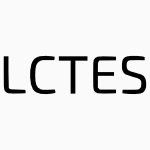 LCTES-2013-MorenoFH #analysis #embedded
LCTES-2013-MorenoFH #analysis #embedded- Non-intrusive program tracing and debugging of deployed embedded systems through side-channel analysis (CM, SF, MAH), pp. 77–88.
 PLOS-2013-AryaDVC #automation #process
PLOS-2013-AryaDVC #automation #process- Semi-automated debugging via binary search through a process lifetime (KA, TD, AMV, GC), p. 7.
 PPoPP-2013-ZhouKB #effectiveness #named #scalability
PPoPP-2013-ZhouKB #effectiveness #named #scalability- WuKong: effective diagnosis of bugs at large system scales (BZ, MK, SB), pp. 317–318.
 ICLP-J-2013-BusoniuOPST #ide #named #programming
ICLP-J-2013-BusoniuOPST #ide #named #programming- SeaLion: An eclipse-based IDE for answer-set programming with advanced debugging support (PAB, JO, JP, PS, HT), pp. 657–673.
 ICST-2013-LiuYTH #automation #generative #named
ICST-2013-LiuYTH #automation #generative #named- R2Fix: Automatically Generating Bug Fixes from Bug Reports (CL, JY, LT, MH), pp. 282–291.
 ICST-2013-PastoreM #named
ICST-2013-PastoreM #named- AVA: Supporting Debugging with Failure Interpretations (FP, LM), pp. 416–421.
 ISSTA-2013-Park #concurrent
ISSTA-2013-Park #concurrent- Debugging non-deadlock concurrency bugs (SP), pp. 358–361.
 ISSTA-2013-ParkHV #comprehension #concurrent #data access #named
ISSTA-2013-ParkHV #comprehension #concurrent #data access #named- Griffin: grouping suspicious memory-access patterns to improve understanding of concurrency bugs (SP, MJH, RWV), pp. 134–144.
 TAP-2013-CaballeroMRT #declarative #erlang #source code
TAP-2013-CaballeroMRT #declarative #erlang #source code- A Declarative Debugger for Sequential Erlang Programs (RC, EMM, AR, ST), pp. 96–114.
 TAP-2013-InsaSR #algorithm #execution #using
TAP-2013-InsaSR #algorithm #execution #using- Speeding Up Algorithmic Debugging Using Balanced Execution Trees (DI, JS, AR), pp. 133–151.
 VLDB-2012-KhoussainovaBS #named #performance #pipes and filters
VLDB-2012-KhoussainovaBS #named #performance #pipes and filters- PerfXplain: Debugging MapReduce Job Performance (NK, MB, DS), pp. 598–609.
 CSMR-2012-AlsallakhBGM #eclipse #java #visual notation
CSMR-2012-AlsallakhBGM #eclipse #java #visual notation- Visual Tracing for the Eclipse Java Debugger (BA, PB, AG, SM), pp. 545–548.
 CSMR-2012-BernardiCLPD #communication #developer #eclipse
CSMR-2012-BernardiCLPD #communication #developer #eclipse- Do Developers Introduce Bugs When They Do Not Communicate? The Case of Eclipse and Mozilla (MLB, GC, GADL, MDP, DD), pp. 139–148.
 CSMR-2012-CoutoSVBA #metric
CSMR-2012-CoutoSVBA #metric- Uncovering Causal Relationships between Software Metrics and Bugs (CC, CS, MTV, RdSB, NA), pp. 223–232.
 CSMR-2012-Dovgalyuk #dynamic analysis #execution #multi
CSMR-2012-Dovgalyuk #dynamic analysis #execution #multi- Deterministic Replay of System’s Execution with Multi-target QEMU Simulator for Dynamic Analysis and Reverse Debugging (PD), pp. 553–556.
 CSMR-2012-Gall #smell
CSMR-2012-Gall #smell- Keynote 1: LGTM — Software Sensing and Bug Smelling (HCG), pp. 3–4.
 CSMR-2012-HoraADBCVM #analysis #visual notation
CSMR-2012-HoraADBCVM #analysis #visual notation- Bug Maps: A Tool for the Visual Exploration and Analysis of Bugs (AH, NA, SD, MUB, CC, MTV, JM), pp. 523–526.
 CSMR-2012-HosseiniNG #predict #using
CSMR-2012-HosseiniNG #predict #using- A Market-Based Bug Allocation Mechanism Using Predictive Bug Lifetimes (HH, RN, MWG), pp. 149–158.
 CSMR-2012-Izquierdo-Cortazar #comprehension #distributed #process
CSMR-2012-Izquierdo-Cortazar #comprehension #distributed #process- Global and Geographically Distributed Work Teams: Understanding the Bug Fixing Process and Potentially Bug-prone Activity Patterns (DIC), pp. 505–508.
 CSMR-2012-KaushikT #case study #comparative #detection #information retrieval #modelling #performance
CSMR-2012-KaushikT #case study #comparative #detection #information retrieval #modelling #performance- A Comparative Study of the Performance of IR Models on Duplicate Bug Detection (NK, LT), pp. 159–168.
 CSMR-2012-LamkanfiD #analysis
CSMR-2012-LamkanfiD #analysis- Filtering Bug Reports for Fix-Time Analysis (AL, SD), pp. 379–384.
 CSMR-2012-TianSL #identification
CSMR-2012-TianSL #identification- Improved Duplicate Bug Report Identification (YT, CS, DL), pp. 385–390.
 ICSM-2012-Linares-VasquezHDKGP #commit #question
ICSM-2012-Linares-VasquezHDKGP #commit #question- Triaging incoming change requests: Bug or commit history, or code authorship? (MLV, KH, HD, HHK, MG, DP), pp. 451–460.
 ICSM-2012-LotufoMC #modelling #process
ICSM-2012-LotufoMC #modelling #process- Modelling the “Hurried” bug report reading process to summarize bug reports (RL, ZM, KC), pp. 430–439.
 ICSM-2012-OhiraHOM #case study #eclipse
ICSM-2012-OhiraHOM #case study #eclipse- The impact of bug management patterns on bug fixing: A case study of Eclipse projects (MO, AEH, NO, KiM), pp. 264–273.
 ICSM-2012-ThungLJLRD #question
ICSM-2012-ThungLJLRD #question- When would this bug get reported? (FT, DL, LJ, L, FR, PTD), pp. 420–429.
 MSR-2012-AsaduzzamanBRS #android #case study
MSR-2012-AsaduzzamanBRS #android #case study- Bug introducing changes: A case study with Android (MA, MCB, CKR, KAS), pp. 116–119.
 MSR-2012-Breckel #comparison #database #detection #fault #mining #scalability
MSR-2012-Breckel #comparison #database #detection #fault #mining #scalability- Error mining: Bug detection through comparison with large code databases (AB), pp. 175–178.
 MSR-2012-LotufoPC #game studies #towards
MSR-2012-LotufoPC #game studies #towards- Towards improving bug tracking systems with game mechanisms (RL, LTP, KC), pp. 2–11.
 MSR-2012-MartiePSL #android #roadmap #topic
MSR-2012-MartiePSL #android #roadmap #topic- Trendy bugs: Topic trends in the Android bug reports (LM, VKP, HS, CVL), pp. 120–123.
 MSR-2012-ParkKRB #empirical
MSR-2012-ParkKRB #empirical- An empirical study of supplementary bug fixes (JP, MK, BR, DHB), pp. 40–49.
 MSR-2012-SismanK #information retrieval #locality #version control
MSR-2012-SismanK #information retrieval #locality #version control- Incorporating version histories in Information Retrieval based bug localization (BS, ACK), pp. 50–59.
 MSR-2012-SouzaC #ide #open source #verification
MSR-2012-SouzaC #ide #open source #verification- Characterizing verification of bug fixes in two open source IDEs (RS, CC), pp. 70–73.
 MSR-2012-ZamanAH #performance
MSR-2012-ZamanAH #performance- A qualitative study on performance bugs (SZ, BA, AEH), pp. 199–208.
 SCAM-2012-AliSGA #using
SCAM-2012-AliSGA #using- Improving Bug Location Using Binary Class Relationships (NA, AS, YGG, GA), pp. 174–183.
 SCAM-2012-BavotaCLPOS #empirical #refactoring
SCAM-2012-BavotaCLPOS #empirical #refactoring- When Does a Refactoring Induce Bugs? An Empirical Study (GB, BDC, ADL, MDP, RO, OS), pp. 104–113.
 SCAM-2012-HillRK #java #locality #on the #using
SCAM-2012-HillRK #java #locality #on the #using- On the Use of Stemming for Concern Location and Bug Localization in Java (EH, SR, ACK), pp. 184–193.
 WCRE-2012-DaviesRW #locality #similarity #using
WCRE-2012-DaviesRW #locality #similarity #using- Using Bug Report Similarity to Enhance Bug Localisation (SD, MR, MW), pp. 125–134.
 WCRE-2012-HanZFHWS #analysis #android #comprehension #topic
WCRE-2012-HanZFHWS #analysis #android #comprehension #topic- Understanding Android Fragmentation with Topic Analysis of Vendor-Specific Bugs (DH, CZ, XF, AH, KW, ES), pp. 83–92.
 WCRE-2012-TianLS #classification #fine-grained #information retrieval #nearest neighbour #predict
WCRE-2012-TianLS #classification #fine-grained #information retrieval #nearest neighbour #predict- Information Retrieval Based Nearest Neighbor Classification for Fine-Grained Bug Severity Prediction (YT, DL, CS), pp. 215–224.
 WCRE-2012-ZhangKZH #empirical
WCRE-2012-ZhangKZH #empirical- An Empirical Study on Factors Impacting Bug Fixing Time (FZ, FK, YZ, AEH), pp. 225–234.
 IFM-2012-RochaBCN #bound #comprehension #model checking #programming #using
IFM-2012-RochaBCN #bound #comprehension #model checking #programming #using- Understanding Programming Bugs in ANSI-C Software Using Bounded Model Checking Counter-Examples (HR, RSB, LCC, ADN), pp. 128–142.
 FLOPS-2012-CaballeroGS #declarative #sql
FLOPS-2012-CaballeroGS #declarative #sql- Declarative Debugging of Wrong and Missing Answers for SQL Views (RC, YGR, FSP), pp. 73–87.
 IFL-2012-TsushimaA #embedded
IFL-2012-TsushimaA #embedded- An Embedded Type Debugger (KT, KA), pp. 190–206.
 CHI-2012-BogartBDAW #case study #design #interactive #programming
CHI-2012-BogartBDAW #case study #design #interactive #programming- Designing a debugging interaction language for cognitive modelers: an initial case study in natural programming plus (CB, MMB, SD, HA, RW), pp. 2469–2478.
 CIKM-2012-HerschelE #comprehension #data transformation
CIKM-2012-HerschelE #comprehension #data transformation- The nautilus analyzer: understanding and debugging data transformations (MH, HE), pp. 2731–2733.
 CIKM-2012-ZhouZ #learning #rank
CIKM-2012-ZhouZ #learning #rank- Learning to rank duplicate bug reports (JZ, HZ), pp. 852–861.
 SPLC-2012-OliveiraBN #analysis #product line
SPLC-2012-OliveiraBN #analysis #product line- Supporting the analysis of bug prevalence in software product lines with product genealogy (THBdO, MB, EYN), pp. 181–185.
 OOPSLA-2012-GuBSS #reuse
OOPSLA-2012-GuBSS #reuse- Reusing debugging knowledge via trace-based bug search (ZG, ETB, DS, ZS), pp. 927–942.
 OOPSLA-2012-HuangZ #agile #concurrent #execution #named #reduction
OOPSLA-2012-HuangZ #agile #concurrent #execution #named #reduction- LEAN: simplifying concurrency bug reproduction via replay-supported execution reduction (JH, CZ), pp. 451–466.
 TOOLS-EUROPE-2012-LilisS #fault #metaprogramming #precise
TOOLS-EUROPE-2012-LilisS #fault #metaprogramming #precise- Supporting Compile-Time Debugging and Precise Error Reporting in Meta-programs (YL, AS), pp. 155–170.
 TOOLS-EUROPE-2012-Sureka #component #learning
TOOLS-EUROPE-2012-Sureka #component #learning- Learning to Classify Bug Reports into Components (AS), pp. 288–303.
 LOPSTR-2012-InsaST #declarative
LOPSTR-2012-InsaST #declarative- Enhancing Declarative Debugging with Loop Expansion and Tree Compression (DI, JS, CT), pp. 71–88.
 PEPM-2012-KarlsenHO #eclipse #java #plugin
PEPM-2012-KarlsenHO #eclipse #java #plugin- Finding and fixing Java naming bugs with the lancelot eclipse plugin (EKK, EWH, BMØ), pp. 35–38.
 PLDI-2012-JinSSSL #comprehension #detection #performance
PLDI-2012-JinSSSL #comprehension #detection #performance- Understanding and detecting real-world performance bugs (GJ, LS, XS, JS, SL), pp. 77–88.
 PLDI-2012-NagarakatteBMM #concurrent #detection #manycore
PLDI-2012-NagarakatteBMM #concurrent #detection #manycore- Multicore acceleration of priority-based schedulers for concurrency bug detection (SN, SB, MMKM, MM), pp. 543–554.
 PLDI-2012-RegehrCCEEY #c #compilation #reduction #testing
PLDI-2012-RegehrCCEEY #c #compilation #reduction #testing- Test-case reduction for C compiler bugs (JR, YC, PC, EE, CE, XY), pp. 335–346.
 POPL-2012-JoshiLL
POPL-2012-JoshiLL - Underspecified harnesses and interleaved bugs (SJ, SKL, AL), pp. 19–30.
 ASE-2012-BissyandeRLM #automation #generative #interface #kernel #linux #named
ASE-2012-BissyandeRLM #automation #generative #interface #kernel #linux #named- Diagnosys: automatic generation of a debugging interface to the Linux kernel (TFB, LR, JLL, GM), pp. 60–69.
 ASE-2012-CamposRPA #eclipse #named #plugin #testing
ASE-2012-CamposRPA #eclipse #named #plugin #testing- GZoltar: an eclipse plug-in for testing and debugging (JC, AR, AP, RA), pp. 378–381.
 ASE-2012-NguyenNNLS #detection #information retrieval #modelling #topic
ASE-2012-NguyenNNLS #detection #information retrieval #modelling #topic- Duplicate bug report detection with a combination of information retrieval and topic modeling (ATN, TTN, TNN, DL, CS), pp. 70–79.
 ASE-2012-ThungLLJRD #detection #empirical #fault #tool support #what
ASE-2012-ThungLLJRD #detection #empirical #fault #tool support #what- To what extent could we detect field defects? an empirical study of false negatives in static bug finding tools (FT, L, DL, LJ, FR, PTD), pp. 50–59.
 ASE-2012-YuLCZ #fault
ASE-2012-YuLCZ #fault- Practical isolation of failure-inducing changes for debugging regression faults (KY, ML, JC, XZ), pp. 20–29.
 FSE-2012-LiuTC #question
FSE-2012-LiuTC #question- Has this bug been reported? (KL, HBKT, MC), p. 28.
 FSE-2012-ManiCSD #approach #named #summary
FSE-2012-ManiCSD #approach #named #summary- AUSUM: approach for unsupervised bug report summarization (SM, RC, VSS, AD), p. 11.
 FSE-2012-NguyenNNN #approach #multi
FSE-2012-NguyenNNN #approach #multi- Multi-layered approach for recovering links between bug reports and fixes (ATN, TTN, HAN, TNN), p. 63.
 ICSE-2012-BoosFJK #cyber-physical #framework #named
ICSE-2012-BoosFJK #cyber-physical #framework #named- BRACE: An assertion framework for debugging cyber-physical systems (KB, CLF, CJ, MK), pp. 1341–1344.
 ICSE-2012-CeccatoMMNT #effectiveness #empirical #random testing #testing
ICSE-2012-CeccatoMMNT #effectiveness #empirical #random testing #testing- An empirical study about the effectiveness of debugging when random test cases are used (MC, AM, LM, CDN, PT), pp. 452–462.
 ICSE-2012-DeLineBRJR #experience #industrial #paradigm
ICSE-2012-DeLineBRJR #experience #industrial #paradigm- Debugger Canvas: Industrial experience with the code bubbles paradigm (RD, AB, KR, JJ, SPR), pp. 1064–1073.
 ICSE-2012-GoreR #bias #metric #statistics
ICSE-2012-GoreR #bias #metric #statistics- Reducing confounding bias in predicate-level statistical debugging metrics (RG, PFRJ), pp. 463–473.
 ICSE-2012-GouesDFW #automation #program repair
ICSE-2012-GouesDFW #automation #program repair- A systematic study of automated program repair: Fixing 55 out of 105 bugs for $8 each (CLG, MDV, SF, WW), pp. 3–13.
 ICSE-2012-HanDGZX #in the large #mining #performance #stack
ICSE-2012-HanDGZX #in the large #mining #performance #stack- Performance debugging in the large via mining millions of stack traces (SH, YD, SG, DZ, TX), pp. 145–155.
 ICSE-2012-HataMK #fine-grained #predict
ICSE-2012-HataMK #fine-grained #predict- Bug prediction based on fine-grained module histories (HH, OM, TK), pp. 200–210.
 ICSE-2012-JinO #named
ICSE-2012-JinO #named- BugRedux: Reproducing field failures for in-house debugging (WJ, AO), pp. 474–484.
 ICSE-2012-Mayerhofer #modelling #testing #uml
ICSE-2012-Mayerhofer #modelling #testing #uml- Testing and debugging UML models based on fUML (TM), pp. 1579–1582.
 ICSE-2012-PradelG #automation #detection #generative #mining #specification #testing
ICSE-2012-PradelG #automation #detection #generative #mining #specification #testing- Leveraging test generation and specification mining for automated bug detection without false positives (MP, TRG), pp. 288–298.
 ICSE-2012-RessiaBN
ICSE-2012-RessiaBN - Object-centric debugging (JR, AB, ON), pp. 485–495.
 ICSE-2012-SongT12a #detection #metadata #on the fly
ICSE-2012-SongT12a #detection #metadata #on the fly- Detecting metadata bugs on the fly (MS, ET), pp. 1455–1456.
 ICSE-2012-TianLL #identification #linux
ICSE-2012-TianLL #identification #linux- Identifying Linux bug fixing patches (YT, JLL, DL), pp. 386–396.
 ICSE-2012-XuanJRZ #developer #repository
ICSE-2012-XuanJRZ #developer #repository- Developer prioritization in bug repositories (JX, HJ, ZR, WZ), pp. 25–35.
 ICSE-2012-ZhangLY #framework
ICSE-2012-ZhangLY #framework- An integrated bug processing framework (XZ, ML, KY), pp. 1469–1470.
 ICSE-2012-ZhouZL #information retrieval #locality
ICSE-2012-ZhouZL #information retrieval #locality- Where should the bugs be fixed? More accurate information retrieval-based bug localization based on bug reports (JZ, HZ, DL), pp. 14–24.
 ICSE-2012-ZimmermannNGM #predict
ICSE-2012-ZimmermannNGM #predict- Characterizing and predicting which bugs get reopened (TZ, NN, PJG, BM), pp. 1074–1083.
 ASPLOS-2012-KasikciZC #difference
ASPLOS-2012-KasikciZC #difference- Data races vs. data race bugs: telling the difference with portend (BK, CZ, GC), pp. 185–198.
 ASPLOS-2012-VolosTSL #concurrent #memory management #transaction
ASPLOS-2012-VolosTSL #concurrent #memory management #transaction- Applying transactional memory to concurrency bugs (HV, AJT, MMS, SL), pp. 211–222.
 CGO-2012-LueckPP #interface #named
CGO-2012-LueckPP #interface #named- PinADX: an interface for customizable debugging with dynamic instrumentation (GL, HP, CP), pp. 114–123.
 DAC-2012-KengV #abstraction #design #refinement #satisfiability
DAC-2012-KengV #abstraction #design #refinement #satisfiability- Path directed abstraction and refinement in SAT-based design debugging (BK, AGV), pp. 947–954.
 DAC-2012-LinHFHM #detection #effectiveness #validation
DAC-2012-LinHFHM #detection #effectiveness #validation- Quick detection of difficult bugs for effective post-silicon validation (DL, TH, FF, NH, SM), pp. 561–566.
 DAC-2012-YuanLX #configuration management #named
DAC-2012-YuanLX #configuration management #named- X-tracer: a reconfigurable X-tolerant trace compressor for silicon debug (FY, XL, QX), pp. 555–560.
 DATE-2012-ChandrasekarMSH #design #industrial
DATE-2012-ChandrasekarMSH #design #industrial- A scan pattern debugger for partial scan industrial designs (KC, SKM, SS, MSH), pp. 558–561.
 DATE-2012-GaoWHZL #clustering #concurrent #manycore
DATE-2012-GaoWHZL #clustering #concurrent #manycore- A clustering-based scheme for concurrent trace in debugging NoC-based multicore systems (JG, JW, YH, LZ, XL), pp. 27–32.
 DATE-2012-LeMKV #satisfiability #using
DATE-2012-LeMKV #satisfiability #using- Non-solution implications using reverse domination in a modern SAT-based debugging environment (BL, HM, BK, AGV), pp. 629–634.
 DATE-2012-PoulosYAVL #functional
DATE-2012-PoulosYAVL #functional- Leveraging reconfigurability to raise productivity in FPGA functional debug (ZP, YSY, JA, AGV, BL), pp. 292–295.
 DATE-2012-WilleSD #consistency #modelling #ocl #uml
DATE-2012-WilleSD #consistency #modelling #ocl #uml- Debugging of inconsistent UML/OCL models (RW, MS, RD), pp. 1078–1083.
 PPoPP-2012-DinhAJGMR #parallel #scalability #statistics
PPoPP-2012-DinhAJGMR #parallel #scalability #statistics- Scalable parallel debugging with statistical assertions (MND, DA, CJ, AG, BM, LDR), pp. 311–312.
 WRLA-J-2010-RiescoVMC12 #declarative #logic #specification
WRLA-J-2010-RiescoVMC12 #declarative #logic #specification- Declarative debugging of rewriting logic specifications (AR, AV, NMO, RC), pp. 851–897.
 TACAS-2012-WeissenbacherKM #contest #named
TACAS-2012-WeissenbacherKM #contest #named- Wolverine: Battling Bugs with Interpolants — (Competition Contribution) (GW, DK, SM), pp. 556–558.
 CAV-2012-PaulaHN #named #nondeterminism
CAV-2012-PaulaHN #named #nondeterminism- nuTAB-BackSpace: Rewriting to Normalize Non-determinism in Post-silicon Debug Traces (FMdP, AJH, AN), pp. 513–531.
 CAV-2012-Schwartz-NarbonneLAM #named #parallel #source code
CAV-2012-Schwartz-NarbonneLAM #named #parallel #source code- passert: A Tool for Debugging Parallel Programs (DSN, FL, DIA, SM), pp. 751–757.
 ICST-2012-ParkVH #approach #concurrent
ICST-2012-ParkVH #approach #concurrent- A Unified Approach for Localizing Non-deadlock Concurrency Bugs (SP, RWV, MJH), pp. 51–60.
 ICST-2012-YuL #fault #towards
ICST-2012-YuL #fault #towards- Towards Practical Debugging for Regression Faults (KY, ML), pp. 487–490.
 ISSTA-2012-LiRCS #detection #precise #predict
ISSTA-2012-LiRCS #detection #precise #predict- Residual investigation: predictive and precise bug detection (KL, CR, CC, YS), pp. 298–308.
 TAP-2012-BruningGHK #modelling #ocl #uml
TAP-2012-BruningGHK #modelling #ocl #uml- Evaluating and Debugging OCL Expressions in UML Models (JB, MG, LH, MK), pp. 156–162.
 SIGMOD-2011-OlstonR #distributed #framework #monitoring
SIGMOD-2011-OlstonR #distributed #framework #monitoring- Inspector gadget: a framework for custom monitoring and debugging of distributed dataflows (CO, BR), pp. 1221–1224.
 VLDB-2011-GlavicDMAH
VLDB-2011-GlavicDMAH - Debugging Data Exchange with Vagabond (BG, JD, RJM, GA, LMH), pp. 1383–1386.
 VLDB-2011-OlstonR #distributed #framework #monitoring
VLDB-2011-OlstonR #distributed #framework #monitoring- Inspector Gadget: A Framework for Custom Monitoring and Debugging of Distributed Dataflows (CO, BR), pp. 1237–1248.
 CSEET-2011-BryceA
CSEET-2011-BryceA - Mystery Bug Theater (RCB, VA), pp. 381–385.
 ITiCSE-2011-VirsedaM #education #semantics #source code #verification
ITiCSE-2011-VirsedaM #education #semantics #source code #verification- An innovative teaching tool based on semantic tableaux for verification and debugging of programs (RdVV, FPM), p. 352.
 CSMR-2011-LamkanfiDSV #algorithm #mining #predict
CSMR-2011-LamkanfiDSV #algorithm #mining #predict- Comparing Mining Algorithms for Predicting the Severity of a Reported Bug (AL, SD, QDS, TV), pp. 249–258.
 ICSM-2011-BachwaniCBKZ #named
ICSM-2011-BachwaniCBKZ #named- Sahara: Guiding the debugging of failed software upgrades (RB, OC, RB, DK, WZ), pp. 263–272.
 ICSM-2011-DhaliwalKZ #case study
ICSM-2011-DhaliwalKZ #case study- Classifying field crash reports for fixing bugs: A case study of Mozilla Firefox (TD, FK, YZ), pp. 333–342.
 MSR-2011-BhattacharyaN #modelling #predict #question
MSR-2011-BhattacharyaN #modelling #predict #question- Bug-fix time prediction models: can we do better? (PB, IN), pp. 207–210.
 MSR-2011-CanforaCCP #interactive #social
MSR-2011-CanforaCCP #interactive #social- Social interactions around cross-system bug fixings: the case of FreeBSD and OpenBSD (GC, LC, MC, MDP), pp. 143–152.
 MSR-2011-EyolfsonTL #commit #developer #experience
MSR-2011-EyolfsonTL #commit #developer #experience- Do time of day and developer experience affect commit bugginess (JE, LT, PL), pp. 153–162.
 MSR-2011-GigerPG #fine-grained #predict #source code
MSR-2011-GigerPG #fine-grained #predict #source code- Comparing fine-grained source code changes and code churn for bug prediction (EG, MP, HCG), pp. 83–92.
 MSR-2011-RaoK #case study #comparative #library #locality #modelling #retrieval
MSR-2011-RaoK #case study #comparative #library #locality #modelling #retrieval- Retrieval from software libraries for bug localization: a comparative study of generic and composite text models (SR, ACK), pp. 43–52.
 MSR-2011-WangBD #analysis #eclipse
MSR-2011-WangBD #analysis #eclipse- System compatibility analysis of Eclipse and Netbeans based on bug data (XOW, EB, PTD), pp. 230–233.
 MSR-2011-ZamanAH #case study #performance #security
MSR-2011-ZamanAH #case study #performance #security- Security versus performance bugs: a case study on Firefox (SZ, BA, AEH), pp. 93–102.
 MSR-2011-Zhou #detection #problem
MSR-2011-Zhou #detection #problem- Connecting technology with real-world problems — from copy-paste detection to detecting known bugs: (YZ), p. 2.
 SCAM-2011-Black
SCAM-2011-Black - Counting Bugs is Harder Than You Think (PEB), pp. 1–9.
 WCRE-2011-Beard #information retrieval #locality #using
WCRE-2011-Beard #information retrieval #locality #using- Extending Bug Localization Using Information Retrieval and Code Clone Location Techniques (MDB), pp. 425–428.
 WCRE-2011-BeardKEL #information retrieval #locality
WCRE-2011-BeardKEL #information retrieval #locality- Measuring the Accuracy of Information Retrieval Based Bug Localization Techniques (MDB, NAK, LHE, SKL), pp. 124–128.
 WCRE-2011-CanforaCCP #empirical #how
WCRE-2011-CanforaCCP #empirical #how- How Long Does a Bug Survive? An Empirical Study (GC, MC, LC, MDP), pp. 191–200.
 WCRE-2011-DaviesRW #dependence #evaluation
WCRE-2011-DaviesRW #dependence #evaluation- A Preliminary Evaluation of Text-based and Dependency-based Techniques for Determining the Origins of Bugs (SD, MR, MW), pp. 201–210.
 WCRE-2011-KaushikTM #case study #testing #traceability
WCRE-2011-KaushikTM #case study #testing #traceability- Reconstructing Traceability between Bugs and Test Cases: An Experimental Study (NK, LT, MM), pp. 411–414.
 WCRE-2011-Raber #kernel #profiling
WCRE-2011-Raber #kernel #profiling- Stealthy Profiling and Debugging of Malware Trampolining from User to Kernel Space (JR), pp. 431–432.
 SEFM-2011-GouesLM #verification
SEFM-2011-GouesLM #verification- The Boogie Verification Debugger (CLG, KRML, MM), pp. 407–414.
 CSCW-2011-GuoZNM #exclamation
CSCW-2011-GuoZNM #exclamation- “Not my bug!” and other reasons for software bug report reassignments (PJG, TZ, NN, BM), pp. 395–404.
 CIKM-2011-SarmaJB #information management #pipes and filters
CIKM-2011-SarmaJB #information management #pipes and filters- Building a generic debugger for information extraction pipelines (ADS, AJ, PB), pp. 2229–2232.
 SEKE-2011-Kaiser #concurrent #higher-order #using
SEKE-2011-Kaiser #concurrent #higher-order #using- Constructing Subtle Concurrency Bugs Using Synchronization-Centric Second-Order Mutation Operators (LWGK), pp. 244–249.
 SEKE-2011-ShiozukaUK
SEKE-2011-ShiozukaUK - Debug Concern Navigator (MS, NU, YK), pp. 197–202.
 SEKE-2011-WuXKP #analysis #data mining #mining #named #reliability
SEKE-2011-WuXKP #analysis #data mining #mining #named #reliability- BUGMINER: Software Reliability Analysis Via Data Mining of Bug Reports (LW, BX, GEK, RJP), pp. 95–100.
 ECOOP-2011-PothierT #query #scalability
ECOOP-2011-PothierT #query #scalability- Summarized Trace Indexing and Querying for Scalable Back-in-Time Debugging (GP, ÉT), pp. 558–582.
 OOPSLA-2011-JovicAH #detection #performance
OOPSLA-2011-JovicAH #detection #performance- Catch me if you can: performance bug detection in the wild (MJ, AA, MH), pp. 155–170.
 TOOLS-EUROPE-2011-Tip #web
TOOLS-EUROPE-2011-Tip #web- Finding and Fixing Bugs in Web Applications (FT), p. 2.
 LOPSTR-2011-CaballeroRVM #declarative #maude #proving
LOPSTR-2011-CaballeroRVM #declarative #maude #proving- Simplifying Questions in Maude Declarative Debugger by Transforming Proof Trees (RC, AR, AV, NMO), pp. 73–89.
 PADL-2011-MeraTLH #logic programming #performance #profiling #runtime #source code
PADL-2011-MeraTLH #logic programming #performance #profiling #runtime #source code- Profiling for Run-Time Checking of Computational Properties and Performance Debugging in Logic Programs (EM, TT, PLG, MVH), pp. 38–53.
 PLDI-2011-BudiLJL #behaviour #named
PLDI-2011-BudiLJL #behaviour #named- kb-anonymity: a model for anonymized behaviour-preserving test and debugging data (AB, DL, LJ, L), pp. 447–457.
 PLDI-2011-YangCER #c #compilation #comprehension
PLDI-2011-YangCER #c #compilation #comprehension- Finding and understanding bugs in C compilers (XY, YC, EE, JR), pp. 283–294.
 SAS-2011-HuangZ #concurrent #performance #source code
SAS-2011-HuangZ #concurrent #performance #source code- An Efficient Static Trace Simplification Technique for Debugging Concurrent Programs (JH, CZ), pp. 163–179.
 ASE-2011-GoreRK #statistics
ASE-2011-GoreRK #statistics- Statistical debugging with elastic predicates (RG, PFRJ, DK), pp. 492–495.
 ASE-2011-InsaS #algorithm
ASE-2011-InsaS #algorithm- An optimal strategy for algorithmic debugging (DI, JS), pp. 203–212.
 ASE-2011-NguyenNANN #approach #topic
ASE-2011-NguyenNANN #approach #topic- A topic-based approach for narrowing the search space of buggy files from a bug report (ATN, TTN, JMAK, HVN, TNN), pp. 263–272.
 ASE-2011-SunLKJ #retrieval #towards
ASE-2011-SunLKJ #retrieval #towards- Towards more accurate retrieval of duplicate bug reports (CS, DL, SCK, JJ), pp. 253–262.
 ESEC-FSE-2011-MusluSW #testing
ESEC-FSE-2011-MusluSW #testing- Finding bugs by isolating unit tests (KM, BS, JW), pp. 496–499.
 ESEC-FSE-2011-TamrawiNAN #approach #fuzzy #set
ESEC-FSE-2011-TamrawiNAN #approach #fuzzy #set- Fuzzy set and cache-based approach for bug triaging (AT, TTN, JMAK, TNN), pp. 365–375.
 ESEC-FSE-2011-WuZKC #named
ESEC-FSE-2011-WuZKC #named- ReLink: recovering links between bugs and changes (RW, HZ, SK, SCC), pp. 15–25.
 ESEC-FSE-2011-YinYZPB #how #question
ESEC-FSE-2011-YinYZPB #how #question- How do fixes become bugs? (ZY, DY, YZ, SP, LNB), pp. 26–36.
 ICSE-2011-ChandraTBB
ICSE-2011-ChandraTBB - Angelic debugging (SC, ET, SB, RB), pp. 121–130.
 ICSE-2011-GuBS #named #reuse
ICSE-2011-GuBS #named #reuse- BQL: capturing and reusing debugging knowledge (ZG, ETB, ZS), pp. 1001–1003.
 ICSE-2011-OhHVP #concurrent #execution #framework #multi #named #thread
ICSE-2011-OhHVP #concurrent #execution #framework #multi #named #thread- LIME: a framework for debugging load imbalance in multi-threaded execution (JO, CJH, GV, MP), pp. 201–210.
 ICSE-2011-SoffaWM #hardware #testing
ICSE-2011-SoffaWM #hardware #testing- Exploiting hardware advances for software testing and debugging (MLS, KRW, JM), pp. 888–891.
 ICSE-2011-TamrawiNAN #automation #fuzzy
ICSE-2011-TamrawiNAN #automation #fuzzy- Fuzzy set-based automatic bug triaging (AT, TTN, JMAK, TNN), pp. 884–887.
 ICSE-2011-TanZP #concurrent #detection #mining #named
ICSE-2011-TanZP #concurrent #detection #mining #named- aComment: mining annotations from comments and code to detect interrupt related concurrency bugs (LT, YZ, YP), pp. 11–20.
 SAC-2011-BoixNCMD #message passing #named
SAC-2011-BoixNCMD #message passing #named- REME-D: a reflective epidemic message-oriented debugger for ambient-oriented applications (EGB, CN, TVC, WDM, TD), pp. 1275–1281.
 SAC-2011-HuN #android #framework #user interface
SAC-2011-HuN #android #framework #user interface- A GUI bug finding framework for Android applications (CH, IN), pp. 1490–1491.
 ASPLOS-2011-GaoZCZQ #concurrent #named #towards #type system
ASPLOS-2011-GaoZCZQ #concurrent #named #towards #type system- 2ndStrike: toward manifesting hidden concurrency typestate bugs (QG, WZ, ZC, MZ, FQ), pp. 239–250.
 ASPLOS-2011-ZhangLOSJLR #concurrent #detection #fault #named
ASPLOS-2011-ZhangLOSJLR #concurrent #detection #fault #named- ConSeq: detecting concurrency bugs through sequential errors (WZ, JL, RO, JS, GJ, SL, TWR), pp. 251–264.
 DATE-2011-GaoHL #multi
DATE-2011-GaoHL #multi- Eliminating data invalidation in debugging multiple-clock chips (JG, YH, XL), pp. 691–696.
 DATE-2011-GuoCSCWH #design #empirical #predict #verification
DATE-2011-GuoCSCWH #design #empirical #predict #verification- Empirical design bugs prediction for verification (QG, TC, HS, YC, YW, WH), pp. 161–166.
 DATE-2011-KengSV #automation
DATE-2011-KengSV #automation- Automated debugging of SystemVerilog assertions (BK, SS, AGV), pp. 323–328.
 DATE-2011-LiuX #multi #on the
DATE-2011-LiuX #multi #on the- On multiplexed signal tracing for post-silicon debug (XL, QX), pp. 685–690.
 DATE-2011-MatsudaI #verification
DATE-2011-MatsudaI #verification- Developing an integrated verification and debug methodology (AM, TI), pp. 503–504.
 DATE-2011-Winterholer #embedded #requirements
DATE-2011-Winterholer #embedded #requirements- Embedded software debug and test: Needs and requirements for innovations in debugging (MW), p. 721.
 HPDC-2011-ZhouKB #detection #locality #named #parallel #scalability #source code #using
HPDC-2011-ZhouKB #detection #locality #named #parallel #scalability #source code #using- Vrisha: using scaling properties of parallel programs for bug detection and localization (BZ, MK, SB), pp. 85–96.
 LCTES-2011-NavabpourBF #testing #using
LCTES-2011-NavabpourBF #testing #using- Software debugging and testing using the abstract diagnosis theory (SN, BB, SF), pp. 111–120.
 LCTES-2011-WangLLFBL #dependence #multi #network
LCTES-2011-WangLLFBL #dependence #multi #network- Dependence-based multi-level tracing and replay for wireless sensor networks debugging (MW, ZL, FL, XF, SB, YHL), pp. 91–100.
 ICST-2011-MalikSK #constraints #data type #using
ICST-2011-MalikSK #constraints #data type #using- Constraint-Based Program Debugging Using Data Structure Repair (MZM, JHS, SK), pp. 190–199.
 ICST-2011-Sun #question #why
ICST-2011-Sun #question #why- Why are Bug Reports Invalid? (JS), pp. 407–410.
 ISSTA-2011-ParninO #automation #question
ISSTA-2011-ParninO #automation #question- Are automated debugging techniques actually helping programmers? (CP, AO), pp. 199–209.
 TAP-2011-ChebaroKGJ #analysis #c #generative #slicing #testing
TAP-2011-ChebaroKGJ #analysis #c #generative #slicing #testing- The SANTE Tool: Value Analysis, Program Slicing and Test Generation for C Program Debugging (OC, NK, AG, JJ), pp. 78–83.
 CSMR-2010-CavalcantiACLM #problem
CSMR-2010-CavalcantiACLM #problem- An Initial Study on the Bug Report Duplication Problem (YCC, ESdA, CEAdC, DL, SRdLM), pp. 264–267.
 CSMR-2010-MyersSS #scalability
CSMR-2010-MyersSS #scalability- Utilizing Debug Information to Compact Loops in Large Program Traces (DM, MADS, MS), pp. 41–50.
 ICSM-2010-BhattacharyaN #fine-grained #graph #incremental #learning #multi
ICSM-2010-BhattacharyaN #fine-grained #graph #incremental #learning #multi- Fine-grained incremental learning and multi-feature tossing graphs to improve bug triaging (PB, IN), pp. 1–10.
 ICSM-2010-InsaS #algorithm #java
ICSM-2010-InsaS #algorithm #java- An algorithmic debugger for Java (DI, JS), pp. 1–6.
 ICSM-2010-JalbertB #clone detection #concurrent #detection #identification #using
ICSM-2010-JalbertB #clone detection #concurrent #detection #identification #using- Using clone detection to identify bugs in concurrent software (KJ, JSB), pp. 1–5.
 ICSM-2010-KameiMMMAH #modelling #predict #using
ICSM-2010-KameiMMMAH #modelling #predict #using- Revisiting common bug prediction findings using effort-aware models (YK, SM, AM, KiM, BA, AEH), pp. 1–10.
 MSR-2010-BachmannB #correlation #dataset #process #quality #re-engineering
MSR-2010-BachmannB #correlation #dataset #process #quality #re-engineering- When process data quality affects the number of bugs: Correlations in software engineering datasets (AB, AB), pp. 62–71.
 MSR-2010-BougieTGS #comparative
MSR-2010-BougieTGS #comparative- A comparative exploration of FreeBSD bug lifetimes (GB, CT, DMG, MADS), pp. 106–109.
 MSR-2010-DAmbrosLR #comparison #predict
MSR-2010-DAmbrosLR #comparison #predict- An extensive comparison of bug prediction approaches (MD, ML, RR), pp. 31–41.
 MSR-2010-DaviesZNG
MSR-2010-DaviesZNG - Perspectives on bugs in the Debian bug tracking system (JD, HZ, LN, DMG), pp. 86–89.
 MSR-2010-GegickRX #case study #identification #industrial #mining #security
MSR-2010-GegickRX #case study #identification #industrial #mining #security- Identifying security bug reports via text mining: An industrial case study (MG, PR, TX), pp. 11–20.
 MSR-2010-LamkanfiDGG #predict
MSR-2010-LamkanfiDGG #predict- Predicting the severity of a reported bug (AL, SD, EG, BG), pp. 1–10.
 MSR-2010-SchroterBP #developer #question #stack
MSR-2010-SchroterBP #developer #question #stack- Do stack traces help developers fix bugs? (AS, NB, RP), pp. 118–121.
 SCAM-2010-KesterMB #concurrent #how #question #static analysis
SCAM-2010-KesterMB #concurrent #how #question #static analysis- How Good is Static Analysis at Finding Concurrency Bugs? (DK, MM, JSB), pp. 115–124.
 SCAM-2010-LuoHDQ #concurrent #effectiveness #java #static analysis
SCAM-2010-LuoHDQ #concurrent #effectiveness #java #static analysis- Effective Static Analysis to Find Concurrency Bugs in Java (ZDL, LH, RD, YQ), pp. 135–144.
 WCRE-2010-NguyenAH #bias #case study #dataset
WCRE-2010-NguyenAH #bias #case study #dataset- A Case Study of Bias in Bug-Fix Datasets (THDN, BA, AEH), pp. 259–268.
 WCRE-2010-ShihabIKIOAHM #case study #eclipse #predict
WCRE-2010-ShihabIKIOAHM #case study #eclipse #predict- Predicting Re-opened Bugs: A Case Study on the Eclipse Project (ES, AI, YK, WMI, MO, BA, AEH, KiM), pp. 249–258.
 RTA-2010-RiescoVM #declarative #maude
RTA-2010-RiescoVM #declarative #maude- Declarative Debugging of Missing Answers for Maude (AR, AV, NMO), pp. 277–294.
 FDG-2010-LewisWW #game studies #taxonomy #video #what
FDG-2010-LewisWW #game studies #taxonomy #video #what- What went wrong: a taxonomy of video game bugs (CL0, JW, NWF), pp. 108–115.
 CHI-2010-GrigoreanuBR #approach #design #tool support
CHI-2010-GrigoreanuBR #approach #design #tool support- A strategy-centric approach to the design of end-user debugging tools (VG, MMB, GGR), pp. 713–722.
 CHI-2010-KoC #how
CHI-2010-KoC #how- How power users help and hinder open bug reporting (AJK, PKC), pp. 1665–1674.
 CSCW-2010-BertramVGW #collaboration #communication #issue tracking #social
CSCW-2010-BertramVGW #collaboration #communication #issue tracking #social- Communication, collaboration, and bugs: the social nature of issue tracking in small, collocated teams (DB, AV, SG, RW), pp. 291–300.
 CSCW-2010-BreuPSZ #developer
CSCW-2010-BreuPSZ #developer- Information needs in bug reports: improving cooperation between developers and users (SB, RP, JS, TZ), pp. 301–310.
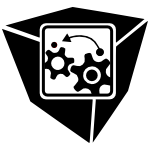 SOFTVIS-2010-AftandilianKGRSG #comprehension #interactive #named #visualisation
SOFTVIS-2010-AftandilianKGRSG #comprehension #interactive #named #visualisation- Heapviz: interactive heap visualization for program understanding and debugging (EA, SK, CG, NPR, SLS, SZG), pp. 53–62.
 SOFTVIS-2010-ChengTWH #animation #automation #named
SOFTVIS-2010-ChengTWH #animation #automation #named- xDIVA: automatic animation between debugging break points (YPC, HYT, CSW, CHH), pp. 221–222.
 SEKE-2010-CunhaCNAM #analysis #visual notation
SEKE-2010-CunhaCNAM #analysis #visual notation- A Visual Bug Report Analysis and Search Tool (CEAdC, YCC, PAdMSN, ESdA, SRdLM), pp. 742–747.
 SEKE-2010-WangXLS #optimisation #probability
SEKE-2010-WangXLS #optimisation #probability- A Stochastic Model for Optimizing the Patching Time of Software Bugs (YW, DX, WML, DBS), pp. 88–92.
 SEKE-2010-XuanJRYL #automation #classification #using
SEKE-2010-XuanJRYL #automation #classification #using- Automatic Bug Triage using Semi-Supervised Text Classification (JX, HJ, ZR, JY, ZL), pp. 209–214.
 ECOOP-2010-DhooliaMSS #using
ECOOP-2010-DhooliaMSS #using- Debugging Model-Transformation Failures Using Dynamic Tainting (PD, SM, VSS, SS), pp. 26–51.
 OOPSLA-2010-JinTLL #concurrent
OOPSLA-2010-JinTLL #concurrent- Instrumentation and sampling strategies for cooperative concurrency bug isolation (GJ, AVT, BL, SL), pp. 241–255.
 OOPSLA-2010-ShiPYLZCZ #concurrent #detection #invariant
OOPSLA-2010-ShiPYLZCZ #concurrent #detection #invariant- Do I use the wrong definition?: DeFuse: definition-use invariants for detecting concurrency and sequential bugs (YS, SP, ZY, SL, YZ, WC, WZ), pp. 160–174.
 LOPSTR-2010-InsaS #algorithm #execution #scalability
LOPSTR-2010-InsaS #algorithm #execution #scalability- Scaling Up Algorithmic Debugging with Virtual Execution Trees (DI, JS), pp. 149–163.
 PLDI-2010-BondBG #analysis #context-sensitive grammar #detection #named #performance
PLDI-2010-BondBG #analysis #context-sensitive grammar #detection #named #performance- Breadcrumbs: efficient context sensitivity for dynamic bug detection analyses (MDB, GZB, SZG), pp. 13–24.
 PLDI-2010-LeeWHGM #detection #interface #named
PLDI-2010-LeeWHGM #detection #interface #named- Jinn: synthesizing dynamic bug detectors for foreign language interfaces (BL, BW, MH, RG, KSM), pp. 36–49.
 SAC-PL-J-2008-BussBSE10 #analysis #novel #pointer
SAC-PL-J-2008-BussBSE10 #analysis #novel #pointer- A novel analysis space for pointer analysis and its application for bug finding (MB, DB, VCS, SAE), pp. 921–942.
 ASE-2010-HahnleBBR #execution #interactive #symbolic computation #visual notation
ASE-2010-HahnleBBR #execution #interactive #symbolic computation #visual notation- A visual interactive debugger based on symbolic execution (RH, MB, RB, MR), pp. 143–146.
 ASE-2010-KimYS #memory management #model checking #named #using
ASE-2010-KimYS #memory management #model checking #named #using- JRF-E: using model checking to give advice on eliminating memory model-related bugs (KK, TYK, BAS), pp. 215–224.
 ASE-2010-LawallL #approach #automation
ASE-2010-LawallL #approach #automation- An automated approach for finding variable-constant pairing bugs (JLL, DL), pp. 103–112.
 ASE-2010-VisserG #named
ASE-2010-VisserG #named- Impendulo: debugging the programmer (WV, JG), pp. 351–352.
 ASE-2010-XingSLD #named #specification
ASE-2010-XingSLD #named #specification- SpecDiff: debugging formal specifications (ZX, JS, YL, JSD), pp. 353–354.
 FSE-2010-BachmannBRDB #commit
FSE-2010-BachmannBRDB #commit- The missing links: bugs and bug-fix commits (AB, CB, FR, PTD, AB), pp. 97–106.
 FSE-2010-BanerjeeRHL #implementation
FSE-2010-BanerjeeRHL #implementation- Golden implementation driven software debugging (AB, AR, JAH, ZL), pp. 177–186.
 FSE-2010-JalbertS #concurrent #effectiveness #source code
FSE-2010-JalbertS #concurrent #effectiveness #source code- A trace simplification technique for effective debugging of concurrent programs (NJ, KS), pp. 57–66.
 FSE-2010-KillianNPBAJ #implementation #performance
FSE-2010-KillianNPBAJ #implementation #performance- Finding latent performance bugs in systems implementations (CEK, KN, SP, RB, JWA, RJ), pp. 17–26.
 ICSE-2010-GuBHS #question
ICSE-2010-GuBHS #question- Has the bug really been fixed? (ZG, ETB, DJH, ZS), pp. 55–64.
 ICSE-2010-GuoZNM #empirical #predict
ICSE-2010-GuoZNM #empirical #predict- Characterizing and predicting which bugs get fixed: an empirical study of Microsoft Windows (PJG, TZ, NN, BM), pp. 495–504.
 ICSE-2010-NainarL #adaptation
ICSE-2010-NainarL #adaptation- Adaptive bug isolation (PAN, BL), pp. 255–264.
 ICSE-2010-NguyenNPAN #object-oriented #source code
ICSE-2010-NguyenNPAN #object-oriented #source code- Recurring bug fixes in object-oriented programs (TTN, HAN, NHP, JMAK, TNN), pp. 315–324.
 ICSE-2010-RastkarMM #case study
ICSE-2010-RastkarMM #case study- Summarizing software artifacts: a case study of bug reports (SR, GCM, GM), pp. 505–514.
 ICSE-2010-RungtaM #concurrent #slicing #source code
ICSE-2010-RungtaM #concurrent #slicing #source code- Slicing and dicing bugs in concurrent programs (NR, EM), pp. 195–198.
 ICSE-2010-SahooCA #automation #empirical
ICSE-2010-SahooCA #automation #empirical- An empirical study of reported bugs in server software with implications for automated bug diagnosis (SKS, JC, VSA), pp. 485–494.
 ICSE-2010-SongWXZM #detection #named
ICSE-2010-SongWXZM #detection #named- JDF: detecting duplicate bug reports in Jazz (YS, XW, TX, LZ, HM), pp. 315–316.
 ICSE-2010-SunLWJK #approach #retrieval
ICSE-2010-SunLWJK #approach #retrieval- A discriminative model approach for accurate duplicate bug report retrieval (CS, DL, XW, JJ, SCK), pp. 45–54.
 ICSE-2010-ZhangYZCY #automation #generative #named
ICSE-2010-ZhangYZCY #automation #generative #named- BPGen: an automated breakpoint generator for debugging (CZ, DY, JZ, YC, SY), pp. 271–274.
 SAC-2010-PopeeaC #analysis #proving #safety
SAC-2010-PopeeaC #analysis #proving #safety- Dual analysis for proving safety and finding bugs (CP, WNC), pp. 2137–2143.
 GPCE-J-2007-CulpepperF10 #metaprogramming
GPCE-J-2007-CulpepperF10 #metaprogramming- Debugging hygienic macros (RC, MF), pp. 496–515.
 SLE-2010-BandenerSE #behaviour #execution #specification #visual notation
SLE-2010-BandenerSE #behaviour #execution #specification #visual notation- Extending DMM Behavior Specifications for Visual Execution and Debugging (NB, CS, GE), pp. 357–376.
 SLE-2010-MannadiarV #modelling
SLE-2010-MannadiarV #modelling- Debugging in Domain-Specific Modelling (RM, HV), pp. 276–285.
 ASPLOS-2010-BurckhardtKMN #probability #random
ASPLOS-2010-BurckhardtKMN #probability #random- A randomized scheduler with probabilistic guarantees of finding bugs (SB, PK, MM, SN), pp. 167–178.
 ASPLOS-2010-WeeratungeZJ #concurrent #manycore
ASPLOS-2010-WeeratungeZJ #concurrent #manycore- Analyzing multicore dumps to facilitate concurrency bug reproduction (DW, XZ, SJ), pp. 155–166.
 ASPLOS-2010-ZhangSL #approach #concurrent #detection #named
ASPLOS-2010-ZhangSL #approach #concurrent #detection #named- ConMem: detecting severe concurrency bugs through an effect-oriented approach (WZ, CS, SL), pp. 179–192.
 DAC-2010-ConstantinidesA #testing #using
DAC-2010-ConstantinidesA #testing #using- Using introspective software-based testing for post-silicon debug and repair (KC, TMA), pp. 537–542.
 DAC-2010-ParkBWM #graph #locality #named #using
DAC-2010-ParkBWM #graph #locality #named #using- BLoG: post-silicon bug localization in processors using bug localization graphs (SBP, AB, HW, SM), pp. 368–373.
 DATE-2010-NeishaburiZ #clustering #performance
DATE-2010-NeishaburiZ #clustering #performance- Enabling efficient post-silicon debug by clustering of hardware-assertions (MHN, ZZ), pp. 985–988.
 DATE-2010-WenCCL #named #parallel #runtime #source code
DATE-2010-WenCCL #named #parallel #runtime #source code- RunAssert: A non-intrusive run-time assertion for parallel programs debugging (CNW, SHC, TFC, TJL), pp. 287–290.
 DATE-2010-ZengGA #embedded #framework #visual notation
DATE-2010-ZengGA #embedded #framework #visual notation- Graphical Model Debugger Framework for embedded systems (KZ, YG, CA), pp. 87–92.
 HPDC-2010-AbramsonDKMD #parallel
HPDC-2010-AbramsonDKMD #parallel- Data centric highly parallel debugging (DA, MND, DK, BM, LDR), pp. 119–129.
 PPoPP-2010-ZyulkyarovHUCV #memory management #source code #transaction
PPoPP-2010-ZyulkyarovHUCV #memory management #source code #transaction- Debugging programs that use atomic blocks and transactional memory (FZ, TH, OSÜ, AC, MV), pp. 57–66.
 WRLA-2010-RiescoVM #maude #specification
WRLA-2010-RiescoVM #maude #specification- Enhancing the Debugging of Maude Specifications (AR, AV, NMO), pp. 226–242.
 CAV-2010-KahlonW #concurrent #detection #graph #precise #source code
CAV-2010-KahlonW #concurrent #detection #graph #precise #source code- Universal Causality Graphs: A Precise Happens-Before Model for Detecting Bugs in Concurrent Programs (VK, CW), pp. 434–449.
 ICLP-2010-Lopez-GarciaDB10 #framework #resource management #verification
ICLP-2010-Lopez-GarciaDB10 #framework #resource management #verification- A Framework for Verification and Debugging of Resource Usage Properties: Resource Usage Verification (PLG, LD, FB), pp. 104–113.
 ICLP-J-2010-BrummayerJ #development #testing
ICLP-J-2010-BrummayerJ #development #testing- Testing and debugging techniques for answer set solver development (RB, MJ), pp. 741–758.
 ICLP-J-2010-OetschPT #source code
ICLP-J-2010-OetschPT #source code- Catching the Ouroboros: On debugging non-ground answer-set programs (JO, JP, HT), pp. 513–529.
 ICST-2010-HeiskanenJK #modelling #testing #user interface
ICST-2010-HeiskanenJK #modelling #testing #user interface- Debug Support for Model-Based GUI Testing (HH, AJ, MK), pp. 25–34.
 ICST-2010-KimSGSHN #analysis #automation #identification
ICST-2010-KimSGSHN #analysis #automation #identification- Automated Bug Neighborhood Analysis for Identifying Incomplete Bug Fixes (MK, SS, CG, HS, MJH, MGN), pp. 383–392.
 ICST-2010-WeyukerBO #question #what
ICST-2010-WeyukerBO #question #what- We’re Finding Most of the Bugs, but What are We Missing? (EJW, RMB, TJO), pp. 313–322.
 IJCAR-2010-MouraB #development #reasoning
IJCAR-2010-MouraB #development #reasoning- Bugs, Moles and Skeletons: Symbolic Reasoning for Software Development (LMdM, NB), pp. 400–411.
 ISSTA-2010-WeeratungeZSJ #concurrent #slicing #using
ISSTA-2010-WeeratungeZSJ #concurrent #slicing #using- Analyzing concurrency bugs using dual slicing (DW, XZ, WNS, SJ), pp. 253–264.
 SAT-2010-BrummayerLB #automation #satisfiability #testing
SAT-2010-BrummayerLB #automation #satisfiability #testing- Automated Testing and Debugging of SAT and QBF Solvers (RB, FL, AB), pp. 44–57.
 TAP-2010-ChebaroKGJ #c #generative #static analysis #testing
TAP-2010-ChebaroKGJ #c #generative #static analysis #testing- Combining Static Analysis and Test Generation for C Program Debugging (OC, NK, AG, JJ), pp. 94–100.
 QoSA-2009-WaignierMD #component #design #framework #modelling
QoSA-2009-WaignierMD #component #design #framework #modelling- A Model-Based Framework to Design and Debug Safe Component-Based Autonomic Systems (GW, AFLM, LD), pp. 1–17.
 ICPC-2009-BaysalGC #automation #framework
ICPC-2009-BaysalGC #automation #framework- A bug you like: A framework for automated assignment of bugs (OB, MWG, RC), pp. 297–298.
 ICPC-2009-JeffreyFGG #developer #named
ICPC-2009-JeffreyFGG #developer #named- BugFix: A learning-based tool to assist developers in fixing bugs (DJ, MF, NG, RG), pp. 70–79.
 ICPC-2009-StefikG #empirical #using
ICPC-2009-StefikG #empirical #using- Using spoken text to aid debugging: An empirical study (AS, EG), pp. 110–119.
 ICSM-2009-AnbalaganV #on the #open source #predict
ICSM-2009-AnbalaganV #on the #open source #predict- On predicting the time taken to correct bug reports in open source projects (PA, MAV), pp. 523–526.
 ICSM-2009-Zimmermann #development #mining #predict #process
ICSM-2009-Zimmermann #development #mining #predict #process- Changes and bugs — Mining and predicting development activities (TZ), pp. 443–446.
 MSR-2009-LinsteadB #gnome #mining #modelling #statistics #topic
MSR-2009-LinsteadB #gnome #mining #modelling #statistics #topic- Mining the coherence of GNOME bug reports with statistical topic models (EL, PB), pp. 99–102.
 MSR-2009-MatterKN #developer #using
MSR-2009-MatterKN #developer #using- Assigning bug reports using a vocabulary-based expertise model of developers (DM, AK, ON), pp. 131–140.
 WCRE-1999-FerzundAW99a
WCRE-1999-FerzundAW99a - Bug-Inducing Language Constructs (JF, SNA, FW), pp. 155–159.
 SEKE-2009-AhsanFW #estimation #machine learning #using
SEKE-2009-AhsanFW #estimation #machine learning #using- Program File Bug Fix Effort Estimation Using Machine Learning Methods for OSS (SNA, JF, FW), pp. 129–134.
 SEKE-2009-Al-SharifJ #architecture #multi
SEKE-2009-Al-SharifJ #architecture #multi- A Multi-agent Debugging Extension Architecture (ZAS, CLJ), pp. 194–199.
 SEKE-2009-Al-SharifJ09a
SEKE-2009-Al-SharifJ09a - Language Support for Event-based Debugging (ZAS, CLJ), pp. 392–399.
 MoDELS-2009-WimmerKSKRS #modelling #petri net #qvt #using
MoDELS-2009-WimmerKSKRS #modelling #petri net #qvt #using- Reviving QVT Relations: Model-Based Debugging Using Colored Petri Nets (MW, AK, JS, GK, WR, WS), pp. 727–732.
 MoDELS-2009-WimmerKSKRS #modelling #petri net #qvt #using
MoDELS-2009-WimmerKSKRS #modelling #petri net #qvt #using- Reviving QVT Relations: Model-Based Debugging Using Colored Petri Nets (MW, AK, JS, GK, WR, WS), pp. 727–732.
 ECOOP-2009-HostO
ECOOP-2009-HostO - Debugging Method Names (EWH, BMØ), pp. 294–317.
 OOPSLA-2009-LeeHGM
OOPSLA-2009-LeeHGM - Debug all your code: portable mixed-environment debugging (BL, MH, RG, KSM), pp. 207–226.
 TOOLS-EUROPE-2009-LienhardFN
TOOLS-EUROPE-2009-LienhardFN - Flow-Centric, Back-in-Time Debugging (AL, JF, ON), pp. 272–288.
 PEPM-2009-CifuentesKLS #detection #program analysis #using
PEPM-2009-CifuentesKLS #detection #program analysis #using- Program analysis for bug detection using parfait: invited talk (CC, NK, LL, BS), pp. 7–8.
 PPDP-2009-Virseda #algorithm #declarative #framework #higher-order #logic #source code #verification
PPDP-2009-Virseda #algorithm #declarative #framework #higher-order #logic #source code #verification- A higher-order logical framework for the algorithmic debugging and verification of declarative programs (RdVV), pp. 49–60.
 ASE-2009-MalikGEK #automation #data type #using
ASE-2009-MalikGEK #automation #data type #using- A Case for Automated Debugging Using Data Structure Repair (MZM, KG, BE, SK), pp. 620–624.
 ASE-2009-ShivajiWAK #predict
ASE-2009-ShivajiWAK #predict- Reducing Features to Improve Bug Prediction (SS, EJWJ, RA, SK), pp. 600–604.
 ASE-2009-WimmerKSKRS #petri net #qvt
ASE-2009-WimmerKSKRS #petri net #qvt- A Petri Net Based Debugging Environment for QVT Relations (MW, GK, JS, AK, WR, WS), pp. 3–14.
 ESEC-FSE-2009-AshokJLRSV #named #recommendation
ESEC-FSE-2009-AshokJLRSV #named #recommendation- DebugAdvisor: a recommender system for debugging (BA, JMJ, HL, SKR, GS, VV), pp. 373–382.
 ESEC-FSE-2009-BirdBADBFD #bias #dataset
ESEC-FSE-2009-BirdBADBFD #bias #dataset- Fair and balanced?: bias in bug-fix datasets (CB, AB, EA, JD, AB, VF, PTD), pp. 121–130.
 ESEC-FSE-2009-JeongKZ #graph
ESEC-FSE-2009-JeongKZ #graph- Improving bug triage with bug tossing graphs (GJ, SK, TZ), pp. 111–120.
 ESEC-FSE-2009-QiRLV #approach #evolution #named #source code
ESEC-FSE-2009-QiRLV #approach #evolution #named #source code- Darwin: an approach for debugging evolving programs (DQ, AR, ZL, KV), pp. 33–42.
 ESEC-FSE-2009-Zeller
ESEC-FSE-2009-Zeller - Debugging debugging: acm sigsoft impact paper award keynote (AZ), pp. 263–264.
 ICSE-2009-ArandaV #fault #repository
ICSE-2009-ArandaV #fault #repository- The secret life of bugs: Going past the errors and omissions in software repositories (JA, GV), pp. 298–308.
 ICSE-2009-ChilimbiLMNV #effectiveness #named #performance #profiling #statistics
ICSE-2009-ChilimbiLMNV #effectiveness #named #performance #profiling #statistics- HOLMES: Effective statistical debugging via efficient path profiling (TMC, BL, KKM, AVN, KV), pp. 34–44.
 ICSE-2009-HaoZZSM #interactive #named #visual notation
ICSE-2009-HaoZZSM #interactive #named #visual notation- VIDA: Visual interactive debugging (DH, LZ, LZ, JS, HM), pp. 583–586.
 SAC-2009-Al-SharifJ
SAC-2009-Al-SharifJ - An extensible source-level debugger (ZAS, CJ), pp. 543–544.
 SAC-2009-BohnetVD #execution #locality
SAC-2009-BohnetVD #execution #locality- Projecting code changes onto execution traces to support localization of recently introduced bugs (JB, SV, JD), pp. 438–442.
 SAC-2009-MaengKSR #architecture #embedded #named #realtime
SAC-2009-MaengKSR #architecture #embedded #named #realtime- RT-replayer: a record-replay architecture for embedded real-time software debugging (JCM, JIK, MKS, MR), pp. 1670–1675.
 ASPLOS-2009-DimitrovZ #approach #automation #predict #validation
ASPLOS-2009-DimitrovZ #approach #automation #predict #validation- Anomaly-based bug prediction, isolation, and validation: an automated approach for software debugging (MD, HZ), pp. 61–72.
 ASPLOS-2009-ParkLZ #named
ASPLOS-2009-ParkLZ #named- CTrigger: exposing atomicity violation bugs from their hiding places (SP, SL, YZ), pp. 25–36.
 CC-2009-DaoAKV #distributed
CC-2009-DaoAKV #distributed- Live Debugging of Distributed Systems (DD, JRA, CEK, AV), pp. 94–108.
 CGO-2009-KumarCS
CGO-2009-KumarCS - Transparent Debugging of Dynamically Optimized Code (NK, BRC, MLS), pp. 275–286.
 DAC-2009-Bertacco
DAC-2009-Bertacco - Debugging strategies for mere mortals (VB), pp. 635–638.
 DAC-2009-FujitaKG
DAC-2009-FujitaKG - Debugging from high level down to gate level (MF, YK, AMG), pp. 627–630.
 DAC-2009-RanjanCS #verification
DAC-2009-RanjanCS #verification- Beyond verification: leveraging formal for debugging (RKR, CC, SS), pp. 648–651.
 DAC-2009-SiegelMP #performance
DAC-2009-SiegelMP #performance- Untwist your brain: efficient debugging and diagnosis of complex assertions (MS, AM, CP), pp. 644–647.
 DAC-2009-VishnoiPB #online
DAC-2009-VishnoiPB #online- Online cache state dumping for processor debug (AV, PRP, MB), pp. 358–363.
 DAC-2009-WenCCS #architecture #concurrent #detection #manycore #named
DAC-2009-WenCCS #architecture #concurrent #detection #manycore #named- NUDA: a non-uniform debugging architecture and non-intrusive race detection for many-core (CNW, SHC, TFC, APS), pp. 148–153.
 DATE-2009-GoossensVN
DATE-2009-GoossensVN - A high-level debug environment for communication-centric debug (KG, BV, ABN), pp. 202–207.
 DATE-2009-SulflowFBKD #satisfiability
DATE-2009-SulflowFBKD #satisfiability- Increasing the accuracy of SAT-based debugging (AS, GF, CB, UK, RD), pp. 1326–1331.
 DATE-2009-VishnoiPB
DATE-2009-VishnoiPB - Cache aware compression for processor debug support (AV, PRP, MB), pp. 208–213.
 DATE-2009-WilleGFDD #network
DATE-2009-WilleGFDD #network- Debugging of Toffoli networks (RW, DG, SF, GWD, RD), pp. 1284–1289.
 DATE-2009-YangNV #automation #data analysis
DATE-2009-YangNV #automation #data analysis- Automated data analysis solutions to silicon debug (YSY, NN, AGV), pp. 982–987.
 LCTES-2009-McKechnieBV #monitoring #transaction
LCTES-2009-McKechnieBV #monitoring #transaction- Debugging FPGA-based packet processing systems through transaction-level communication-centric monitoring (PEM, MB, WV), pp. 129–136.
 SOSP-2009-AltekarS #manycore #named
SOSP-2009-AltekarS #manycore #named- ODR: output-deterministic replay for multicore debugging (GA, IS), pp. 193–206.
 SOSP-2009-GlerumKGAONGLH #experience #implementation #scalability
SOSP-2009-GlerumKGAONGLH #experience #implementation #scalability- Debugging in the (very) large: ten years of implementation and experience (KG, KK, SG, GA, VO, GN, DG, GL, GCH), pp. 103–116.
 WRLA-2008-CaballeroMRV09 #declarative #functional #maude
WRLA-2008-CaballeroMRV09 #declarative #functional #maude- A Declarative Debugger for Maude Functional Modules (RC, NMO, AR, AV), pp. 63–81.
 ICLP-2009-Ducasse
ICLP-2009-Ducasse - (C)LP Tracing and Debugging (MD), p. 38.
 ICLP-2009-WittocxVD
ICLP-2009-WittocxVD - Debugging for Model Expansion (JW, HV, MD), pp. 296–311.
 ISSTA-2009-ChengLZWY #graph #identification #mining #using
ISSTA-2009-ChengLZWY #graph #identification #mining #using- Identifying bug signatures using discriminative graph mining (HC, DL, YZ, XW, XY), pp. 141–152.
 MBT-2009-KimHHK #concurrent #kernel #modelling #testing
MBT-2009-KimHHK #concurrent #kernel #modelling #testing- Model-based Kernel Testing for Concurrency Bugs through Counter Example Replay (MK, SH, CH, TK), pp. 21–36.
 TestCom-FATES-2009-SteinertPBLH
TestCom-FATES-2009-SteinertPBLH - Debugging into Examples (BS, MP, MB, JL, RH), pp. 235–240.
 VMCAI-2009-KiddRDV #random #using
VMCAI-2009-KiddRDV #random #using- Finding Concurrency-Related Bugs Using Random Isolation (NK, TWR, JD, MV), pp. 198–213.
 ICSM-2008-BettenburgPZK #harmful #question
ICSM-2008-BettenburgPZK #harmful #question- Duplicate bug reports considered harmful ... really? (NB, RP, TZ, SK), pp. 337–345.
 ICSM-2008-JeffreyGG #identification #memory management #using
ICSM-2008-JeffreyGG #identification #memory management #using- Identifying the root causes of memory bugs using corrupted memory location suppression (DJ, NG, RG), pp. 356–365.
 ICSM-2008-ZhangGLZ08a #aspectj #automation #named
ICSM-2008-ZhangGLZ08a #aspectj #automation #named- AutoFlow: An automatic debugging tool for AspectJ software (SZ, ZG, YL, JZ), pp. 470–471.
 MSR-2008-BettenburgPZK
MSR-2008-BettenburgPZK - Extracting structural information from bug reports (NB, RP, TZ, SK), pp. 27–30.
 MSR-2008-HerraizGGR #eclipse #towards
MSR-2008-HerraizGGR #eclipse #towards- Towards a simplification of the bug report form in eclipse (IH, DMG, JMGB, GR), pp. 145–148.
 MSR-2008-SudakrishnanMWR #comprehension
MSR-2008-SudakrishnanMWR #comprehension- Understanding bug fix patterns in verilog (SS, JTM, EJWJ, JR), pp. 39–42.
 SCAM-2008-Cifuentes #c #named #scalability
SCAM-2008-Cifuentes #c #named #scalability- Parfait — A Scalable Bug Checker for C Code (CC), pp. 263–264.
 SCAM-2008-GorbovitskiTRSL #analysis #performance
SCAM-2008-GorbovitskiTRSL #analysis #performance- Analysis and Transformations for Efficient Query-Based Debugging (MG, KTT, TR, SDS, YAL), pp. 174–183.
 WCRE-2008-LukinsKE #locality #retrieval #source code #using
WCRE-2008-LukinsKE #locality #retrieval #source code #using- Source Code Retrieval for Bug Localization Using Latent Dirichlet Allocation (SKL, NAK, LHE), pp. 155–164.
 CHI-2008-SubrahmaniyanBGBWNBDF #testing #what
CHI-2008-SubrahmaniyanBGBWNBDF #testing #what- Testing vs. code inspection vs. what else?: male and female end users’ debugging strategies (NS, LB, VG, MMB, SW, VN, KB, RD, XZF), pp. 617–626.
 ICEIS-J-2008-Zacharias08a #challenge #rule-based
ICEIS-J-2008-Zacharias08a #challenge #rule-based- Tackling the Debugging Challenge of Rule Based Systems (VZ), pp. 144–154.
 SIGIR-2008-ChenJYW #clustering #information retrieval #learning
SIGIR-2008-ChenJYW #clustering #information retrieval #learning- Information retrieval on bug locations by learning co-located bug report clusters (IXC, HJ, CZY, PJW), pp. 801–802.
 ECOOP-2008-LienhardGN #object-oriented
ECOOP-2008-LienhardGN #object-oriented- Practical Object-Oriented Back-in-Time Debugging (AL, TG, ON), pp. 592–615.
 PPDP-2008-ChitilD #algorithm #finite #functional #higher-order #source code
PPDP-2008-ChitilD #algorithm #finite #functional #higher-order #source code- Comprehending finite maps for algorithmic debugging of higher-order functional programs (OC, TD), pp. 205–216.
 SAS-2008-Liblit #static analysis
SAS-2008-Liblit #static analysis- Reflections on the Role of Static Analysis in Cooperative Bug Isolation (BL), pp. 18–31.
 ASE-2008-HsuJO #agile #identification #named #process
ASE-2008-HsuJO #agile #identification #named #process- Rapid: Identifying Bug Signatures to Support Debugging Activities (HYH, JAJ, AO), pp. 439–442.
 ASE-2008-MayerS #modelling
ASE-2008-MayerS #modelling- Evaluating Models for Model-Based Debugging (WM, MS), pp. 128–137.
 ASE-2008-Yom-TovTUH #automation #concurrent #random #source code
ASE-2008-Yom-TovTUH #automation #concurrent #random #source code- Automatic Debugging of Concurrent Programs through Active Sampling of Low Dimensional Random Projections (EYT, RT, SU, SH), pp. 307–316.
 FSE-2008-BettenburgJSWPZ #question #what
FSE-2008-BettenburgJSWPZ #question #what- What makes a good bug report? (NB, SJ, AS, CW, RP, TZ), pp. 308–318.
 ICSE-2008-KoM #behaviour #why
ICSE-2008-KoM #behaviour #why- Debugging reinvented: asking and answering why and why not questions about program behavior (AJK, BAM), pp. 301–310.
 ICSE-2008-StoreyRBMS #developer #game studies #how
ICSE-2008-StoreyRBMS #developer #game studies #how- TODO or to bug: exploring how task annotations play a role in the work practices of software developers (MADS, JR, RIB, DM, JS), pp. 251–260.
 ICSE-2008-WangZXAS #approach #detection #execution #natural language #using
ICSE-2008-WangZXAS #approach #detection #execution #natural language #using- An approach to detecting duplicate bug reports using natural language and execution information (XW, LZ, TX, JA, JS), pp. 461–470.
 SAC-2008-PothierT #aspect-oriented #programming
SAC-2008-PothierT #aspect-oriented #programming- Extending omniscient debugging to support aspect-oriented programming (GP, ÉT), pp. 266–270.
 ASPLOS-2008-CastroCM #privacy
ASPLOS-2008-CastroCM #privacy- Better bug reporting with better privacy (MC, MC, JPM), pp. 319–328.
 ASPLOS-2008-LuPSZ #concurrent #learning
ASPLOS-2008-LuPSZ #concurrent #learning- Learning from mistakes: a comprehensive study on real world concurrency bug characteristics (SL, SP, ES, YZ), pp. 329–339.
 CC-2008-ZhaoRARW #how #performance #using
CC-2008-ZhaoRARW #how #performance #using- How to Do a Million Watchpoints: Efficient Debugging Using Dynamic Instrumentation (QZ, RMR, SPA, LR, WFW), pp. 147–162.
 DAC-2008-HsiehH #embedded #framework #interface #platform
DAC-2008-HsiehH #embedded #framework #interface #platform- An embedded infrastructure of debug and trace interface for the DSP platform (MCH, CTH), pp. 866–871.
 DAC-2008-ParkM #analysis #locality #named
DAC-2008-ParkM #analysis #locality #named- IFRA: instruction footprint recording and analysis for post-silicon bug localization in processors (SBP, SM), pp. 373–378.
 DATE-2008-ChattopadhyayZ #online
DATE-2008-ChattopadhyayZ #online- Built-in Clock Skew System for On-line Debug and Repair (AC, ZZ), pp. 248–251.
 DATE-2008-TangX #transaction
DATE-2008-TangX #transaction- In-band Cross-Trigger Event Transmission for Transaction-Based Debug (ST, QX), pp. 414–419.
 ICST-2008-WagnerDAWS #evaluation #java #tool support
ICST-2008-WagnerDAWS #evaluation #java #tool support- An Evaluation of Two Bug Pattern Tools for Java (SW, FD, MA, JW, MS), pp. 248–257.
 ISSTA-2008-ArtziKDTDPE #web
ISSTA-2008-ArtziKDTDPE #web- Finding bugs in dynamic web applications (SA, AK, JD, FT, DD, AMP, MDE), pp. 261–272.
 ISSTA-2008-KondohO #interface #java #source code
ISSTA-2008-KondohO #interface #java #source code- Finding bugs in java native interface programs (GK, TO), pp. 109–118.
 ISSTA-2008-Liblit #testing
ISSTA-2008-Liblit #testing- Cooperative debugging with five hundred million test cases (BL), pp. 119–120.
 ICPC-2007-StefikAPB #named #using
ICPC-2007-StefikAPB #named #using- WAD: A Feasibility study using the Wicked Audio Debugger (AS, RTA, RP, JB), pp. 69–80.
 ICSM-2007-BrandBS #analysis #detection
ICSM-2007-BrandBS #analysis #detection- Evidence-Based Analysis and Inferring Preconditions for Bug Detection (DB, MB, VCS), pp. 44–53.
 ICSM-2007-NagarajanJGG #named #online #performance
ICSM-2007-NagarajanJGG #named #online #performance- ONTRAC: A system for efficient ONline TRACing for debugging (VN, DJ, RG, NG), pp. 445–454.
 ICSM-2007-OsterlieW
ICSM-2007-OsterlieW - Debugging Integrated Systems: An Ethnographic Study of Debugging Practice (TØ, AIW), pp. 305–314.
 MSR-2007-AnvikM #implementation
MSR-2007-AnvikM #implementation- Determining Implementation Expertise from Bug Reports (JA, GCM), p. 2.
 MSR-2007-JoshiZRB #approach #predict
MSR-2007-JoshiZRB #approach #predict- Local and Global Recency Weighting Approach to Bug Prediction (HJ, CZ, SR, CB), p. 33.
 MSR-2007-Panjer #eclipse #predict
MSR-2007-Panjer #eclipse #predict- Predicting Eclipse Bug Lifetimes (LDP), p. 29.
 MSR-2007-WeissPZZ #how #question
MSR-2007-WeissPZZ #how #question- How Long Will It Take to Fix This Bug? (CW, RP, TZ, AZ), p. 1.
 PASTE-2007-HovemeyerP #null #pointer
PASTE-2007-HovemeyerP #null #pointer- Finding more null pointer bugs, but not too many (DH, WP), pp. 9–14.
 SCAM-2007-Larson #detection #framework #named #tool support
SCAM-2007-Larson #detection #framework #named #tool support- SUDS: An Infrastructure for Creating Bug Detection Tools (EL), pp. 123–132.
 WCRE-2007-RaberL #data mining #mining #using
WCRE-2007-RaberL #data mining #mining #using- Emulated Breakpoint Debugger and Data Mining Using Detours (JR, EL), pp. 271–272.
 IFM-2007-CalameIPS
IFM-2007-CalameIPS - Bug Hunting with False Negatives (JRC, NI, JvdP, NS), pp. 98–117.
 Haskell-2007-MarlowIPG #haskell #interactive #lightweight
Haskell-2007-MarlowIPG #haskell #interactive #lightweight- A lightweight interactive debugger for haskell (SM, JI, BJP, AG), pp. 13–24.
 IFL-2007-BrasselS #functional #lazy evaluation #source code
IFL-2007-BrasselS #functional #lazy evaluation #source code- Debugging Lazy Functional Programs by Asking the Oracle (BB, HS), pp. 183–200.
 VISSOFT-2007-DAmbrosLP #database #visualisation
VISSOFT-2007-DAmbrosLP #database #visualisation- “A Bug’s Life” Visualizing a Bug Database (MD, ML, MP), pp. 113–120.
 VISSOFT-2007-VoineaT #process #repository #source code #visualisation
VISSOFT-2007-VoineaT #process #repository #source code #visualisation- Visualizing Debugging Activity in Source Code Repositories (LV, ACT), pp. 156–157.
 SEKE-2007-ZachariasA #on the #rule-based
SEKE-2007-ZachariasA #on the #rule-based- On Modern Debugging For Rule-Based Systems (VZ, AA), pp. 349–353.
 MoDELS-2007-HibberdLR #forensics #model transformation
MoDELS-2007-HibberdLR #forensics #model transformation- Forensic Debugging of Model Transformations (MH, ML, KR), pp. 589–604.
 MoDELS-2007-PilskalnsWI #runtime #uml #using
MoDELS-2007-PilskalnsWI #runtime #uml #using- Runtime Debugging Using Reverse-Engineered UML (OP, SW, FI), pp. 605–619.
 MoDELS-2007-HibberdLR #forensics #model transformation
MoDELS-2007-HibberdLR #forensics #model transformation- Forensic Debugging of Model Transformations (MH, ML, KR), pp. 589–604.
 MoDELS-2007-PilskalnsWI #runtime #uml #using
MoDELS-2007-PilskalnsWI #runtime #uml #using- Runtime Debugging Using Reverse-Engineered UML (OP, SW, FI), pp. 605–619.
 OOPSLA-2007-PothierTP #scalability
OOPSLA-2007-PothierTP #scalability- Scalable omniscient debugging (GP, ÉT, JMP), pp. 535–552.
 POPL-2007-PolishchukLS #comprehension #type inference
POPL-2007-PolishchukLS #comprehension #type inference- Dynamic heap type inference for program understanding and debugging (MP, BL, CWS), pp. 39–46.
 ASE-2007-DallmeierZ #benchmark #locality #metric
ASE-2007-DallmeierZ #benchmark #locality #metric- Extraction of bug localization benchmarks from history (VD, TZ), pp. 433–436.
 ASE-2007-HooimeijerW #modelling #quality
ASE-2007-HooimeijerW #modelling #quality- Modeling bug report quality (PH, WW), pp. 34–43.
 ASE-2007-JiangS #control flow #predict #statistics
ASE-2007-JiangS #control flow #predict #statistics- Context-aware statistical debugging: from bug predictors to faulty control flow paths (LJ, ZS), pp. 184–193.
 ASE-2007-YilmazW #approach #automation #modelling
ASE-2007-YilmazW #approach #automation #modelling- An automated model-based debugging approach (CY, CW), pp. 174–183.
 ESEC-FSE-2007-DolbyVT #satisfiability
ESEC-FSE-2007-DolbyVT #satisfiability- Finding bugs efficiently with a SAT solver (JD, MV, FT), pp. 195–204.
 ESEC-FSE-2007-JiangSC #detection
ESEC-FSE-2007-JiangSC #detection- Context-based detection of clone-related bugs (LJ, ZS, EC), pp. 55–64.
 ICSE-2007-AbrahamE #named #spreadsheet
ICSE-2007-AbrahamE #named #spreadsheet- GoalDebug: A Spreadsheet Debugger for End Users (RA, ME), pp. 251–260.
 ICSE-2007-ClauseO
ICSE-2007-ClauseO - A Technique for Enabling and Supporting Debugging of Field Failures (JAC, AO), pp. 261–270.
 ICSE-2007-ElbaumPDJ #testing
ICSE-2007-ElbaumPDJ #testing- Bug Hunt: Making Early Software Testing Lessons Engaging and Affordable (SGE, SP, JD, MJ), pp. 688–697.
 GPCE-2007-CulpepperF #metaprogramming
GPCE-2007-CulpepperF #metaprogramming- Debugging macros (RC, MF), pp. 135–144.
 DATE-2007-AnisN #architecture #interactive #low cost #using
DATE-2007-AnisN #architecture #interactive #low cost #using- Interactive presentation: Low cost debug architecture using lossy compression for silicon debug (EA, NN), pp. 225–230.
 DATE-2007-SafarpourV #abstraction #automation #design #refinement
DATE-2007-SafarpourV #abstraction #automation #design #refinement- Abstraction and refinement techniques in automated design debugging (SS, AGV), pp. 1182–1187.
 DATE-2007-TangX #framework #manycore #platform
DATE-2007-TangX #framework #manycore #platform- A multi-core debug platform for NoC-based systems (ST, QX), pp. 870–875.
 HPCA-2007-VenkataramaniRSP #memory management #monitoring #named #performance #programmable
HPCA-2007-VenkataramaniRSP #memory management #monitoring #named #performance #programmable- MemTracker: Efficient and Programmable Support for Memory Access Monitoring and Debugging (GV, BR, YS, MP), pp. 273–284.
 SOSP-2007-LuPHMJLPZ #automation #concurrent #correlation #detection #multi #named #semantics
SOSP-2007-LuPHMJLPZ #automation #concurrent #correlation #detection #multi #named #semantics- MUVI: automatically inferring multi-variable access correlations and detecting related semantic and concurrency bugs (SL, SP, CH, XM, WJ, ZL, RAP, YZ), pp. 103–116.
 SOSP-2007-TanYKZ
SOSP-2007-TanYKZ - /*icomment: bugs or bad comments?*/ (LT, DY, GK, YZ), pp. 145–158.
 CAV-2007-Kropf #development #formal method #industrial #question
CAV-2007-Kropf #development #formal method #industrial #question- Software Bugs Seen from an Industrial Perspective or Can Formal Methods Help on Automotive Software Development? (TK), p. 3.
 ICLP-2007-CaballeroRV #constraints #declarative #functional #logic programming
ICLP-2007-CaballeroRV #constraints #declarative #functional #logic programming- Declarative Debugging of Missing Answers in Constraint Functional-Logic Programming (RC, MRA, RdVV), pp. 425–427.
 ISSTA-2007-JonesHB #parallel
ISSTA-2007-JonesHB #parallel- Debugging in Parallel (JAJ, MJH, JFB), pp. 16–26.
 ISSTA-2007-NainarCRL #statistics #using
ISSTA-2007-NainarCRL #statistics #using- Statistical debugging using compound boolean predicates (PAN, TC, JR, BL), pp. 5–15.
 ISSTA-2007-TzorefUY #automation #concurrent
ISSTA-2007-TzorefUY #automation #concurrent- Instrumenting where it hurts: an automatic concurrent debugging technique (RT, SU, EYT), pp. 27–38.
 TAP-2007-SmaragdakisC #detection #reasoning
TAP-2007-SmaragdakisC #detection #reasoning- Combining Static and Dynamic Reasoning for Bug Detection (YS, CC), pp. 1–16.
 VLDB-2006-AlexeCT #named
VLDB-2006-AlexeCT #named- SPIDER: a Schema mapPIng DEbuggeR (BA, LC, WCT), pp. 1179–1182.
 VLDB-2006-ChiticariuT
VLDB-2006-ChiticariuT - Debugging Schema Mappings with Routes (LC, WCT), pp. 79–90.
 CSMR-2006-DAmbrosL #approach #evolution #visual notation
CSMR-2006-DAmbrosL #approach #evolution #visual notation- Software Bugs and Evolution: A Visual Approach to Uncover Their Relationship (MD, ML), pp. 229–238.
 ICPC-2006-StefikFA #comprehension #effectiveness #music #runtime #using
ICPC-2006-StefikFA #comprehension #effectiveness #music #runtime #using- Layered Program Auralization: Using Music to Increase Runtime Program Comprehension and Debugging Effectiveness (AS, KF, RTA), pp. 89–93.
 MSR-2006-CanforaC06a #question
MSR-2006-CanforaC06a #question- Where is bug resolution knowledge stored? (GC, LC), pp. 183–184.
 MSR-2006-KimW #how #question
MSR-2006-KimW #how #question- How long did it take to fix bugs? (SK, EJWJ), pp. 173–174.
 SCAM-2006-PanKW #classification #metric #slicing #using
SCAM-2006-PanKW #classification #metric #slicing #using- Bug Classification Using Program Slicing Metrics (KP, SK, EJWJ), pp. 31–42.
 Haskell-2006-Himmelstrup #interactive
Haskell-2006-Himmelstrup #interactive- Interactive debugging with GHCi (DH), p. 107.
 CHI-2006-BeckwithKBWLBC #gender
CHI-2006-BeckwithKBWLBC #gender- Tinkering and gender in end-user programmers’ debugging (LB, CK, MMB, SW, JL, AFB, CRC), pp. 231–240.
 SOFTVIS-2006-LiuV #animation #control flow #low level
SOFTVIS-2006-LiuV #animation #control flow #low level- Animation of control flow for low-level debugging (HL, FSV), pp. 157–158.
 ICML-2006-ZhengJLNA #identification #multi #statistics
ICML-2006-ZhengJLNA #identification #multi #statistics- Statistical debugging: simultaneous identification of multiple bugs (AXZ, MIJ, BL, MN, AA), pp. 1105–1112.
 SEKE-2006-MayerS #coordination #web #web service
SEKE-2006-MayerS #coordination #web #web service- Debugging Failures in Web Services Coordination (WM, MS), pp. 536–543.
 LOPSTR-2006-Silva #algorithm #case study #comparative
LOPSTR-2006-Silva #algorithm #case study #comparative- A Comparative Study of Algorithmic Debugging Strategies (JS), pp. 143–159.
 PADL-2006-MacLartyS #declarative
PADL-2006-MacLartyS #declarative- Controlling Search Space Materialization in a Practical Declarative Debugger (IM, ZS), pp. 31–44.
 PPDP-2006-SilvaC #algorithm #slicing
PPDP-2006-SilvaC #algorithm #slicing- Combining algorithmic debugging and program slicing (JS, OC), pp. 157–166.
 SAS-2006-HuangCS #identification
SAS-2006-HuangCS #identification- Catching and Identifying Bugs in Register Allocation (YH, BRC, MLS), pp. 281–300.
 FSE-2006-KimPW
FSE-2006-KimPW - Memories of bug fixes (SK, KP, EJWJ), pp. 35–45.
 ICSE-2006-Anvik #automation
ICSE-2006-Anvik #automation- Automating bug report assignment (JA), pp. 937–940.
 ICSE-2006-AnvikHM #question
ICSE-2006-AnvikHM #question- Who should fix this bug? (JA, LH, GCM), pp. 361–370.
 ICSE-2006-Ko
ICSE-2006-Ko - Debugging by asking questions about program output (AJK), pp. 989–992.
 ICSE-2006-Misherghi #named
ICSE-2006-Misherghi #named- HDD: hierarchical Delta Debugging (GM, ZS), pp. 142–151.
 GPCE-2006-PorkolabMS #c++ #metaprogramming
GPCE-2006-PorkolabMS #c++ #metaprogramming- Debugging C++ template metaprograms (ZP, JM, ÁS), pp. 255–264.
 GPCE-2006-Weimer
GPCE-2006-Weimer - Patches as better bug reports (WW), pp. 181–190.
 ASPLOS-2006-ChilimbiG #detection #identification #named #using
ASPLOS-2006-ChilimbiG #detection #identification #named #using- HeapMD: identifying heap-based bugs using anomaly detection (TMC, VG), pp. 219–228.
 DAC-2006-HsuTJC
DAC-2006-HsuTJC - Visibility enhancement for silicon debug (YCH, FST, WJ, YTC), pp. 13–18.
 DAC-2006-Josephson
DAC-2006-Josephson - The good, the bad, and the ugly of silicon debug (DJ), pp. 3–6.
 DATE-DF-2006-AkselrodAA #architecture #framework #independence #multi #platform #security
DATE-DF-2006-AkselrodAA #architecture #framework #independence #multi #platform #security- Platform independent debug port controller architecture with security protection for multi-processor system-on-chip ICs (DA, AA, YA), pp. 30–35.
 ESOP-2006-LalLPL #optimisation #source code
ESOP-2006-LalLPL #optimisation #source code- Path Optimization in Programs and Its Application to Debugging (AL, JL, MP, BL), pp. 246–263.
 FASE-2006-FeiLLM #detection #named #online #statistics
FASE-2006-FeiLLM #detection #named #online #statistics- Argus: Online Statistical Bug Detection (LF, KL, FL, SPM), pp. 308–323.
 FASE-2006-KobW #calculus #using
FASE-2006-KobW #calculus #using- Fundamentals of Debugging Using a Resolution Calculus (DK, FW), pp. 278–292.
 ISSTA-2006-BellOW
ISSTA-2006-BellOW - Looking for bugs in all the right places (RMB, TJO, EJW), pp. 61–72.
 ISSTA-2006-CsallnerS #analysis #hybrid #named
ISSTA-2006-CsallnerS #analysis #hybrid #named- DSD-Crasher: a hybrid analysis tool for bug finding (CC, YS), pp. 245–254.
 ITiCSE-2005-AhmadzadehEH #analysis #student
ITiCSE-2005-AhmadzadehEH #analysis #student- An analysis of patterns of debugging among novice computer science students (MA, DE, CH), pp. 84–88.
 ICSM-2005-BriandDL #aspect-oriented #contract #programming
ICSM-2005-BriandDL #aspect-oriented #contract #programming- Instrumenting Contracts with Aspect-Oriented Programming to Increase Observability and Support Debugging (LCB, WJD, YL), pp. 687–690.
 ICSM-2005-ChesleyRR #java #named #source code
ICSM-2005-ChesleyRR #java #named #source code- Crisp: A Debugging Tool for Java Programs (OCC, XR, BGR), pp. 401–410.
 PASTE-2005-HovemeyerSP #null #pointer #static analysis
PASTE-2005-HovemeyerSP #null #pointer #static analysis- Evaluating and tuning a static analysis to find null pointer bugs (DH, JS, WP), pp. 13–19.
 SCAM-2005-Singer #code generation #concept
SCAM-2005-Singer #code generation #concept- Concept Assignment as a Debugging Technique for Code Generators (JS), pp. 75–86.
 FM-2005-Johnson #formal method #using
FM-2005-Johnson #formal method #using- The Natural History of Bugs: Using Formal Methods to Analyse Software Related Failures in Space Missions (CWJ), pp. 9–25.
 SEFM-2005-Trakhtenbrot #testing #using #verification
SEFM-2005-Trakhtenbrot #testing #using #verification- Use of Verification for Testing and Debugging of Complex Reactive Systems (MBT), pp. 13–22.
 CHI-2005-BeckwithBWCSH #effectiveness #gender #question
CHI-2005-BeckwithBWCSH #effectiveness #gender #question- Effectiveness of end-user debugging software features: are there gender issues? (LB, MMB, SW, CRC, SS, MH), pp. 869–878.
 PLDI-2005-LiblitNZAJ #scalability #statistics
PLDI-2005-LiblitNZAJ #scalability #statistics- Scalable statistical bug isolation (BL, MN, AXZ, AA, MIJ), pp. 15–26.
 ESEC-FSE-2005-LiuYFHM #locality #modelling #named #statistics
ESEC-FSE-2005-LiuYFHM #locality #modelling #named #statistics- SOBER: statistical model-based bug localization (CL, XY, LF, JH, SPM), pp. 286–295.
 ICSE-2005-MichailX #user interface
ICSE-2005-MichailX #user interface- Helping users avoid bugs in GUI applications (AM, TX), pp. 107–116.
 SAC-2005-WuGRM #domain-specific language #weaving
SAC-2005-WuGRM #domain-specific language #weaving- Weaving a debugging aspect into domain-specific language grammars (HW, JGG, SR, MM), pp. 1370–1374.
 LDTA-2005-BrandCOV #framework #named #tool support
LDTA-2005-BrandCOV #framework #named #tool support- TIDE: A Generic Debugging Framework — Tool Demonstration (MvdB, BC, PAO, JJV), pp. 161–165.
 CASE-2005-AbdelhameedD #logic #network #programmable #source code
CASE-2005-AbdelhameedD #logic #network #programmable #source code- Diagnosis and debugging of programmable logic controller control programs by neural networks (MMA, HD), pp. 313–318.
 CC-2005-RyuR #multi #programming
CC-2005-RyuR #multi #programming- Source-Level Debugging for Multiple Languages with Modest Programming Effort (SR, NR), pp. 10–26.
 DATE-2005-MayerSM #multi
DATE-2005-MayerSM #multi- Debug Support, Calibration and Emulation for Multiple Processor and Powertrain Control SoCs (AM, HS, KDMM), pp. 148–152.
 DATE-2005-Takeuchi #lightweight #monitoring #using #virtual machine
DATE-2005-Takeuchi #lightweight #monitoring #using #virtual machine- OS Debugging Method Using a Lightweight Virtual Machine Monitor (TT), pp. 1058–1059.
 DATE-2005-YangVTV #automation #design #fault #modelling #power management
DATE-2005-YangVTV #automation #design #fault #modelling #power management- Extraction Error Modeling and Automated Model Debugging in High-Performance Low Power Custom Designs (YSY, AGV, PJT, SV), pp. 996–1001.
 HPCA-2005-CorlissLR #interactive
HPCA-2005-CorlissLR #interactive- Low-Overhead Interactive Debugging via Dynamic Instrumentation with DISE (MLC, ECL, AR), pp. 303–314.
 SOSP-2005-QinTSZ #named
SOSP-2005-QinTSZ #named- Rx: treating bugs as allergies — a safe method to survive software failures (FQ, JT, JS, YZ), pp. 235–248.
 TACAS-2005-KellerSBS #c #model checking #named #source code
TACAS-2005-KellerSBS #c #model checking #named #source code- FocusCheck: A Tool for Model Checking and Debugging Sequential C Programs (CWK, DS, SB, SAS), pp. 563–569.
 CAV-2005-BarnerGR #concurrent #formal method #named #using
CAV-2005-BarnerGR #concurrent #formal method #named #using- Wolf — Bug Hunter for Concurrent Software Using Formal Methods (SB, ZG, IR), pp. 153–157.
 CAV-2005-XieA #detection #named #satisfiability
CAV-2005-XieA #detection #named #satisfiability- Saturn: A SAT-Based Tool for Bug Detection (YX, AA), pp. 139–143.
 TestCom-2005-WagnerJKT #testing #tool support
TestCom-2005-WagnerJKT #testing #tool support- Comparing Bug Finding Tools with Reviews and Tests (SW, JJ, CK, PT), pp. 40–55.
 ICSM-2004-GalliLNW #testing
ICSM-2004-GalliLNW #testing- Ordering Broken Unit Tests for Focused Debugging (MG, ML, ON, RW), pp. 114–123.
 ICSM-2004-IshioKI #aspect-oriented #graph #slicing
ICSM-2004-IshioKI #aspect-oriented #graph #slicing- Debugging Support for Aspect-Oriented Program Based on Program Slicing and Call Graph (TI, SK, KI), pp. 178–187.
 AFP-2004-Pope04 #declarative
AFP-2004-Pope04 #declarative- Declarative Debugging with Buddha (BP), pp. 273–308.
 FLOPS-2004-CaballeroR #declarative #functional #named
FLOPS-2004-CaballeroR #declarative #functional #named- DDT: a Declarative Debugging Tool for Functional-Logic Languages (RC, MRA), pp. 70–84.
 ICFP-2004-ChristiansenH #concurrent #haskell #source code
ICFP-2004-ChristiansenH #concurrent #haskell #source code- Searching for deadlocks while debugging concurrent haskell programs (JC, FH), pp. 28–39.
 ICFP-2004-Graham #programming
ICFP-2004-Graham #programming- Don’t make the wrong mistakes: programming as debugging (PG), p. 66.
 CHI-2004-KoM #behaviour #design #interface
CHI-2004-KoM #behaviour #design #interface- Designing the whyline: a debugging interface for asking questions about program behavior (AJK, BAM), pp. 151–158.
 CHI-2004-RobertsonPBCRBP
CHI-2004-RobertsonPBCRBP - Impact of interruption style on end-user debugging (TJR, SP, MMB, CRC, JRR, LB, AP), pp. 287–294.
 SEKE-2004-CubraniM #automation #categorisation #using
SEKE-2004-CubraniM #automation #categorisation #using- Automatic bug triage using text categorization (DC, GCM), pp. 92–97.
 ASE-2004-MarceauCKR #data flow
ASE-2004-MarceauCKR #data flow- Dataflow Language for Scriptable Debugging (GM, GHC, SK, SPR), pp. 218–227.
 ICSE-2004-HenkelD #algebra #specification
ICSE-2004-HenkelD #algebra #specification- A Tool for Writing and Debugging Algebraic Specifications (JH, AD), pp. 449–458.
 SAC-2004-DemetrescuF #virtual machine
SAC-2004-DemetrescuF #virtual machine- A portable virtual machine for program debugging and directing (CD, IF), pp. 1524–1530.
 DAC-2004-VermeulenUG #automation #generative #hardware
DAC-2004-VermeulenUG #automation #generative #hardware- Automatic generation of breakpoint hardware for silicon debug (BV, MZU, SKG), pp. 514–517.
 DAC-2004-YoussefYSPJ #case study #design #interface #video
DAC-2004-YoussefYSPJ #case study #design #interface #video- Debugging HW/SW interface for MPSoC: video encoder system design case study (MWY, SY, AS, YP, AAJ), pp. 908–913.
 DATE-v1-2004-BjesseK #abstraction #refinement #using
DATE-v1-2004-BjesseK #abstraction #refinement #using- Using Counter Example Guided Abstraction Refinement to Find Complex Bugs (PB, JHK), pp. 156–161.
 OSDI-2004-LiLMZ #named #operating system
OSDI-2004-LiLMZ #named #operating system- CP-Miner: A Tool for Finding Copy-paste and Related Bugs in Operating System Code (ZL, SL, SM, YZ), pp. 289–302.
 OSDI-2004-WhitakerCG
OSDI-2004-WhitakerCG - Configuration Debugging as Search: Finding the Needle in the Haystack (AW, RSC, SDG), pp. 77–90.
 FASE-2004-HeG #automation #using
FASE-2004-HeG #automation #using- Automated Debugging Using Path-Based Weakest Preconditions (HH, NG), pp. 267–280.
 ICLP-2004-HanakSS #library #prolog
ICLP-2004-HanakSS #library #prolog- FDBG, the CLPFD Debugger Library of SICStus Prolog (DH, TS, PS), pp. 458–459.
 ICLP-2004-LangevineD #monitoring #visualisation
ICLP-2004-LangevineD #monitoring #visualisation- A Tracer Driver to Enable Debugging, Monitoring and Visualization of CLP Executions from a Single Tracer (LL, MD), pp. 462–463.
 VMCAI-2004-EnglerM #model checking #static analysis
VMCAI-2004-EnglerM #model checking #static analysis- Static Analysis versus Software Model Checking for Bug Finding (DRE, MM), pp. 191–210.
 CSMR-2003-ChaimMJ #requirements
CSMR-2003-ChaimMJ #requirements- A Debugging Strategy Based on Requirements of Testin (MLC, JCM, MJ), pp. 160–169.
 ICSM-2003-FischerPG #database #version control
ICSM-2003-FischerPG #database #version control- Populating a Release History Database from Version Control and Bug Tracking Systems (MF, MP, HG), p. 23–?.
 WCRE-2003-FischerPG
WCRE-2003-FischerPG - Analyzing and Relating Bug Report Data for Feature Tracking (MF, MP, HG), pp. 90–101.
 SEFM-2003-DeharbeR #proving #theorem proving #verification
SEFM-2003-DeharbeR #proving #theorem proving #verification- Light-Weight Theorem Proving for Debugging and Verifying Units of Code (DD, SR), pp. 220–228.
 Haskell-2003-EnnalsJ #lazy evaluation #named #source code
Haskell-2003-EnnalsJ #lazy evaluation #named #source code- HsDebug: debugging lazy programs by not being lazy (RE, SLPJ), pp. 84–87.
 Haskell-2003-StuckeySW #haskell #interactive
Haskell-2003-StuckeySW #haskell #interactive- Interactive type debugging in Haskell (PJS, MS, JW), pp. 72–83.
 SOFTVIS-2003-JacobsM #interactive #uml #visual notation
SOFTVIS-2003-JacobsM #interactive #uml #visual notation- Interactive Visual Debugging with UML (TJ, BM), pp. 115–122.
 PLDI-2003-AmmonsMBL #concept analysis #specification
PLDI-2003-AmmonsMBL #concept analysis #specification- Debugging temporal specifications with concept analysis (GA, DM, RB, JRL), pp. 182–195.
 PLDI-2003-LiblitAZJ
PLDI-2003-LiblitAZJ - Bug isolation via remote program sampling (BL, AA, AXZ, MIJ), pp. 141–154.
 PPDP-2003-CameronBMM #named #visual notation
PPDP-2003-CameronBMM #named #visual notation- ViMer: a visual debugger for mercury (MC, MJGdlB, KM, PM), pp. 56–66.
 PPDP-2003-PopeN #aspect-oriented #declarative #haskell
PPDP-2003-PopeN #aspect-oriented #declarative #haskell- Practical aspects of declarative debugging in Haskell 98 (BP, LN), pp. 230–240.
 ASE-2003-MayerS #exception #source code
ASE-2003-MayerS #exception #source code- Extending Diagnosis to Debug Programs with Exceptions (WM, MS), pp. 240–244.
 ASE-2003-SearleGA #automation
ASE-2003-SearleGA #automation- Automating Relative Debugging (AS, JG, DA), pp. 356–359.
 ASE-2003-ShlyakhterSJST #declarative #modelling #satisfiability #using
ASE-2003-ShlyakhterSJST #declarative #modelling #satisfiability #using- Debugging Overconstrained Declarative Models Using Unsatisfiable Cores (IS, RS, DJ, MS, MT), pp. 94–105.
 ESEC-FSE-2003-LivshitsL #c #context-sensitive grammar #detection #pointer #source code
ESEC-FSE-2003-LivshitsL #c #context-sensitive grammar #detection #pointer #source code- Tracking pointers with path and context sensitivity for bug detection in C programs (VBL, MSL), pp. 317–326.
 DAC-2003-HsuTCT
DAC-2003-HsuTCT - Advanced techniques for RTL debugging (YCH, BT, YAC, FST), pp. 362–367.
 DATE-2003-RoychoudhuryMK #protocol #using
DATE-2003-RoychoudhuryMK #protocol #using- Using Formal Techniques to Debug the AMBA System-on-Chip Bus Protocol (AR, TM, SRK), pp. 10828–10833.
 SOSP-2003-AguileraMWRM #black box #distributed #performance
SOSP-2003-AguileraMWRM #black box #distributed #performance- Performance debugging for distributed systems of black boxes (MKA, JCM, JLW, PR, AM), pp. 74–89.
 SIGMOD-2002-AbadiC #development #query #visual notation
SIGMOD-2002-AbadiC #development #query #visual notation- Visual COKO: a debugger for query optimizer development (DJA, MC), p. 617.
 PASTE-2002-AkgulM #execution
PASTE-2002-AkgulM #execution- Instruction-level reverse execution for debugging (TA, VJM), pp. 18–25.
 PASTE-2002-TikirHL
PASTE-2002-TikirHL - Recompilation for debugging support in a JIT-compiler (MMT, JKH, GYL), pp. 10–17.
 SCAM-2002-XuCY #object-oriented #slicing #source code
SCAM-2002-XuCY #object-oriented #slicing #source code- Dynamic Slicing Object-Oriented Programs for Debugging (BX, ZC, HY), pp. 115–122.
 ICALP-2002-HermenegildoPBL #approximate #semantics #specification #using #validation
ICALP-2002-HermenegildoPBL #approximate #semantics #specification #using #validation- Program Debugging and Validation Using Semantic Approximations and Partial Specifications (MVH, GP, FB, PLG), pp. 69–72.
 SEKE-2002-BaresiDMP
SEKE-2002-BaresiDMP - Assertions to better specify the amazon bug (LB, GD, LM, PP), pp. 585–592.
 PADL-2002-BunusF #declarative #equation #modelling
PADL-2002-BunusF #declarative #equation #modelling- A Debugging Scheme for Declarative Equation Based Modeling Languages (PB, PF), pp. 280–298.
 POPL-2002-BallR #static analysis
POPL-2002-BallR #static analysis- The SLAM project: debugging system software via static analysis (TB, SKR), pp. 1–3.
 ASE-2002-AugustonJU #automation #framework
ASE-2002-AugustonJU #automation #framework- A Framework for Automatic Debugging (MA, CJ, SU), pp. 217–222.
 FSE-2002-Holzmann #logic
FSE-2002-Holzmann #logic- The logic of bugs (GJH), pp. 81–87.
 ICSE-2002-HangalL #automation #detection #using
ICSE-2002-HangalL #automation #detection #using- Tracking down software bugs using automatic anomaly detection (SH, MSL), pp. 291–301.
 DATE-2002-PomeranzRR #fault
DATE-2002-PomeranzRR #fault- Finding a Common Fault Response for Diagnosis during Silicon Debug (IP, JR, SMR), p. 1116.
 HPDC-2002-MatthewsHJL #automation #backtracking #source code
HPDC-2002-MatthewsHJL #automation #backtracking #source code- Backtracking and Re-Execution in the Automatic Debugging of Parallelized Programs (GM, RH, SJ, PFL), p. 150–?.
 LCTES-SCOPES-2002-WakabayashiT #adaptation #approach #evaluation #interface #specification #standard
LCTES-SCOPES-2002-WakabayashiT #adaptation #approach #evaluation #interface #specification #standard- Standardization approach of ITRON debugging interface specification and evaluation of its adaptability (TW, HT), pp. 65–74.
 OSDI-2002-KumarL #model checking #using
OSDI-2002-KumarL #model checking #using- Using Model Checking to Debug Device Firmware (SK, KL), pp. 61–74.
 PDP-2002-Kranzlmuller #grid #named
PDP-2002-Kranzlmuller #grid #named- DeWiz — Event-Based Debugging on the Grid (DK), p. 162–?.
 TACAS-2002-GunterP #concurrent
TACAS-2002-GunterP #concurrent- Temporal Debugging for Concurrent Systems (ELG, DP), pp. 431–444.
 ICLP-2002-OsorioNA #approach #logic #prolog
ICLP-2002-OsorioNA #approach #logic #prolog- Debugging in A-Prolog: A Logical Approach (MO, JANP, JA), pp. 482–483.
 IWPC-J-1999-FrancelR01 #slicing
IWPC-J-1999-FrancelR01 #slicing- The value of slicing while debugging (MAF, SR), pp. 151–169.
 PASTE-2001-AncourtN #array #maintenance #reuse
PASTE-2001-AncourtN #array #maintenance #reuse- Array resizing for scientific code debugging, maintenance and reuse (CA, TVNN), pp. 32–37.
 WCRE-2001-CifuentesWE #analysis #decompiler #security
WCRE-2001-CifuentesWE #analysis #decompiler #security- Computer Security Analysis through Decompilation and High-Level Debugging (CC, TW, MVE), pp. 375–380.
 FLOPS-2001-CaballeroLR #declarative #functional #lazy evaluation #logic programming #source code
FLOPS-2001-CaballeroLR #declarative #functional #lazy evaluation #logic programming #source code- Theoretical Foundations for the Declarative Debugging of Lazy Functional Logic Programs (RC, FJLF, MRA), pp. 170–184.
 FLOPS-2001-Delzanno #case study #prolog #protocol #security #specification
FLOPS-2001-Delzanno #case study #prolog #protocol #security #specification- Specifying and Debugging Security Protocols via Hereditary Harrop Formulas and λ Prolog — A Case-study (GD), pp. 123–137.
 ICFP-2001-Chitil #algorithm #composition #fault
ICFP-2001-Chitil #algorithm #composition #fault- Compositional Explanation of Types and Algorithmic Debugging of Type Errors (OC), pp. 193–204.
 SVIS-2001-LengenB #distributed #ecosystem #visualisation
SVIS-2001-LengenB #distributed #ecosystem #visualisation- Visualisation and Debugging of Decentralised Information Ecosystems (RHvL, JTB), pp. 395–404.
 SVIS-2001-Mehner #concurrent #java #named #source code #uml #visualisation
SVIS-2001-Mehner #concurrent #java #named #source code #uml #visualisation- JaVis: A UML-Based Visualization and Debugging Environment for Concurrent Java Programs (KM), pp. 163–175.
 SVIS-2001-OechsleS #automation #diagrams #interface #java #named #sequence chart #using #visualisation
SVIS-2001-OechsleS #automation #diagrams #interface #java #named #sequence chart #using #visualisation- JAVAVIS: Automatic Program Visualization with Object and Sequence Diagrams Using the Java Debug Interface (JDI) (RO, TS), pp. 176–190.
 LOPSTR-2001-DelzannoE #logic programming #protocol #proving #security
LOPSTR-2001-DelzannoE #logic programming #protocol #proving #security- Proof Theory, Transformations, and Logic Programming for Debugging Security Protocols (GD, SE), pp. 76–90.
 ICSE-2001-HobatrM #c++ #using
ICSE-2001-HobatrM #c++ #using- Using OCL-Queries for Debugging C++ (CH, BAM), pp. 839–840.
 SAC-2001-FerrariT #calculus #mobile
SAC-2001-FerrariT #calculus #mobile- A debugging calculus for mobile ambients (GLF, ET).
 SAC-2001-Flater #case study #interactive
SAC-2001-Flater #case study #interactive- Debugging agent interactions: a case study (DWF), pp. 107–114.
 SAC-2001-HobatrM #c++ #design #ocl
SAC-2001-HobatrM #c++ #design #ocl- The design of an OCL query-based debugger for C++ (CH, BAM), pp. 658–662.
 PDP-2001-SujeckaW #corba
PDP-2001-SujeckaW #corba- Remote Debugging of CORBA Objects (MS, BW), pp. 396–401.
 SOSP-2001-EnglerCC #approach #behaviour #consistency #fault
SOSP-2001-EnglerCC #approach #behaviour #consistency #fault- Bugs as Inconsistent Behavior: A General Approach to Inferring Errors in Systems Code (DRE, DYC, AC), pp. 57–72.
 FASE-2001-LoginovYHR #runtime #type checking
FASE-2001-LoginovYHR #runtime #type checking- Debugging via Run-Time Type Checking (AL, SHY, SH, TWR), pp. 217–232.
 CAV-2001-BjesseLM #satisfiability #using
CAV-2001-BjesseLM #satisfiability #using- Finding Bugs in an α Microprocessor Using Satisfiability Solvers (PB, TL, AM), pp. 454–464.
 IFL-2000-ChitilRW #comparative #evaluation #functional #lazy evaluation #source code
IFL-2000-ChitilRW #comparative #evaluation #functional #lazy evaluation #source code- Freja, Hat and Hood — A Comparative Evaluation of Three Systems for Tracing and Debugging Lazy Functional Programs (OC, CR, MW), pp. 176–193.
 PLDI-2000-Boothe #algorithm #bidirectional #performance
PLDI-2000-Boothe #algorithm #bidirectional #performance- Efficient algorithms for bidirectional debugging (BB), pp. 299–310.
 SAS-2000-JaramilloGS #named
SAS-2000-JaramilloGS #named- FULLDOC: A Full Reporting Debugger for Optimized Code (CJ, RG, MLS), pp. 240–259.
 FSE-2000-ButkevichRBY #compilation #protocol #tool support
FSE-2000-ButkevichRBY #compilation #protocol #tool support- Compiler and tool support for debugging object protocols (SB, MR, GB, MY), pp. 50–59.
 FSE-2000-Pethia #source code
FSE-2000-Pethia #source code- Bugs in the programs (RDP), p. 79.
 DAC-2000-LachMP #detection #fault #locality #performance
DAC-2000-LachMP #detection #fault #locality #performance- Efficient error detection, localization, and correction for FPGA-based debugging (JL, WHMS, MP), pp. 207–212.
 LCTES-2000-LeeLKK #design #embedded #implementation #internet
LCTES-2000-LeeLKK #design #embedded #implementation #internet- A Design and Implementation of a Remote Debugging Environment for Embedded Internet Software (KL, CL, KK, HNK), pp. 199–203.
 PDP-2000-ClaudioCC #message passing #monitoring #visualisation
PDP-2000-ClaudioCC #message passing #monitoring #visualisation- Monitoring and debugging message passing applications with MPVisualizer (APC, JDC, MBC), pp. 376–382.
 ESOP-2000-ElgaardMS #c #source code
ESOP-2000-ElgaardMS #c #source code- Compile-Time Debugging of C Programs Working on Trees (JE, AM, MIS), pp. 119–134.
 ISSTA-2000-JacksonV #constraints #theorem proving
ISSTA-2000-JacksonV #constraints #theorem proving- Finding bugs with a constraint solver (DJ, MV), pp. 14–25.
 ISSTA-2000-SchulzM #interface #thread
ISSTA-2000-SchulzM #interface #thread- A thread-aware debugger with an open interface (DS, FM), pp. 201–211.
 IWPC-1999-FrancelR #comprehension #slicing
IWPC-1999-FrancelR #comprehension #slicing- The Relationship of Slicing and Debugging to Program Understanding (MAF, SR), pp. 106–113.
 ICFP-1999-Nilsson #functional #lazy evaluation
ICFP-1999-Nilsson #functional #lazy evaluation- Tracing Piece by Piece: Affordable Debugging for Lazy Functional Languages (HN), pp. 36–47.
 HCI-EI-1999-RigasKO #communication #named
HCI-EI-1999-RigasKO #communication #named- AUDIOTEST: Utilising Audio to Communicate Information in Program Debugging (DIR, MARK, DO), pp. 1293–1297.
 ECOOP-1999-LenceviciusHS
ECOOP-1999-LenceviciusHS - Dynamic Query-Based Debugging (RL, UH, AKS), pp. 135–160.
 TOOLS-ASIA-1999-WangZAC #distributed #java #parallel
TOOLS-ASIA-1999-WangZAC #distributed #java #parallel- A Parallel and Distributed Debugger Implemented with Java (FW, QZ, HA, GC), pp. 342–347.
 LOPSTR-1999-PueblaBH #constraints #logic programming #source code
LOPSTR-1999-PueblaBH #constraints #logic programming #source code- Combined Static and Dynamic Assertion-Based Debugging of Constraint Logic Programs (GP, FB, MVH), pp. 273–292.
 PADL-1999-Lai #constraints #proving #using
PADL-1999-Lai #constraints #proving #using- Using Constraints in Local Proofs for CLP Debugging (CL), pp. 350–359.
 PLDI-1999-WuMPOH #framework
PLDI-1999-WuMPOH #framework- A New Framework for Debugging Globally Optimized Code (LCW, RM, HP, BO, WmWH), pp. 181–191.
 ASE-1999-GoualardB #constraints #visualisation
ASE-1999-GoualardB #constraints #visualisation- A Visualization Tool for Constraint Program Debugging (FG, FB), p. 110–?.
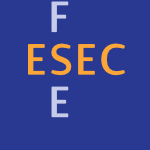 ESEC-FSE-1999-GyimothyBF #performance #slicing
ESEC-FSE-1999-GyimothyBF #performance #slicing- An Efficient Relevant Slicing Method for Debugging (TG, ÁB, IF), pp. 303–321.
 ESEC-FSE-1999-JaramilloGS #approach #comparison
ESEC-FSE-1999-JaramilloGS #approach #comparison- Comparison Checking: An Approach to Avoid Debugging of Optimized Code (CJ, RG, MLS), pp. 268–284.
 ICSE-1999-Ducasse #automation #c #named
ICSE-1999-Ducasse #automation #c #named- Coca: An automated Debugger for C (MD), pp. 504–513.
 CC-1999-Sloane #compilation
CC-1999-Sloane #compilation- Debugging Eli-Generated Compilers With Noosa (AMS), pp. 17–31.
 PDP-1999-BrezanyGSW
PDP-1999-BrezanyGSW - DeHiFo-an advanced HPF debugging system (PB, SG, KSP, RW), pp. 226–232.
 PDP-1999-TsiatsoulisCF #message passing #specification #testing
PDP-1999-TsiatsoulisCF #message passing #specification #testing- Testing and debugging message passing applications based on the synergy of program and specification executions (ZT, JYC, EF), pp. 196–203.
 ICLP-1999-HermenegildoBPL #optimisation #preprocessor #program analysis #using
ICLP-1999-HermenegildoBPL #optimisation #preprocessor #program analysis #using- Program Analysis, Debugging, and Optimization Using the Ciao System Preprocessor (MVH, FB, GP, PLG), pp. 52–66.
 SIGMOD-1998-KornackerSH #named
SIGMOD-1998-KornackerSH #named- amdb: An Access Method Debugging Tool (MK, MAS, JMH), pp. 570–571.
 LOPSTR-1998-MalletD #database #deduction #named #relational
LOPSTR-1998-MalletD #database #deduction #named #relational- Myrtle: A Set-Oriented Meta-Interpreter Driven by a “Relational” Trace for Deductive Databases Debugging (SM, MD), pp. 328–330.
 ASE-1998-McCluskeyW #automation #maintenance #modelling #requirements #towards
ASE-1998-McCluskeyW #automation #maintenance #modelling #requirements #towards- Towards the Automated Debugging and Maintenance of Logic-based Requirements Models (TLM, MMW), pp. 105–114.
 CC-1998-Pettersson #profiling
CC-1998-Pettersson #profiling- Portable Debugging and Profiling (MP), pp. 279–293.
 DAC-1998-MalkaZ #analysis #design #estimation #reliability #statistics
DAC-1998-MalkaZ #analysis #design #estimation #reliability #statistics- Design Reliability — Estimation through Statistical Analysis of Bug Discovery Data (YM, AZ), pp. 644–649.
 DATE-1998-DoorselaerNRM
DATE-1998-DoorselaerNRM - Silicon Debug of Systems-on-Chips (KvD, SN, GJvR, EJM), pp. 632–633.
 LCTES-1998-AroraS #embedded #realtime
LCTES-1998-AroraS #embedded #realtime- A Tool to Assist in Fine-Tuning and Debugging Embedded Real-Time Systems (GA, DBS), pp. 83–97.
 LCTES-1998-HinesB #distributed #implementation #process
LCTES-1998-HinesB #distributed #implementation #process- Debugging Distributed Implementations of Modal Process Systems (KH, GB), pp. 98–107.
 PDP-1998-ByunCL
PDP-1998-ByunCL - High-level CHILL debugging system in cross-development environments (YB, YSC, BSL), pp. 211–216.
 ESOP-1998-Ruggieri #declarative
ESOP-1998-Ruggieri #declarative- A Complete Declarative Debugger of Missing Answers (SR), pp. 236–251.
 CHI-1997-WilcoxABCC #feedback #programming #question #visual notation
CHI-1997-WilcoxABCC #feedback #programming #question #visual notation- Does Continuous Visual Feedback Aid Debugging in Direct-Manipulation Programming Systems? (EMW, JWA, MMB, JJC, CRC), pp. 258–265.
 OOPSLA-1997-LenceviciusHS #object-oriented #source code
OOPSLA-1997-LenceviciusHS #object-oriented #source code- Query-Based Debugging of Object-Oriented Programs (RL, UH, AKS), pp. 304–317.
 TOOLS-USA-1997-GilH #generative #source code #testing #using
TOOLS-USA-1997-GilH #generative #source code #testing #using- T++: A Test Case Generator Using a Debugging Information Based Technique for Source Code Manipulation (JYG, BH), pp. 272–281.
 TRI-Ada-1997-NeriPT #distributed
TRI-Ada-1997-NeriPT #distributed- Debugging Distributed Applications with Replay Capabilities (DN, LP, ST), pp. 189–195.
 TRI-Ada-1997-Tucker #ada
TRI-Ada-1997-Tucker #ada- Debugging Highly-Optimized Ada with Code Motion (DHACM) (KT), pp. 197–203.
 ASE-1997-Gaugne #comprehension #static analysis
ASE-1997-Gaugne #comprehension #static analysis- A Static Analysis for Program Understanding and Debugging (RG), pp. 297–298.
 SAC-1997-JoKIPL #design #object-oriented #prototype
SAC-1997-JoKIPL #design #object-oriented #prototype- A design and prototyping of an object-oriented program debugger (CHJ, PSK, HSI, EHP, BSL), pp. 45–51.
 DAC-1997-FangWY #online #realtime
DAC-1997-FangWY #online #realtime- A Real-Time RTL Engineering-Change Method Supporting On-Line Debugging for Logic-Emulation Applications (WJF, ACHW, TYY), pp. 101–106.
 EDTC-1997-DasdanMG #analysis #constraints #embedded #named
EDTC-1997-DasdanMG #analysis #constraints #embedded #named- RATAN: A tool for rate analysis and rate constraint debugging for embedded systems (AD, AM, RKG), pp. 2–6.
 FME-1996-ArnoldBR #embedded #formal method #using
FME-1996-ArnoldBR #embedded #formal method #using- An Example of Use of Formal Methods to Debug an Embedded Software (AA, DB, JPR), pp. 649–661.
 SEKE-1996-FoxBM #automation #fault #pascal #process #syntax
SEKE-1996-FoxBM #automation #fault #pascal #process #syntax- Automating the Debugging Process of Pascal Syntax Errors (RF, CB, JM), pp. 92–99.
 SEKE-1996-LawM #object-oriented
SEKE-1996-LawM #object-oriented- Debugging of Object-Oriented Software (RCHL, RBM), pp. 77–84.
 PLDI-1996-Adl-TabatabaiG
PLDI-1996-Adl-TabatabaiG - Source-Level Debugging of Scalar Optimized Code (ARAT, TRG), pp. 33–43.
 PLDI-1996-FlanaganFKWF #invariant #web
PLDI-1996-FlanaganFKWF #invariant #web- Static Debugging: Browsing the Web of Program Invariants (CF, MF, SK, SW, MF), pp. 23–32.
 CC-1996-FritzonWHSS #array #bytecode #distributed #parallel #process
CC-1996-FritzonWHSS #array #bytecode #distributed #parallel #process- A Parallel Debugger with Support for Distributed Arrays, Multiple Executables and Dynamic Processes (PF, RW, OH, JS, PS), pp. 341–355.
 SEKE-1995-YoonG #framework
SEKE-1995-YoonG #framework- A Cognitive Framework of Debugging (BdY, ONG), pp. 304–311.
 PLILP-1995-Arenas-SanchezG #lazy evaluation
PLILP-1995-Arenas-SanchezG #lazy evaluation- A Debugging Model for Lazy Narrowing (PAS, AGL), pp. 453–454.
 PDP-1995-GrabnerKV #concurrent #process
PDP-1995-GrabnerKV #concurrent #process- Debugging of concurrent processes (SG, DK, JV), pp. 547–554.
 TAPSOFT-1995-Pratt
TAPSOFT-1995-Pratt - Anatomy of the Pentium Bug (VRP), pp. 97–107.
 TAPSOFT-1995-Tip #slicing
TAPSOFT-1995-Tip #slicing- Generic Techniques for Source-Level Debugging and Dynamic Program Slicing (FT), pp. 516–530.
 ICSM-1994-RegelsonA #legacy
ICSM-1994-RegelsonA #legacy- Debugging Practices for Complex Legacy Software Systems (ER, AA), pp. 137–143.
 SEKE-1994-Auguston #automation
SEKE-1994-Auguston #automation- A language for debugging automation (MA), pp. 108–115.
 LOPSTR-1994-CominiLV #logic programming
LOPSTR-1994-CominiLV #logic programming- Abstract Debugging of Logic Program (MC, GL, GV), pp. 440–450.
 PLDI-1994-NetzerW #incremental #source code
PLDI-1994-NetzerW #incremental #source code- Optimal Tracing and Incremental Reexecution for Debugging Long-Running Programs (RHBN, MHW), pp. 313–325.
 PLDI-1994-Wismuller #analysis #data flow #source code #using
PLDI-1994-Wismuller #analysis #data flow #source code #using- Debugging of Globally Optimized Programs Using Data Flow Analysis (RW), pp. 278–289.
 TRI-Ada-1994-BarbaschE #ada
TRI-Ada-1994-BarbaschE #ada- Always One More Bug: Applying AdaWise to Improve Ada Code (CB, DE), pp. 228–235.
 ICSE-1994-TakadaMT #performance #process #testing
ICSE-1994-TakadaMT #performance #process #testing- A Programmer Performance Measure Based on Programmer State Transitions in Testing and Debugging Process (YT, KiM, KT), pp. 123–132.
 CC-1994-PineoS #approach
CC-1994-PineoS #approach- A Practical Approach to the Symbolic Debugging of Parallelized Code (PPP, MLS), pp. 339–356.
 EDAC-1994-ChenYF #design #identification #model checking
EDAC-1994-ChenYF #design #identification #model checking- Bug Identification of a Real Chip Design by Symbolic Model Checking (BC, MY, MF), pp. 132–136.
 EDAC-1994-NaganumaOH #algorithm #design #using #validation
EDAC-1994-NaganumaOH #algorithm #design #using #validation- High-Level Design Validation Using Algorithmic Debugging (JN, TO, TH), pp. 474–480.
 PDP-1994-Dauphin #distributed #functional #modelling #monitoring #parallel #performance
PDP-1994-Dauphin #distributed #functional #modelling #monitoring #parallel #performance- Combining Functional And Performance Debugging Of Parallel And Distributed Systems Based On Model-driven Monitoring (PD), pp. 463–470.
 ISSTA-1994-PollockBS
ISSTA-1994-PollockBS - Debugging Optimized Code Via Tailoring (LLP, MPB, MLS), p. 201.
 SEKE-1993-TsaiLN #approach #requirements #specification
SEKE-1993-TsaiLN #approach #requirements #specification- Debugging Logic-Based Requirements Specifications — a FRORL Approach (JJPT, AL, KRN), pp. 372–379.
 PLDI-1993-Bourdoncle #higher-order #imperative
PLDI-1993-Bourdoncle #higher-order #imperative- Abstract Debugging of Higher-Order Imperative Languages (FB), pp. 46–55.
 PLILP-1993-HanusJ #functional #logic programming #source code
PLILP-1993-HanusJ #functional #logic programming #source code- A Debugging Model for Functional Logic Programs (MH, BJ), pp. 28–43.
 POPL-1993-Adl-TabatabaiG #interactive
POPL-1993-Adl-TabatabaiG #interactive- Evicted Variables and the Interaction of Global Register Allocation and Symbolic Debugging (ARAT, TRG), pp. 371–383.
 TRI-Ada-1993-KoehnemannL #embedded #testing #tool support #towards
TRI-Ada-1993-KoehnemannL #embedded #testing #tool support #towards- Towards Target-Level Testing and Debugging Tools for Embedded Software (HK, TEL), pp. 288–298.
 ESEC-1993-Bourdoncle #abstract interpretation #imperative #source code
ESEC-1993-Bourdoncle #abstract interpretation #imperative #source code- Assertion-based Debugging of Imperative Programs by Abstract Interpretation (FB), pp. 501–516.
 ICSE-1993-MukherjeaS #algorithm #animation #comprehension
ICSE-1993-MukherjeaS #algorithm #animation #comprehension- Applying Algorithm Animation Techniques for Program Tracing, Debugging, and Understanding (SM, JTS), pp. 456–465.
 PDP-1993-AugustonF #behaviour #parallel #specification
PDP-1993-AugustonF #behaviour #parallel #specification- PARFORMAN-an assertion language for specifying behaviour when debugging parallel applications (MA, PF), pp. 150–157.
 CAV-1993-HojatiBK #design #using
CAV-1993-HojatiBK #design #using- BDD-Based Debugging Of Design Using Language Containment and Fair CTL (RH, RKB, RPK), pp. 41–58.
 PLDI-1992-BrooksHS #approach
PLDI-1992-BrooksHS #approach- A New Approach to Debugging Optimized Code (GB, GJH, SS), pp. 1–11.
 PLDI-1992-HolzleCU
PLDI-1992-HolzleCU - Debugging Optimized Code with Dynamic Deoptimization (UH, CC, DU), pp. 32–43.
 PLDI-1992-RamseyH
PLDI-1992-RamseyH - A Retargetable Debugger (NR, DRH), pp. 22–31.
 PLILP-1992-NilssonF #algorithm #functional #lazy evaluation
PLILP-1992-NilssonF #algorithm #functional #lazy evaluation- Algorithmic Debugging for Lazy Functional Languages (HN, PF), pp. 385–399.
 PLILP-1992-SaidiB #two-level grammar
PLILP-1992-SaidiB #two-level grammar- Checking and Debugging of Two-level Grammars (SS, JFB), pp. 158–171.
 VDME-1991-KinnaesV #metalanguage
VDME-1991-KinnaesV #metalanguage- A Debugger for a Meta-IV-like Meta-Language (DK, KDV), pp. 597–603.
 TOOLS-USA-1991-JamrozikRS #distributed #source code #visual notation
TOOLS-USA-1991-JamrozikRS #distributed #source code #visual notation- A Graphical Debugger for O-O Distributed Programs (HJ, CR, MS), pp. 117–128.
 PLDI-1991-Bertot #specification
PLDI-1991-Bertot #specification- Occurences in Debugger Specifications (YB), pp. 327–337.
 PLDI-1991-FritzsonGKS #algorithm #testing
PLDI-1991-FritzsonGKS #algorithm #testing- Generalized Algorithmic Debugging and Testing (PF, TG, MK, NS), pp. 317–326.
 PLILP-1991-Loyola #animation #execution #logic programming
PLILP-1991-Loyola #animation #execution #logic programming- Extending Execution Trees for Debugging and Animation in Logic Programming (DL), pp. 419–420.
 KBSE-1991-AllemangC #functional #representation
KBSE-1991-AllemangC #functional #representation- Functional Representation and Program Debugging (DA, BC), pp. 136–143.
 PPoPP-1991-ChoiM
PPoPP-1991-ChoiM - Race Frontier: Reproducing Data Races in Parallel-Program Debugging (JDC, SLM), pp. 145–154.
 ISLP-1991-FeldmanS #animation #visual notation
ISLP-1991-FeldmanS #animation #visual notation- Temporal Debugging and its Visual Animation (YF, EYS), pp. 3–17.
 LFP-1990-TolmachA #ml #reverse engineering #standard
LFP-1990-TolmachA #ml #reverse engineering #standard- Debugging Standard ML Without Reverse Engineering (APT, AWA), pp. 1–12.
 PLILP-1990-KamkarNF #algorithm #locality #slicing
PLILP-1990-KamkarNF #algorithm #locality #slicing- Bug Localization by Algorithmic Debugging and Program Slicing (MK, NS, PF), pp. 60–74.
 CC-1990-ShahmehriF #algorithm #imperative
CC-1990-ShahmehriF #algorithm #imperative- Algorithmic Debugging for Imperative Languages with Side-Effects (NS, PF), pp. 226–227.
 PPoPP-1990-HseushK #concurrent #modelling #parallel
PPoPP-1990-HseushK #concurrent #modelling #parallel- Modeling Concurrency in Parallel Debugging (WH, GEK), pp. 11–20.
 ICSE-1989-OhbaC #question #reliability
ICSE-1989-OhbaC #question #reliability- Does Imperfect Debugging Affect Software Reliability Growth? (MO, XMC), pp. 237–244.
 ASPLOS-1989-AralGS #multi #performance
ASPLOS-1989-AralGS #multi #performance- Efficient Debugging Primitives for Multiprocessors (ZA, IG, GS), pp. 87–95.
 DAC-1989-BolsensRCM #analysis #behaviour #logic
DAC-1989-BolsensRCM #analysis #behaviour #logic- Electrical Debugging of Synchronous MOS VLSI Circuits Exploiting Analysis of the Intended Logic Behaviour (IB, WDR, LJMC, HDM), pp. 513–518.
 DAC-1989-DervisogluK #named #state of the art #tool support
DAC-1989-DervisogluK #named #state of the art #tool support- ATLAS/ELA: Scan-based Software Tools for Reducing System Debug Time in a State-of-the-art Workstation (BID, MAK), pp. 718–721.
 TAV-1989-PodgurskiC #dependence #maintenance #testing
TAV-1989-PodgurskiC #dependence #maintenance #testing- The Implications of Program Dependencies for Software Testing, Debugging, and Maintenance (AP, LAC), pp. 168–178.
 ECOOP-1988-HondaY #concurrent
ECOOP-1988-HondaY #concurrent- Debugging Concurrent Systems Based on Object Groups (YH, AY), pp. 267–282.
 PLDI-1988-CoutantMR #approach #named
PLDI-1988-CoutantMR #approach #named- DOC: A Practical Approach to Source-Level Debugging of Globally Optimized Code (DSC, SM, MR), pp. 125–134.
 PLDI-1988-MillerC #parallel #performance #source code
PLDI-1988-MillerC #parallel #performance #source code- A Mechanism for Efficient Debugging of Parallel Programs (BPM, JDC), pp. 135–144.
 PLDI-1988-Stone #case study #concurrent #process
PLDI-1988-Stone #case study #concurrent #process- Debugging Concurrent Processes: A Case Study (JMS), pp. 145–153.
 ICSE-1988-DucasseE #automation #overview
ICSE-1988-DucasseE #automation #overview- A Review of Automated Debugging Systems: Knowledge, Strategies, and Techniques (MD, AME), pp. 162–173.
 JICSCP-1988-LichtensteinS88 #algorithm
JICSCP-1988-LichtensteinS88 #algorithm- Abstract Algorithmic Debugging (YL, EYS), pp. 512–531.
 JICSCP-1988-PereiraC88 #framework #prolog
JICSCP-1988-PereiraC88 #framework #prolog- A Framework for Prolog Debugging (LMP, MC), pp. 481–495.
 JICSCP-1988-Plummer88 #named #prolog
JICSCP-1988-Plummer88 #named #prolog- Coda: An Extended Debugger for PROLOG (DP), pp. 496–511.
 HCI-CE-1987-Moser #comprehension #design #using #visual notation
HCI-CE-1987-Moser #comprehension #design #using #visual notation- Understanding Complex Software Systems Using GADD: A Tool for Graphical Animated Design and Debugging (MCM), pp. 449–456.
 PLDI-1987-BahlkeMS #generative
PLDI-1987-BahlkeMS #generative- A generator for language-specific debugging systems (RB, BM, GS), pp. 92–101.
 PLDI-1987-ChaseH #source code
PLDI-1987-ChaseH #source code- Selective interpretation as a technique for debugging computationally intensive programs (BBC, RTH), pp. 113–124.
 PLDI-1987-SkedzielewskiYO #interactive #interpreter #named
PLDI-1987-SkedzielewskiYO #interactive #interpreter #named- DI: an interactive debugging interpreter for applicative languages (SKS, RKY, RRO), pp. 102–112.
 ASPLOS-1987-CargillL #hardware #profiling
ASPLOS-1987-CargillL #hardware #profiling- Cheap Hardware Support for Software Debugging and Profiling (TAC, BNL), pp. 82–83.
 SLP-1987-DershowitzL87 #deduction
SLP-1987-DershowitzL87 #deduction- Deductive Debugging (ND, YJL), pp. 298–306.
 SLP-1987-Huntbach87 #algorithm
SLP-1987-Huntbach87 #algorithm- Algorithmic PARLOG Debugging (MMH), pp. 288–297.
 ICLP-1986-Pereira86 #logic programming
ICLP-1986-Pereira86 #logic programming- Rational Debugging in Logic Programming (LMP), pp. 203–210.
 ICSE-1985-FrancescoLV #concurrent #interactive
ICSE-1985-FrancescoLV #concurrent #interactive- An Interactive Debugger for a Concurrent Language (NDF, DL, GV), pp. 320–329.
 LFP-1984-Lieberman #lisp #tool support #towards
LFP-1984-Lieberman #lisp #tool support #towards- Steps Toward Better Debugging Tools for Lisp (HL), pp. 247–255.
 ILPC-1984-Plaisted84 #algorithm #performance
ILPC-1984-Plaisted84 #algorithm #performance- An Efficient Bug Location Algorithm (DAP), pp. 151–157.
 ICSE-1982-TakahashiAK #fortran #visual notation
ICSE-1982-TakahashiAK #fortran #visual notation- Visual Aid for FORTRAN Program Debugging (KT, TA, MK), pp. 414–415.
 ASPLOS-1982-Johnson #architecture #requirements
ASPLOS-1982-Johnson #architecture #requirements- Some Requirements for Architectural Support of Software Debugging (MSJ), pp. 140–148.
 DAC-1970-French #interactive #visual notation
DAC-1970-French #interactive #visual notation- An interactive graphical debugging system (LJF), pp. 271–273.
 SOSP-1969-Kulsrud #interactive #named
SOSP-1969-Kulsrud #interactive #named- HELPER: an interactive extensible debugging system (HEK), pp. 105–111.
 SOSP-1967-Horn68 #design
SOSP-1967-Horn68 #design- Three criteria for designing computing systems to facilitate debugging (ECVH), pp. 360–365.
 LISP-1963-Russell
LISP-1963-Russell - Debugging aids (SR), p. 15.
 ASPLOS-2020-0001SWWKK #detection #memory management #persistent #source code
ASPLOS-2020-0001SWWKK #detection #memory management #persistent #source code CGO-2020-VermaKPR #concurrent #interactive #memory management #modelling #source code
CGO-2020-VermaKPR #concurrent #interactive #memory management #modelling #source code ICPC-2019-FontanaP #sequence #using #visualisation
ICPC-2019-FontanaP #sequence #using #visualisation ICPC-2019-IslamMRS #replication
ICPC-2019-IslamMRS #replication ICSME-2019-CokerWGBS #framework
ICSME-2019-CokerWGBS #framework ICSME-2019-GaoJJ00G #contract #detection #named
ICSME-2019-GaoJJ00G #contract #detection #named ICSME-2019-Khalil #performance #policy
ICSME-2019-Khalil #performance #policy ICSME-2019-KhalilCMDQ #analysis #eclipse
ICSME-2019-KhalilCMDQ #analysis #eclipse ICSME-2019-MondalRRS #adaptation
ICSME-2019-MondalRRS #adaptation ICSME-2019-RwemalikaKPTL #difference #industrial
ICSME-2019-RwemalikaKPTL #difference #industrial ICSME-2019-SarkarRB #predict
ICSME-2019-SarkarRB #predict ICSME-2019-ShimariI0I #execution #java #using
ICSME-2019-ShimariI0I #execution #java #using ICSME-2019-ZimmermannA #case study #open source
ICSME-2019-ZimmermannA #case study #open source MSR-2019-RaduN #dataset #non-functional
MSR-2019-RaduN #dataset #non-functional MSR-2019-RiganelliMMM #android #benchmark #metric
MSR-2019-RiganelliMMM #android #benchmark #metric SANER-2019-ChaparroFSM #detection #query
SANER-2019-ChaparroFSM #detection #query SANER-2019-DelfimUMM #automation #benchmark #java #metric #named #program repair
SANER-2019-DelfimUMM #automation #benchmark #java #metric #named #program repair SANER-2019-IslamMR #case study #comparative
SANER-2019-IslamMR #case study #comparative SANER-2019-LiuK0B #named #semantics #static analysis
SANER-2019-LiuK0B #named #semantics #static analysis SANER-2019-LuC00 #comprehension #distributed
SANER-2019-LuC00 #comprehension #distributed SANER-2019-ZeroualiMRG #on the
SANER-2019-ZeroualiMRG #on the ICML-2019-OdenaOAG #fuzzing #named #network
ICML-2019-OdenaOAG #fuzzing #named #network MoDELS-2019-PouraliA19a #approach #challenge #editing #modelling #uml
MoDELS-2019-PouraliA19a #approach #challenge #editing #modelling #uml ECOOP-2019-LopezSMBS #idea #multi #nondeterminism #source code
ECOOP-2019-LopezSMBS #idea #multi #nondeterminism #source code Onward-2019-AcharDL #distributed #interactive #named
Onward-2019-AcharDL #distributed #interactive #named OOPSLA-2019-BaderSP0 #automation #learning #named
OOPSLA-2019-BaderSP0 #automation #learning #named OOPSLA-2019-LiWNN #detection #learning #network #representation
OOPSLA-2019-LiWNN #detection #learning #network #representation OOPSLA-2019-SurbatovichJL
OOPSLA-2019-SurbatovichJL  OOPSLA-2019-WangZS #contract #detection #nondeterminism
OOPSLA-2019-WangZS #contract #detection #nondeterminism PLDI-2019-LiLCGL #automation #distributed #named
PLDI-2019-LiLCGL #automation #distributed #named ASE-2019-ChenD0Q #comprehension #scalability
ASE-2019-ChenD0Q #comprehension #scalability ASE-2019-JiaLYLWLL #detection #fault #specification
ASE-2019-JiaLYLWLL #detection #fault #specification ASE-2019-JiangWXCZ #empirical #fault #locality #statistics
ASE-2019-JiangWXCZ #empirical #fault #locality #statistics ASE-2019-RahatFT #android #empirical #named
ASE-2019-RahatFT #android #empirical #named ASE-2019-StepanovAB #compilation #how #named
ASE-2019-StepanovAB #compilation #how #named ASE-2019-Yu19a #comprehension #crowdsourcing #generative
ASE-2019-Yu19a #comprehension #crowdsourcing #generative ESEC-FSE-2019-ChaparroBLMMPPN #quality
ESEC-FSE-2019-ChaparroBLMMPPN #quality ESEC-FSE-2019-ChenHSZHZ #compilation #effectiveness #generative
ESEC-FSE-2019-ChenHSZHZ #compilation #effectiveness #generative ESEC-FSE-2019-CotroneoSLNB #analysis #empirical #framework #how #in the cloud #platform
ESEC-FSE-2019-CotroneoSLNB #analysis #empirical #framework #how #in the cloud #platform ESEC-FSE-2019-DurieuxDMA #empirical #java #overview #program repair #scalability #tool support
ESEC-FSE-2019-DurieuxDMA #empirical #java #overview #program repair #scalability #tool support ESEC-FSE-2019-DuttaZHM #named #probability #programming #reduction #testing
ESEC-FSE-2019-DuttaZHM #named #probability #programming #reduction #testing ESEC-FSE-2019-He19a #comprehension #detection #fault #performance
ESEC-FSE-2019-He19a #comprehension #detection #fault #performance ESEC-FSE-2019-IslamNPR #learning
ESEC-FSE-2019-IslamNPR #learning ESEC-FSE-2019-KimHK #composition #detection #effectiveness #refinement #summary #testing
ESEC-FSE-2019-KimHK #composition #detection #effectiveness #refinement #summary #testing ESEC-FSE-2019-KoyuncuLB0MKT #named #program repair
ESEC-FSE-2019-KoyuncuLB0MKT #named #program repair ESEC-FSE-2019-Mitropoulos #evolution #program analysis
ESEC-FSE-2019-Mitropoulos #evolution #program analysis ESEC-FSE-2019-MordahlOKWG #detection #empirical #tool support #variability
ESEC-FSE-2019-MordahlOKWG #detection #empirical #tool support #variability ESEC-FSE-2019-SuiZZZX #analysis #android #difference #effectiveness #reduction #user interface
ESEC-FSE-2019-SuiZZZX #analysis #android #difference #effectiveness #reduction #user interface ESEC-FSE-2019-WenWLTXCS #commit #correlation
ESEC-FSE-2019-WenWLTXCS #commit #correlation ESEC-FSE-2019-ZhangSYZPS #comprehension #model checking
ESEC-FSE-2019-ZhangSYZPS #comprehension #model checking ASPLOS-2019-CasiasATSW #pattern matching
ASPLOS-2019-CasiasATSW #pattern matching ASPLOS-2019-GanZHCHPD #big data #complexity #named #performance
ASPLOS-2019-GanZHCHPD #big data #complexity #named #performance ASPLOS-2019-TuLSZ #comprehension #concurrent
ASPLOS-2019-TuLSZ #comprehension #concurrent ICST-2019-GyimesiVSMBF0 #benchmark #javascript #metric #named
ICST-2019-GyimesiVSMBF0 #benchmark #javascript #metric #named ICST-2019-TannoI #interactive #realtime #source code
ICST-2019-TannoI #interactive #realtime #source code ICPC-2018-GaoMSSZMMDDZC #c #c++ #detection #named
ICPC-2018-GaoMSSZMMDDZC #c #c++ #detection #named ICPC-2018-LiJLRL #summary
ICPC-2018-LiJLRL #summary ICPC-2018-ScarsbrookKR0 #javascript #named #scalability #visualisation
ICPC-2018-ScarsbrookKR0 #javascript #named #scalability #visualisation ICPC-2018-TakahashiSHS #case study #locality #smell #using
ICPC-2018-TakahashiSHS #case study #locality #smell #using ICPC-2018-ZhangLXJS #recommendation
ICPC-2018-ZhangLXJS #recommendation ICPC-2018-ZhouLSG #repository
ICPC-2018-ZhouLSG #repository ICSME-2018-LawrieB #locality #on the
ICSME-2018-LawrieB #locality #on the ICSME-2018-LebeufVHS #comprehension #design #distributed #optimisation
ICSME-2018-LebeufVHS #comprehension #design #distributed #optimisation ICSME-2018-MillsPPBH #locality #question
ICSME-2018-MillsPPBH #locality #question ICSME-2018-WangK #concept #open source #replication
ICSME-2018-WangK #concept #open source #replication ICSME-2018-WangMZ #empirical #multi
ICSME-2018-WangMZ #empirical #multi MSR-2018-0002LM08 #information management #locality #requirements #traceability
MSR-2018-0002LM08 #information management #locality #requirements #traceability MSR-2018-AfzalG #case study #ide #using
MSR-2018-AfzalG #case study #ide #using MSR-2018-BellmanSB #analysis #developer #ide #timeline #visual notation
MSR-2018-BellmanSB #analysis #developer #ide #timeline #visual notation MSR-2018-SahaLLYP #dataset #java #scalability
MSR-2018-SahaLLYP #dataset #java #scalability MSR-2018-Soto-ValeroBB #analysis #behaviour #detection #process
MSR-2018-Soto-ValeroBB #analysis #behaviour #detection #process SANER-2018-PascarellaPB #predict
SANER-2018-PascarellaPB #predict SANER-2018-SobreiraDDMM #dataset #fault
SANER-2018-SobreiraDDMM #dataset #fault SANER-2018-SotoG #predict #probability #using
SANER-2018-SotoG #predict #probability #using CIKM-2018-LoyolaGS #learning #locality #rank
CIKM-2018-LoyolaGS #learning #locality #rank MoDELS-2018-ArcegaFC #algorithm #configuration management #locality #modelling #runtime
MoDELS-2018-ArcegaFC #algorithm #configuration management #locality #modelling #runtime OOPSLA-2018-PradelS #approach #detection #learning #named
OOPSLA-2018-PradelS #approach #detection #learning #named PLDI-2018-LiuH #analysis #concurrent #difference #named #parallel #performance
PLDI-2018-LiuH #analysis #concurrent #difference #named #parallel #performance PLDI-2018-VilkB #automation #memory management #named #web
PLDI-2018-VilkB #automation #memory management #named #web POPL-2018-MajumdarN #effectiveness #question #random testing #testing #why
POPL-2018-MajumdarN #effectiveness #question #random testing #testing #why ASE-2018-Arora0IKR
ASE-2018-Arora0IKR  ASE-2018-HabibP18a #case study #detection #how
ASE-2018-HabibP18a #case study #detection #how ASE-2018-HanYL #learning #named #performance
ASE-2018-HanYL #learning #named #performance ASE-2018-HuWLCH #android #how
ASE-2018-HuWLCH #android #how ASE-2018-Lin0TBWD #slicing
ASE-2018-Lin0TBWD #slicing ASE-2018-LinWLSZW #concurrent #data access #memory management #named
ASE-2018-LinWLSZW #concurrent #data access #memory management #named ASE-2018-ZhouPX0LJD
ASE-2018-ZhouPX0LJD  ESEC-FSE-2018-0001R #locality #query
ESEC-FSE-2018-0001R #locality #query ESEC-FSE-2018-BianLSH0 #detection #named
ESEC-FSE-2018-BianLSH0 #detection #named ESEC-FSE-2018-GadelhaMCN #detection #performance #towards
ESEC-FSE-2018-GadelhaMCN #detection #performance #towards ESEC-FSE-2018-GaoDQGW0HZW #distributed #empirical #scalability
ESEC-FSE-2018-GaoDQGW0HZW #distributed #empirical #scalability ESEC-FSE-2018-GulzarWK #automation #big data #data analysis #data-driven #named #scalability
ESEC-FSE-2018-GulzarWK #automation #big data #data analysis #data-driven #named #scalability ESEC-FSE-2018-HashimotoMI #automation #semantics #source code
ESEC-FSE-2018-HashimotoMI #automation #semantics #source code ESEC-FSE-2018-LuLL0 #concurrent #in the cloud #named
ESEC-FSE-2018-LuLL0 #concurrent #in the cloud #named ESEC-FSE-2018-MaLLZG #analysis #automation #difference #named #network
ESEC-FSE-2018-MaLLZG #analysis #automation #difference #named #network ESEC-FSE-2018-QuerelR #modelling #named #static analysis #statistics
ESEC-FSE-2018-QuerelR #modelling #named #static analysis #statistics ESEC-FSE-2018-RoyPDH #fault #synthesis #tool support
ESEC-FSE-2018-RoyPDH #fault #synthesis #tool support ESEC-FSE-2018-Tomassi #effectiveness
ESEC-FSE-2018-Tomassi #effectiveness ESEC-FSE-2018-WoodRAM #detection #developer #speech
ESEC-FSE-2018-WoodRAM #detection #developer #speech ESEC-FSE-2018-Zhou #graph
ESEC-FSE-2018-Zhou #graph ASPLOS-2018-LiuWLLYT #automation #detection #named
ASPLOS-2018-LiuWLLYT #automation #detection #named ASPLOS-2018-RiggerSMGM #c #execution #fault #source code
ASPLOS-2018-RiggerSMGM #c #execution #fault #source code CGO-2018-0003LJZW #concurrent #distributed #graph #scalability
CGO-2018-0003LJZW #concurrent #distributed #graph #scalability ICST-2018-TimperleyAKHG #detection #question #simulation
ICST-2018-TimperleyAKHG #detection #question #simulation EDM-2017-VillamorR #analysis #collaboration #empirical
EDM-2017-VillamorR #analysis #collaboration #empirical ICPC-2017-DaoZM #execution #how #locality #question
ICPC-2017-DaoZM #execution #how #locality #question ICPC-2017-LamNNN #information retrieval #learning #locality
ICPC-2017-LamNNN #information retrieval #learning #locality ICPC-2017-MondalRS #identification
ICPC-2017-MondalRS #identification ICPC-2017-ZhangCJLX #automation #recommendation
ICPC-2017-ZhangCJLX #automation #recommendation ICSME-2017-ChaparroFM #behaviour #locality #query #using
ICSME-2017-ChaparroFM #behaviour #locality #query #using ICSME-2017-DeshmukhMPSD #learning #retrieval #towards #using
ICSME-2017-DeshmukhMPSD #learning #retrieval #towards #using ICSME-2017-HodovanKG
ICSME-2017-HodovanKG  ICSME-2017-MondalRS #empirical
ICSME-2017-MondalRS #empirical ICSME-2017-TerdchanakulHPM #classification #n-gram #using
ICSME-2017-TerdchanakulHPM #classification #n-gram #using ICSME-2017-YueMW
ICSME-2017-YueMW  MSR-2017-WanLXC #empirical #scalability
MSR-2017-WanLXC #empirical #scalability SANER-2017-TrefferPU #database
SANER-2017-TrefferPU #database ASE-2017-FrancoGR
ASE-2017-FrancoGR  ASE-2017-Wang #javascript #nondeterminism
ASE-2017-Wang #javascript #nondeterminism ASE-2017-WangDGGQYW #concurrent
ASE-2017-WangDGGQYW #concurrent ESEC-FSE-2017-BagherzadehHD #development #independence #modelling #platform #realtime
ESEC-FSE-2017-BagherzadehHD #development #independence #modelling #platform #realtime ESEC-FSE-2017-BohmeS0UZ #empirical #how
ESEC-FSE-2017-BohmeS0UZ #empirical #how ESEC-FSE-2017-ChaparroLZMPMBN #detection
ESEC-FSE-2017-ChaparroLZMPMBN #detection ESEC-FSE-2017-LeeHLKJ #automation #industrial #learning
ESEC-FSE-2017-LeeHLKJ #automation #industrial #learning ESEC-FSE-2017-TianR #automation #c #fault
ESEC-FSE-2017-TianR #automation #c #fault ESEC-FSE-2017-ZhouS #automation #commit #identification #security
ESEC-FSE-2017-ZhouS #automation #commit #identification #security SLE-2017-LiF #metaprogramming
SLE-2017-LiF #metaprogramming ASPLOS-2017-HuangAZ #named #performance #semantics
ASPLOS-2017-HuangAZ #named #performance #semantics ASPLOS-2017-LiuLLLLGT #automation #concurrent #detection #distributed #named
ASPLOS-2017-LiuLLLLGT #automation #concurrent #detection #distributed #named FASE-2017-AraujoNN #effectiveness #on the #predict
FASE-2017-AraujoNN #effectiveness #on the #predict FASE-2017-SahaG
FASE-2017-SahaG  CAV-2017-SinghBM #detection #fault #formal method #locality #named #validation
CAV-2017-SinghBM #detection #fault #formal method #locality #named #validation ICST-2017-XuLC #concurrent #data type #testing #using
ICST-2017-XuLC #concurrent #data type #testing #using VMCAI-2017-AbalBW #abstraction #c #effectiveness #source code
VMCAI-2017-AbalBW #abstraction #c #effectiveness #source code ICPC-2016-AzadmaneshH #named
ICPC-2016-AzadmaneshH #named ICPC-2016-PetrilloSKPFG #comprehension #framework #interactive
ICPC-2016-PetrilloSKPFG #comprehension #framework #interactive ICPC-2016-TianWLG #learning #rank #recommendation
ICPC-2016-TianWLG #learning #rank #recommendation ICSME-2016-Moran #mobile #testing
ICSME-2016-Moran #mobile #testing ICSME-2016-PalombaZFLO #performance #predict #smell #using
ICSME-2016-PalombaZFLO #performance #predict #smell #using ICSME-2016-XiaBLL #automation #case study #fault #harmful #locality #scalability #user study #using
ICSME-2016-XiaBLL #automation #case study #fault #harmful #locality #scalability #user study #using MSR-2016-DilshenerWY #roadmap
MSR-2016-DilshenerWY #roadmap MSR-2016-SotoTWGL
MSR-2016-SotoTWGL  SANER-2016-IslamMR #empirical #replication
SANER-2016-IslamMR #empirical #replication SANER-2016-NayrollesH #named #natural language
SANER-2016-NayrollesH #named #natural language SANER-2016-RochaVMM #empirical #recommendation
SANER-2016-RochaVMM #empirical #recommendation ECOOP-2016-TomanG #named
ECOOP-2016-TomanG #named OOPSLA-2016-BavishiPR #precise
OOPSLA-2016-BavishiPR #precise OOPSLA-2016-SunLS #compilation
OOPSLA-2016-SunLS #compilation OOPSLA-2016-ZuoFKXL #abstraction #automation #refinement #statistics
OOPSLA-2016-ZuoFKXL #abstraction #automation #refinement #statistics ASE-2016-AlmhanaMK0 #multi #recommendation #using
ASE-2016-AlmhanaMK0 #multi #recommendation #using ASE-2016-BocicB #data access #web
ASE-2016-BocicB #data access #web ASE-2016-HentschelHB16a #comprehension #effectiveness #interactive #proving #verification
ASE-2016-HentschelHB16a #comprehension #effectiveness #interactive #proving #verification ASE-2016-TangWWZ #android #concurrent #generative #testing
ASE-2016-TangWWZ #android #concurrent #generative #testing ASE-2016-WangCMT #detection #modelling #n-gram #named
ASE-2016-WangCMT #detection #modelling #n-gram #named ASE-2016-WenWC #named
ASE-2016-WenWC #named FSE-2016-BarrMMMS #javascript
FSE-2016-BarrMMMS #javascript FSE-2016-GulzarICK #big data #data analysis #interactive #named
FSE-2016-GulzarICK #big data #data analysis #interactive #named FSE-2016-Guo #interactive #java #named
FSE-2016-Guo #interactive #java #named FSE-2016-GyoriLSLM #api #detection #java #named #specification
FSE-2016-GyoriLSLM #api #detection #java #named #specification FSE-2016-HanamBM #javascript
FSE-2016-HanamBM #javascript FSE-2016-Kellogg #detection #generative #testing
FSE-2016-Kellogg #detection #generative #testing FSE-2016-LiuCL #comprehension #concurrent #generative #quality
FSE-2016-LiuCL #comprehension #concurrent #generative #quality FSE-2016-Xu0ZX #analysis #detection #predict #python
FSE-2016-Xu0ZX #analysis #detection #predict #python ASPLOS-2016-ColinHLS #energy
ASPLOS-2016-ColinHLS #energy ASPLOS-2016-Leesatapornwongsa #concurrent #distributed #named #nondeterminism #taxonomy
ASPLOS-2016-Leesatapornwongsa #concurrent #distributed #named #nondeterminism #taxonomy ASPLOS-2016-MaoCXS #consistency #named
ASPLOS-2016-MaoCXS #consistency #named FASE-2016-BadashianHS #crowdsourcing #platform
FASE-2016-BadashianHS #crowdsourcing #platform FASE-2016-LechenetKG #branch #slicing #verification
FASE-2016-LechenetKG #branch #slicing #verification CAV-2016-BeyerD #fault #interactive
CAV-2016-BeyerD #fault #interactive ICST-2016-GhardallouDMF #testing
ICST-2016-GhardallouDMF #testing ICST-2016-MahajanLBH #using #visual notation #web
ICST-2016-MahajanLBH #using #visual notation #web ICST-2016-YeZWL #detection #empirical
ICST-2016-YeZWL #detection #empirical TAP-2016-PodelskiSW
TAP-2016-PodelskiSW  TAP-2016-TamaritRMC #erlang #testing
TAP-2016-TamaritRMC #erlang #testing JCDL-2015-AlonsoMN #crowdsourcing
JCDL-2015-AlonsoMN #crowdsourcing SIGMOD-2015-DietrichG #database #sql
SIGMOD-2015-DietrichG #database #sql SIGMOD-2015-SalihogluSKTW #named
SIGMOD-2015-SalihogluSKTW #named EDM-2015-Liu #data-driven #generative
EDM-2015-Liu #data-driven #generative ITiCSE-2015-BrianTHF #student #testing
ITiCSE-2015-BrianTHF #student #testing ICPC-2015-WhiteVJBP #android #generative
ICPC-2015-WhiteVJBP #android #generative ICSME-2015-BadashianHS #crowdsourcing
ICSME-2015-BadashianHS #crowdsourcing ICSME-2015-NucciPSBOL #developer #on the #predict
ICSME-2015-NucciPSBOL #developer #on the #predict ICSME-2015-PiorkowskiFSBKH #bias #developer #how #information management
ICSME-2015-PiorkowskiFSBKH #bias #developer #how #information management ICSME-2015-VahabzadehF0 #empirical
ICSME-2015-VahabzadehF0 #empirical MSR-2015-CamiloMN #case study
MSR-2015-CamiloMN #case study MSR-2015-CoelhoAGD #android #exception #git
MSR-2015-CoelhoAGD #android #exception #git MSR-2015-MirakhorliC #architecture
MSR-2015-MirakhorliC #architecture MSR-2015-OhiraKYYMLFHIM #classification #dataset
MSR-2015-OhiraKYYMLFHIM #classification #dataset MSR-2015-SahaLKP #question
MSR-2015-SahaLKP #question SANER-2015-AggarwalRTHGS #detection #re-engineering
SANER-2015-AggarwalRTHGS #detection #re-engineering SANER-2015-KochharTL #effectiveness #empirical #scalability #test coverage #testing
SANER-2015-KochharTL #effectiveness #empirical #scalability #test coverage #testing SANER-2015-NayrollesHTL #approach #model checking #named #using
SANER-2015-NayrollesHTL #approach #model checking #named #using SANER-2015-TianL #case study #comparative #effectiveness
SANER-2015-TianL #case study #comparative #effectiveness SCAM-2015-BoisselleA #empirical
SCAM-2015-BoisselleA #empirical ICEIS-v2-2015-SariK #analysis #monitoring #predict #using
ICEIS-v2-2015-SariK #analysis #monitoring #predict #using AMT-2015-SelimCDLO #case study #experience #model transformation #verification
AMT-2015-SelimCDLO #case study #experience #model transformation #verification MoDELS-2015-MontaghamiR #declarative #modelling
MoDELS-2015-MontaghamiR #declarative #modelling SPLC-2015-SoutoGdMKB #detection #feature model #modelling #performance #product line
SPLC-2015-SoutoGdMKB #detection #feature model #modelling #performance #product line OOPSLA-2015-LeSS #compilation #probability
OOPSLA-2015-LeSS #compilation #probability AdaEurope-2015-PavleticVRKK #framework
AdaEurope-2015-PavleticVRKK #framework LOPSTR-2015-InsaS #algorithm
LOPSTR-2015-InsaS #algorithm PLDI-2015-FaddegonC #algorithm #dependence #haskell #source code #stack
PLDI-2015-FaddegonC #algorithm #dependence #haskell #source code #stack PLDI-2015-MachadoLR #concurrent #difference
PLDI-2015-MachadoLR #concurrent #difference PLDI-2015-OlivoDL #detection #performance #static analysis #traversal
PLDI-2015-OlivoDL #detection #performance #static analysis #traversal PPDP-2015-CaballeroGS #constraints #datalog #source code
PPDP-2015-CaballeroGS #constraints #datalog #source code PPDP-2015-StievenartNMR #abstract interpretation #concurrent #detection #higher-order #source code
PPDP-2015-StievenartNMR #abstract interpretation #concurrent #detection #higher-order #source code ASE-2015-DeligiannisDR #analysis #concurrent #performance #precise
ASE-2015-DeligiannisDR #analysis #concurrent #performance #precise ASE-2015-GaoZWXZM
ASE-2015-GaoZWXZM  ASE-2015-LamNNN #information retrieval #learning #locality
ASE-2015-LamNNN #information retrieval #learning #locality ASE-2015-LinMZCZ #benchmark #concurrent #java #metric #named
ASE-2015-LinMZCZ #benchmark #concurrent #java #metric #named ESEC-FSE-2015-ChenK
ESEC-FSE-2015-ChenK  ESEC-FSE-2015-DovgalyukDM #kernel
ESEC-FSE-2015-DovgalyukDM #kernel ESEC-FSE-2015-HammoudiBBR #on the #using #web
ESEC-FSE-2015-HammoudiBBR #on the #using #web ESEC-FSE-2015-JensenSSC #independence #javascript #memory management #named #platform
ESEC-FSE-2015-JensenSSC #independence #javascript #memory management #named #platform ESEC-FSE-2015-LeOL #information retrieval #locality
ESEC-FSE-2015-LeOL #information retrieval #locality ESEC-FSE-2015-Moran #android
ESEC-FSE-2015-Moran #android ESEC-FSE-2015-MoranVBP #android
ESEC-FSE-2015-MoranVBP #android ICSE-v1-2015-YuanWWLYHFLCG #concurrent #named #using
ICSE-v1-2015-YuanWWLYHFLCG #concurrent #named #using ICSE-v1-2015-ZhongS #empirical
ICSE-v1-2015-ZhongS #empirical ICSE-v2-2015-Cornu #named #null #using
ICSE-v2-2015-Cornu #named #null #using ICSE-v2-2015-CzerwonkaGT #code review #how #overview
ICSE-v2-2015-CzerwonkaGT #code review #how #overview ICSE-v2-2015-GomezMMR
ICSE-v2-2015-GomezMMR  SAC-2015-SakuraiM #object-oriented #source code
SAC-2015-SakuraiM #object-oriented #source code SAC-2015-ZhangYLC #concept #mining #predict #repository
SAC-2015-ZhangYLC #concept #mining #predict #repository SLE-2015-BousseCCGB #performance
SLE-2015-BousseCCGB #performance ASPLOS-2015-HicksSKS #lightweight #named #runtime #specification
ASPLOS-2015-HicksSKS #lightweight #named #runtime #specification ASPLOS-2015-RingenburgSACG #approximate #monitoring #quality #source code
ASPLOS-2015-RingenburgSACG #approximate #monitoring #quality #source code CGO-2015-ZhengLHWJ #approach #manycore #on the #performance
CGO-2015-ZhengLHWJ #approach #manycore #on the #performance DAC-2015-CampbellLMC #detection #fault #hybrid #synthesis #using #validation
DAC-2015-CampbellLMC #detection #fault #hybrid #synthesis #using #validation DAC-2015-LeeHLP #data flow #information management #interface #performance
DAC-2015-LeeHLP #data flow #information management #interface #performance DATE-2015-ChenWLL
DATE-2015-ChenWLL  DATE-2015-FarkashHS #data mining #locality #mining
DATE-2015-FarkashHS #data mining #locality #mining DATE-2015-LinSKRM #detection #effectiveness #fault #performance #testing #validation
DATE-2015-LinSKRM #detection #effectiveness #fault #performance #testing #validation SOSP-2015-MinKLSK #correctness #file system #semantics
SOSP-2015-MinKLSK #correctness #file system #semantics CAV-2015-OzkanET #android
CAV-2015-OzkanET #android ICLP-2015-DamasioMA #source code
ICLP-2015-DamasioMA #source code ICLP-2015-LiVPSB #using
ICLP-2015-LiVPSB #using ICST-2015-MahajanH15a #html #named
ICST-2015-MahajanH15a #html #named ISSTA-2015-KhoshnoodKW #concurrent #constraints #named #theorem proving
ISSTA-2015-KhoshnoodKW #concurrent #constraints #named #theorem proving VMCAI-2015-SalaunY #algebra #process #specification
VMCAI-2015-SalaunY #algebra #process #specification TFPIE-2014-IshiiA
TFPIE-2014-IshiiA  CSMR-WCRE-2014-OsmanLN #mining
CSMR-WCRE-2014-OsmanLN #mining CSMR-WCRE-2014-PerscheidFH #execution
CSMR-WCRE-2014-PerscheidFH #execution CSMR-WCRE-2014-PerscheidH #fault #navigation #testing #tool support
CSMR-WCRE-2014-PerscheidH #fault #navigation #testing #tool support CSMR-WCRE-2014-SahaKP #empirical
CSMR-WCRE-2014-SahaKP #empirical CSMR-WCRE-2014-SassoL #repository #visual notation
CSMR-WCRE-2014-SassoL #repository #visual notation CSMR-WCRE-2014-XiaLWSZ #empirical
CSMR-WCRE-2014-XiaLWSZ #empirical ICPC-2014-WangL #locality #version control
ICPC-2014-WangL #locality #version control ICPC-2014-XiaLWZW #locality
ICPC-2014-XiaLWZW #locality ICSME-2014-HuoDMG #empirical
ICSME-2014-HuoDMG #empirical ICSME-2014-KashiwaYKO #case study
ICSME-2014-KashiwaYKO #case study ICSME-2014-LiuQWM #concurrent #named #precise
ICSME-2014-LiuQWM #concurrent #named #precise ICSME-2014-MorenoTMS #locality #on the #stack #using
ICSME-2014-MorenoTMS #locality #on the #stack #using ICSME-2014-SahaLKP #c #effectiveness #information retrieval #locality #on the #source code
ICSME-2014-SahaLKP #c #effectiveness #information retrieval #locality #on the #source code ICSME-2014-WangLL #composition #locality #modelling
ICSME-2014-WangLL #composition #locality #modelling ICSME-2014-YeasminRS #evolution #interactive #summary #topic #using #visualisation
ICSME-2014-YeasminRS #evolution #interactive #summary #topic #using #visualisation ICSME-2014-ZhouTGG #classification #data mining #mining
ICSME-2014-ZhouTGG #classification #data mining #mining MSR-2014-ChenNSH #empirical
MSR-2014-ChenNSH #empirical MSR-2014-GarciaS #open source #predict
MSR-2014-GarciaS #open source #predict MSR-2014-JoorabchiMM #exclamation
MSR-2014-JoorabchiMM #exclamation MSR-2014-KleinCK #detection
MSR-2014-KleinCK #detection MSR-2014-KochharLL #classification #locality #question
MSR-2014-KochharLL #classification #locality #question MSR-2014-LazarRS #detection #metric #similarity #using
MSR-2014-LazarRS #detection #metric #similarity #using MSR-2014-LazarRS14a #dataset #generative
MSR-2014-LazarRS14a #dataset #generative MSR-2014-MitropoulosKLGS #ecosystem
MSR-2014-MitropoulosKLGS #ecosystem MSR-2014-SainiSOL #dataset
MSR-2014-SainiSOL #dataset SCAM-2014-AnKA
SCAM-2014-AnKA  SCAM-2014-BazrafshanK #developer #performance
SCAM-2014-BazrafshanK #developer #performance SCAM-2014-SajnaniSL #case study #comparative #java
SCAM-2014-SajnaniSL #case study #comparative #java FLOPS-2014-ChenE
FLOPS-2014-ChenE  FLOPS-2014-Riesco #declarative #maude #semantics #using
FLOPS-2014-Riesco #declarative #maude #semantics #using VISSOFT-2014-Reiss #challenge
VISSOFT-2014-Reiss #challenge SEKE-2014-YangWSFC #analysis #fault
SEKE-2014-YangWSFC #analysis #fault OOPSLA-2014-BarowyGB #named #spreadsheet
OOPSLA-2014-BarowyGB #named #spreadsheet OOPSLA-2014-BarrM #named
OOPSLA-2014-BarrM #named OOPSLA-2014-SongL #performance #problem #statistics
OOPSLA-2014-SongL #performance #problem #statistics OOPSLA-2014-ToschB #automation #named #programming
OOPSLA-2014-ToschB #automation #named #programming PLDI-2014-MitraLABSG #analysis #parallel #scalability
PLDI-2014-MitraLABSG #analysis #parallel #scalability POPL-2014-ChenE #fault #type system
POPL-2014-ChenE #fault #type system PPDP-2014-StulovaMH #higher-order #source code
PPDP-2014-StulovaMH #higher-order #source code ASE-2014-AbalBW #analysis #kernel #linux #variability
ASE-2014-AbalBW #analysis #kernel #linux #variability ASE-2014-Borg #re-engineering #using
ASE-2014-Borg #re-engineering #using ASE-2014-KochharTL #bias #locality #matter #question
ASE-2014-KochharTL #bias #locality #matter #question ASE-2014-ThungKL #detection #named #tool support
ASE-2014-ThungKL #detection #named #tool support ASE-2014-WangWWYSYLFG #concurrent #locality #memory management #using
ASE-2014-WangWWYSYLFG #concurrent #locality #memory management #using ASE-2014-ZuddasJPMO #comprehension #named
ASE-2014-ZuddasJPMO #comprehension #named FSE-2014-0010TZ #concurrent #named
FSE-2014-0010TZ #concurrent #named FSE-2014-BanerjeeC0R #detection #energy #mobile
FSE-2014-BanerjeeC0R #detection #energy #mobile FSE-2014-TaoKKX #automation
FSE-2014-TaoKKX #automation FSE-2014-ThungLKL #locality #named #tool support
FSE-2014-ThungLKL #locality #named #tool support FSE-2014-Xiao #architecture #detection
FSE-2014-Xiao #architecture #detection FSE-2014-YeBL #learning #rank #using
FSE-2014-YeBL #learning #rank #using FSE-2014-ZhangWLQRZ #concurrent #lightweight #named
FSE-2014-ZhangWLQRZ #concurrent #lightweight #named ICSE-2014-LiuXC #detection #performance #smarttech
ICSE-2014-LiuXC #detection #performance #smarttech ICSE-2014-RahmanKBD #predict #statistics
ICSE-2014-RahmanKBD #predict #statistics SAC-2014-PotocnikCS #named #problem #scala
SAC-2014-PotocnikCS #named #problem #scala SAC-2014-YangZL #algorithm #developer #effectiveness #multi #recommendation
SAC-2014-YangZL #algorithm #developer #effectiveness #multi #recommendation SAC-2014-ZhaoXKLL #empirical #process
SAC-2014-ZhaoXKLL #empirical #process SLE-2014-ChisGN #framework
SLE-2014-ChisGN #framework SLE-2014-KaufmannKPSW #diagrams #satisfiability #sequence chart #state machine
SLE-2014-KaufmannKPSW #diagrams #satisfiability #sequence chart #state machine CGO-2014-WangPPLGN #named #slicing
CGO-2014-WangPPLGN #named #slicing DAC-2014-YounGK #locality #probability #statistics
DAC-2014-YounGK #locality #probability #statistics DATE-2014-AdlerAABG #logic
DATE-2014-AdlerAABG #logic DATE-2014-MurilloWCLA #automation #concurrent #constraints #detection
DATE-2014-MurilloWCLA #automation #concurrent #constraints #detection OSDI-2014-0001RB #concurrent #kernel #named
OSDI-2014-0001RB #concurrent #kernel #named OSDI-2014-LeesatapornwongsaHJLG #model checking #named #performance #semantics
OSDI-2014-LeesatapornwongsaHJLG #model checking #named #performance #semantics PDP-2014-DehbashiF #multi #online #transaction
PDP-2014-DehbashiF #multi #online #transaction PPoPP-2014-WangWYYWL0 #concurrent #locality #memory management #using
PPoPP-2014-WangWYYWL0 #concurrent #locality #memory management #using FASE-2014-GiachinoLM
FASE-2014-GiachinoLM  TACAS-2014-CaballeroMRT #declarative #erlang #named #source code
TACAS-2014-CaballeroMRT #declarative #erlang #named #source code ICST-2014-VarvaressosLMGH #automation #case study #game studies #monitoring #runtime #video
ICST-2014-VarvaressosLMGH #automation #case study #game studies #monitoring #runtime #video ISSTA-2014-Zuo #performance #statistics
ISSTA-2014-Zuo #performance #statistics ISSTA-2014-ZuoKS #mining #performance
ISSTA-2014-ZuoKS #mining #performance CSMR-2013-BhattacharyaUNK #analysis #android #empirical #open source
CSMR-2013-BhattacharyaUNK #analysis #android #empirical #open source CSMR-2013-BissyandeTWLJR #empirical #evaluation
CSMR-2013-BissyandeTWLJR #empirical #evaluation CSMR-2013-LamkanfiD #predict
CSMR-2013-LamkanfiD #predict CSMR-2013-LerchM
CSMR-2013-LerchM  CSMR-2013-XiaLWYLS #algorithm #case study #comparative #learning #predict
CSMR-2013-XiaLWYLS #algorithm #case study #comparative #learning #predict ICSM-2013-EbertC #case study #developer #exception
ICSM-2013-EbertC #case study #developer #exception ICSM-2013-FrancisW #policy
ICSM-2013-FrancisW #policy ICSM-2013-LarssonH #mining
ICSM-2013-LarssonH #mining ICSM-2013-MorenoBHM #on the #source code
ICSM-2013-MorenoBHM #on the #source code ICSM-2013-TabaKZHN #predict #using
ICSM-2013-TabaKZHN #predict #using ICSM-2013-TianLS #analysis #multi #named #predict
ICSM-2013-TianLS #analysis #multi #named #predict MSR-2013-AlipourHS #approach #detection #towards
MSR-2013-AlipourHS #approach #detection #towards MSR-2013-LamkanfiPD #dataset #eclipse #fault #mining
MSR-2013-LamkanfiPD #dataset #eclipse #fault #mining MSR-2013-ManiNMNSN #identification #repository
MSR-2013-ManiNMNSN #identification #repository MSR-2013-NaguibNBH #process #recommendation #using
MSR-2013-NaguibNBH #process #recommendation #using MSR-2013-NistorJT #performance
MSR-2013-NistorJT #performance MSR-2013-ShokripourAKZ #recommendation #why
MSR-2013-ShokripourAKZ #recommendation #why MSR-2013-SismanK #automation #code search #locality #query
MSR-2013-SismanK #automation #code search #locality #query MSR-2013-WangKZ #correlation #locality #using
MSR-2013-WangKZ #correlation #locality #using PASTE-2013-ModiRA #locality #statistics
PASTE-2013-ModiRA #locality #statistics SCAM-2013-WangFGN #interactive
SCAM-2013-WangFGN #interactive WCRE-2013-LiuTZ #question
WCRE-2013-LiuTZ #question WCRE-2013-RaoMK #framework #incremental #library #locality #performance #retrieval
WCRE-2013-RaoMK #framework #incremental #library #locality #performance #retrieval WCRE-2013-XiaLWZ #developer #recommendation
WCRE-2013-XiaLWZ #developer #recommendation SEFM-2013-KeshishzadehMM #automation #detection #domain-specific language #fault #smt #using
SEFM-2013-KeshishzadehMM #automation #detection #domain-specific language #fault #smt #using CHI-2013-KuttalSR #programming
CHI-2013-KuttalSR #programming VISSOFT-2013-SassoL
VISSOFT-2013-SassoL  SEKE-2013-LiLJJ #communication #comprehension #concurrent #graph
SEKE-2013-LiLJJ #communication #comprehension #concurrent #graph SEKE-2013-YuanYL #fine-grained #predict #source code
SEKE-2013-YuanYL #fine-grained #predict #source code SEKE-2013-ZhangLK #on the #statistics #using
SEKE-2013-ZhangLK #on the #statistics #using ECMFA-2013-0002G #execution #model transformation
ECMFA-2013-0002G #execution #model transformation TOOLS-EUROPE-J-2012-LilisS13 #approach #fault #metaprogramming
TOOLS-EUROPE-J-2012-LilisS13 #approach #fault #metaprogramming ECOOP-2013-HaoLZG0 #question
ECOOP-2013-HaoLZG0 #question LOPSTR-2013-GonzalezIS #architecture #eclipse #hybrid
LOPSTR-2013-GonzalezIS #architecture #eclipse #hybrid PADL-2013-DreyMHC
PADL-2013-DreyMHC  PLDI-2013-ElmasBNS #concurrent #domain-specific language #named
PLDI-2013-ElmasBNS #concurrent #domain-specific language #named RE-2013-WangLWYZL #dependence #integration #network #question #requirements
RE-2013-WangLWYZL #dependence #integration #network #question #requirements SAC-PL-J-2010-PopeeaC13 #analysis #proving #safety
SAC-PL-J-2010-PopeeaC13 #analysis #proving #safety ASE-2013-OhmannL #analysis #control flow #lightweight
ASE-2013-OhmannL #analysis #control flow #lightweight ASE-2013-SagdeoEPV #automation #invariant #locality #testing #using
ASE-2013-SagdeoEPV #automation #invariant #locality #testing #using ASE-2013-SahaLKP #information retrieval #locality #using
ASE-2013-SahaLKP #information retrieval #locality #using ASE-2013-Servant #analysis #using
ASE-2013-Servant #analysis #using ESEC-FSE-2013-GongZ #named
ESEC-FSE-2013-GongZ #named ESEC-FSE-2013-LiangWXM #detection
ESEC-FSE-2013-LiangWXM #detection ESEC-FSE-2013-McPeakGR #detection #incremental #scalability
ESEC-FSE-2013-McPeakGR #detection #incremental #scalability ESEC-FSE-2013-MusluBM #testing
ESEC-FSE-2013-MusluBM #testing ESEC-FSE-2013-SunK #mining
ESEC-FSE-2013-SunK #mining ICSE-2013-BortisH #approach #named
ICSE-2013-BortisH #approach #named ICSE-2013-HerzigJZ #classification #how #predict
ICSE-2013-HerzigJZ #classification #how #predict ICSE-2013-Jin
ICSE-2013-Jin  ICSE-2013-JohnsonSMB #developer #question #static analysis #tool support #why
ICSE-2013-JohnsonSMB #developer #question #static analysis #tool support #why ICSE-2013-KhooFH #named
ICSE-2013-KhooFH #named ICSE-2013-LewisLSZOW #case study #developer #predict
ICSE-2013-LewisLSZOW #case study #developer #predict ICSE-2013-Murphy-HillZBN #design
ICSE-2013-Murphy-HillZBN #design ICSE-2013-NguyenCT #named #visual notation
ICSE-2013-NguyenCT #named #visual notation ICSE-2013-PastoreMG #c #c++ #named #problem
ICSE-2013-PastoreMG #c #c++ #named #problem ICSE-2013-ZanettiSTS #case study #categorisation #community #network #open source #social
ICSE-2013-ZanettiSTS #case study #categorisation #community #network #open source #social SAC-2013-LaurentBG #modelling #uml
SAC-2013-LaurentBG #modelling #uml SAC-2013-PougetSCM #approach #data flow #embedded #interactive #novel
SAC-2013-PougetSCM #approach #data flow #embedded #interactive #novel SAC-2013-ZhangL #algorithm #developer #hybrid #recommendation
SAC-2013-ZhangL #algorithm #developer #hybrid #recommendation ASPLOS-2013-ViennotNN #manycore #validation
ASPLOS-2013-ViennotNN #manycore #validation ASPLOS-2013-ZhangKLLS #concurrent #execution #named #thread
ASPLOS-2013-ZhangKLLS #concurrent #execution #named #thread CGO-2013-ArthurMRAB #named #profiling #scalability #security
CGO-2013-ArthurMRAB #named #profiling #scalability #security CGO-2013-LiHCZ0L #effectiveness #fault #locality #set
CGO-2013-LiHCZ0L #effectiveness #fault #locality #set DATE-2013-DeOrioLBB #detection #machine learning
DATE-2013-DeOrioLBB #detection #machine learning DATE-2013-LiD #approach #hybrid #performance
DATE-2013-LiD #approach #hybrid #performance HPDC-2013-ZhouTKB #automation #detection #named #scalability
HPDC-2013-ZhouTKB #automation #detection #named #scalability LCTES-2013-MorenoFH #analysis #embedded
LCTES-2013-MorenoFH #analysis #embedded PLOS-2013-AryaDVC #automation #process
PLOS-2013-AryaDVC #automation #process PPoPP-2013-ZhouKB #effectiveness #named #scalability
PPoPP-2013-ZhouKB #effectiveness #named #scalability ICLP-J-2013-BusoniuOPST #ide #named #programming
ICLP-J-2013-BusoniuOPST #ide #named #programming ICST-2013-LiuYTH #automation #generative #named
ICST-2013-LiuYTH #automation #generative #named ICST-2013-PastoreM #named
ICST-2013-PastoreM #named ISSTA-2013-Park #concurrent
ISSTA-2013-Park #concurrent ISSTA-2013-ParkHV #comprehension #concurrent #data access #named
ISSTA-2013-ParkHV #comprehension #concurrent #data access #named TAP-2013-CaballeroMRT #declarative #erlang #source code
TAP-2013-CaballeroMRT #declarative #erlang #source code TAP-2013-InsaSR #algorithm #execution #using
TAP-2013-InsaSR #algorithm #execution #using VLDB-2012-KhoussainovaBS #named #performance #pipes and filters
VLDB-2012-KhoussainovaBS #named #performance #pipes and filters CSMR-2012-AlsallakhBGM #eclipse #java #visual notation
CSMR-2012-AlsallakhBGM #eclipse #java #visual notation CSMR-2012-BernardiCLPD #communication #developer #eclipse
CSMR-2012-BernardiCLPD #communication #developer #eclipse CSMR-2012-CoutoSVBA #metric
CSMR-2012-CoutoSVBA #metric CSMR-2012-Dovgalyuk #dynamic analysis #execution #multi
CSMR-2012-Dovgalyuk #dynamic analysis #execution #multi CSMR-2012-Gall #smell
CSMR-2012-Gall #smell CSMR-2012-HoraADBCVM #analysis #visual notation
CSMR-2012-HoraADBCVM #analysis #visual notation CSMR-2012-HosseiniNG #predict #using
CSMR-2012-HosseiniNG #predict #using CSMR-2012-Izquierdo-Cortazar #comprehension #distributed #process
CSMR-2012-Izquierdo-Cortazar #comprehension #distributed #process CSMR-2012-KaushikT #case study #comparative #detection #information retrieval #modelling #performance
CSMR-2012-KaushikT #case study #comparative #detection #information retrieval #modelling #performance CSMR-2012-LamkanfiD #analysis
CSMR-2012-LamkanfiD #analysis CSMR-2012-TianSL #identification
CSMR-2012-TianSL #identification ICSM-2012-Linares-VasquezHDKGP #commit #question
ICSM-2012-Linares-VasquezHDKGP #commit #question ICSM-2012-LotufoMC #modelling #process
ICSM-2012-LotufoMC #modelling #process ICSM-2012-OhiraHOM #case study #eclipse
ICSM-2012-OhiraHOM #case study #eclipse ICSM-2012-ThungLJLRD #question
ICSM-2012-ThungLJLRD #question MSR-2012-AsaduzzamanBRS #android #case study
MSR-2012-AsaduzzamanBRS #android #case study MSR-2012-Breckel #comparison #database #detection #fault #mining #scalability
MSR-2012-Breckel #comparison #database #detection #fault #mining #scalability MSR-2012-LotufoPC #game studies #towards
MSR-2012-LotufoPC #game studies #towards MSR-2012-MartiePSL #android #roadmap #topic
MSR-2012-MartiePSL #android #roadmap #topic MSR-2012-ParkKRB #empirical
MSR-2012-ParkKRB #empirical MSR-2012-SismanK #information retrieval #locality #version control
MSR-2012-SismanK #information retrieval #locality #version control MSR-2012-SouzaC #ide #open source #verification
MSR-2012-SouzaC #ide #open source #verification MSR-2012-ZamanAH #performance
MSR-2012-ZamanAH #performance SCAM-2012-AliSGA #using
SCAM-2012-AliSGA #using SCAM-2012-BavotaCLPOS #empirical #refactoring
SCAM-2012-BavotaCLPOS #empirical #refactoring SCAM-2012-HillRK #java #locality #on the #using
SCAM-2012-HillRK #java #locality #on the #using WCRE-2012-DaviesRW #locality #similarity #using
WCRE-2012-DaviesRW #locality #similarity #using WCRE-2012-HanZFHWS #analysis #android #comprehension #topic
WCRE-2012-HanZFHWS #analysis #android #comprehension #topic WCRE-2012-TianLS #classification #fine-grained #information retrieval #nearest neighbour #predict
WCRE-2012-TianLS #classification #fine-grained #information retrieval #nearest neighbour #predict WCRE-2012-ZhangKZH #empirical
WCRE-2012-ZhangKZH #empirical IFM-2012-RochaBCN #bound #comprehension #model checking #programming #using
IFM-2012-RochaBCN #bound #comprehension #model checking #programming #using FLOPS-2012-CaballeroGS #declarative #sql
FLOPS-2012-CaballeroGS #declarative #sql IFL-2012-TsushimaA #embedded
IFL-2012-TsushimaA #embedded CHI-2012-BogartBDAW #case study #design #interactive #programming
CHI-2012-BogartBDAW #case study #design #interactive #programming CIKM-2012-HerschelE #comprehension #data transformation
CIKM-2012-HerschelE #comprehension #data transformation CIKM-2012-ZhouZ #learning #rank
CIKM-2012-ZhouZ #learning #rank SPLC-2012-OliveiraBN #analysis #product line
SPLC-2012-OliveiraBN #analysis #product line OOPSLA-2012-GuBSS #reuse
OOPSLA-2012-GuBSS #reuse OOPSLA-2012-HuangZ #agile #concurrent #execution #named #reduction
OOPSLA-2012-HuangZ #agile #concurrent #execution #named #reduction TOOLS-EUROPE-2012-LilisS #fault #metaprogramming #precise
TOOLS-EUROPE-2012-LilisS #fault #metaprogramming #precise TOOLS-EUROPE-2012-Sureka #component #learning
TOOLS-EUROPE-2012-Sureka #component #learning LOPSTR-2012-InsaST #declarative
LOPSTR-2012-InsaST #declarative PEPM-2012-KarlsenHO #eclipse #java #plugin
PEPM-2012-KarlsenHO #eclipse #java #plugin PLDI-2012-JinSSSL #comprehension #detection #performance
PLDI-2012-JinSSSL #comprehension #detection #performance PLDI-2012-NagarakatteBMM #concurrent #detection #manycore
PLDI-2012-NagarakatteBMM #concurrent #detection #manycore PLDI-2012-RegehrCCEEY #c #compilation #reduction #testing
PLDI-2012-RegehrCCEEY #c #compilation #reduction #testing POPL-2012-JoshiLL
POPL-2012-JoshiLL  ASE-2012-BissyandeRLM #automation #generative #interface #kernel #linux #named
ASE-2012-BissyandeRLM #automation #generative #interface #kernel #linux #named ASE-2012-CamposRPA #eclipse #named #plugin #testing
ASE-2012-CamposRPA #eclipse #named #plugin #testing ASE-2012-NguyenNNLS #detection #information retrieval #modelling #topic
ASE-2012-NguyenNNLS #detection #information retrieval #modelling #topic ASE-2012-ThungLLJRD #detection #empirical #fault #tool support #what
ASE-2012-ThungLLJRD #detection #empirical #fault #tool support #what ASE-2012-YuLCZ #fault
ASE-2012-YuLCZ #fault FSE-2012-LiuTC #question
FSE-2012-LiuTC #question FSE-2012-ManiCSD #approach #named #summary
FSE-2012-ManiCSD #approach #named #summary FSE-2012-NguyenNNN #approach #multi
FSE-2012-NguyenNNN #approach #multi ICSE-2012-BoosFJK #cyber-physical #framework #named
ICSE-2012-BoosFJK #cyber-physical #framework #named ICSE-2012-CeccatoMMNT #effectiveness #empirical #random testing #testing
ICSE-2012-CeccatoMMNT #effectiveness #empirical #random testing #testing ICSE-2012-DeLineBRJR #experience #industrial #paradigm
ICSE-2012-DeLineBRJR #experience #industrial #paradigm ICSE-2012-GoreR #bias #metric #statistics
ICSE-2012-GoreR #bias #metric #statistics ICSE-2012-GouesDFW #automation #program repair
ICSE-2012-GouesDFW #automation #program repair ICSE-2012-HanDGZX #in the large #mining #performance #stack
ICSE-2012-HanDGZX #in the large #mining #performance #stack ICSE-2012-HataMK #fine-grained #predict
ICSE-2012-HataMK #fine-grained #predict ICSE-2012-JinO #named
ICSE-2012-JinO #named ICSE-2012-Mayerhofer #modelling #testing #uml
ICSE-2012-Mayerhofer #modelling #testing #uml ICSE-2012-PradelG #automation #detection #generative #mining #specification #testing
ICSE-2012-PradelG #automation #detection #generative #mining #specification #testing ICSE-2012-RessiaBN
ICSE-2012-RessiaBN  ICSE-2012-SongT12a #detection #metadata #on the fly
ICSE-2012-SongT12a #detection #metadata #on the fly ICSE-2012-TianLL #identification #linux
ICSE-2012-TianLL #identification #linux ICSE-2012-XuanJRZ #developer #repository
ICSE-2012-XuanJRZ #developer #repository ICSE-2012-ZhangLY #framework
ICSE-2012-ZhangLY #framework ICSE-2012-ZhouZL #information retrieval #locality
ICSE-2012-ZhouZL #information retrieval #locality ICSE-2012-ZimmermannNGM #predict
ICSE-2012-ZimmermannNGM #predict ASPLOS-2012-KasikciZC #difference
ASPLOS-2012-KasikciZC #difference ASPLOS-2012-VolosTSL #concurrent #memory management #transaction
ASPLOS-2012-VolosTSL #concurrent #memory management #transaction CGO-2012-LueckPP #interface #named
CGO-2012-LueckPP #interface #named DAC-2012-KengV #abstraction #design #refinement #satisfiability
DAC-2012-KengV #abstraction #design #refinement #satisfiability DAC-2012-LinHFHM #detection #effectiveness #validation
DAC-2012-LinHFHM #detection #effectiveness #validation DAC-2012-YuanLX #configuration management #named
DAC-2012-YuanLX #configuration management #named DATE-2012-ChandrasekarMSH #design #industrial
DATE-2012-ChandrasekarMSH #design #industrial DATE-2012-GaoWHZL #clustering #concurrent #manycore
DATE-2012-GaoWHZL #clustering #concurrent #manycore DATE-2012-LeMKV #satisfiability #using
DATE-2012-LeMKV #satisfiability #using DATE-2012-PoulosYAVL #functional
DATE-2012-PoulosYAVL #functional DATE-2012-WilleSD #consistency #modelling #ocl #uml
DATE-2012-WilleSD #consistency #modelling #ocl #uml PPoPP-2012-DinhAJGMR #parallel #scalability #statistics
PPoPP-2012-DinhAJGMR #parallel #scalability #statistics WRLA-J-2010-RiescoVMC12 #declarative #logic #specification
WRLA-J-2010-RiescoVMC12 #declarative #logic #specification TACAS-2012-WeissenbacherKM #contest #named
TACAS-2012-WeissenbacherKM #contest #named CAV-2012-PaulaHN #named #nondeterminism
CAV-2012-PaulaHN #named #nondeterminism CAV-2012-Schwartz-NarbonneLAM #named #parallel #source code
CAV-2012-Schwartz-NarbonneLAM #named #parallel #source code ICST-2012-ParkVH #approach #concurrent
ICST-2012-ParkVH #approach #concurrent ICST-2012-YuL #fault #towards
ICST-2012-YuL #fault #towards ISSTA-2012-LiRCS #detection #precise #predict
ISSTA-2012-LiRCS #detection #precise #predict TAP-2012-BruningGHK #modelling #ocl #uml
TAP-2012-BruningGHK #modelling #ocl #uml SIGMOD-2011-OlstonR #distributed #framework #monitoring
SIGMOD-2011-OlstonR #distributed #framework #monitoring VLDB-2011-GlavicDMAH
VLDB-2011-GlavicDMAH  VLDB-2011-OlstonR #distributed #framework #monitoring
VLDB-2011-OlstonR #distributed #framework #monitoring CSEET-2011-BryceA
CSEET-2011-BryceA  ITiCSE-2011-VirsedaM #education #semantics #source code #verification
ITiCSE-2011-VirsedaM #education #semantics #source code #verification CSMR-2011-LamkanfiDSV #algorithm #mining #predict
CSMR-2011-LamkanfiDSV #algorithm #mining #predict ICSM-2011-BachwaniCBKZ #named
ICSM-2011-BachwaniCBKZ #named ICSM-2011-DhaliwalKZ #case study
ICSM-2011-DhaliwalKZ #case study MSR-2011-BhattacharyaN #modelling #predict #question
MSR-2011-BhattacharyaN #modelling #predict #question MSR-2011-CanforaCCP #interactive #social
MSR-2011-CanforaCCP #interactive #social MSR-2011-EyolfsonTL #commit #developer #experience
MSR-2011-EyolfsonTL #commit #developer #experience MSR-2011-GigerPG #fine-grained #predict #source code
MSR-2011-GigerPG #fine-grained #predict #source code MSR-2011-RaoK #case study #comparative #library #locality #modelling #retrieval
MSR-2011-RaoK #case study #comparative #library #locality #modelling #retrieval MSR-2011-WangBD #analysis #eclipse
MSR-2011-WangBD #analysis #eclipse MSR-2011-ZamanAH #case study #performance #security
MSR-2011-ZamanAH #case study #performance #security MSR-2011-Zhou #detection #problem
MSR-2011-Zhou #detection #problem SCAM-2011-Black
SCAM-2011-Black  WCRE-2011-Beard #information retrieval #locality #using
WCRE-2011-Beard #information retrieval #locality #using WCRE-2011-BeardKEL #information retrieval #locality
WCRE-2011-BeardKEL #information retrieval #locality WCRE-2011-CanforaCCP #empirical #how
WCRE-2011-CanforaCCP #empirical #how WCRE-2011-DaviesRW #dependence #evaluation
WCRE-2011-DaviesRW #dependence #evaluation WCRE-2011-KaushikTM #case study #testing #traceability
WCRE-2011-KaushikTM #case study #testing #traceability WCRE-2011-Raber #kernel #profiling
WCRE-2011-Raber #kernel #profiling SEFM-2011-GouesLM #verification
SEFM-2011-GouesLM #verification CSCW-2011-GuoZNM #exclamation
CSCW-2011-GuoZNM #exclamation CIKM-2011-SarmaJB #information management #pipes and filters
CIKM-2011-SarmaJB #information management #pipes and filters SEKE-2011-Kaiser #concurrent #higher-order #using
SEKE-2011-Kaiser #concurrent #higher-order #using SEKE-2011-ShiozukaUK
SEKE-2011-ShiozukaUK  SEKE-2011-WuXKP #analysis #data mining #mining #named #reliability
SEKE-2011-WuXKP #analysis #data mining #mining #named #reliability ECOOP-2011-PothierT #query #scalability
ECOOP-2011-PothierT #query #scalability OOPSLA-2011-JovicAH #detection #performance
OOPSLA-2011-JovicAH #detection #performance TOOLS-EUROPE-2011-Tip #web
TOOLS-EUROPE-2011-Tip #web LOPSTR-2011-CaballeroRVM #declarative #maude #proving
LOPSTR-2011-CaballeroRVM #declarative #maude #proving PADL-2011-MeraTLH #logic programming #performance #profiling #runtime #source code
PADL-2011-MeraTLH #logic programming #performance #profiling #runtime #source code PLDI-2011-BudiLJL #behaviour #named
PLDI-2011-BudiLJL #behaviour #named PLDI-2011-YangCER #c #compilation #comprehension
PLDI-2011-YangCER #c #compilation #comprehension SAS-2011-HuangZ #concurrent #performance #source code
SAS-2011-HuangZ #concurrent #performance #source code ASE-2011-GoreRK #statistics
ASE-2011-GoreRK #statistics ASE-2011-InsaS #algorithm
ASE-2011-InsaS #algorithm ASE-2011-NguyenNANN #approach #topic
ASE-2011-NguyenNANN #approach #topic ASE-2011-SunLKJ #retrieval #towards
ASE-2011-SunLKJ #retrieval #towards ESEC-FSE-2011-MusluSW #testing
ESEC-FSE-2011-MusluSW #testing ESEC-FSE-2011-TamrawiNAN #approach #fuzzy #set
ESEC-FSE-2011-TamrawiNAN #approach #fuzzy #set ESEC-FSE-2011-WuZKC #named
ESEC-FSE-2011-WuZKC #named ESEC-FSE-2011-YinYZPB #how #question
ESEC-FSE-2011-YinYZPB #how #question ICSE-2011-ChandraTBB
ICSE-2011-ChandraTBB  ICSE-2011-GuBS #named #reuse
ICSE-2011-GuBS #named #reuse ICSE-2011-OhHVP #concurrent #execution #framework #multi #named #thread
ICSE-2011-OhHVP #concurrent #execution #framework #multi #named #thread ICSE-2011-SoffaWM #hardware #testing
ICSE-2011-SoffaWM #hardware #testing ICSE-2011-TamrawiNAN #automation #fuzzy
ICSE-2011-TamrawiNAN #automation #fuzzy ICSE-2011-TanZP #concurrent #detection #mining #named
ICSE-2011-TanZP #concurrent #detection #mining #named SAC-2011-BoixNCMD #message passing #named
SAC-2011-BoixNCMD #message passing #named SAC-2011-HuN #android #framework #user interface
SAC-2011-HuN #android #framework #user interface ASPLOS-2011-GaoZCZQ #concurrent #named #towards #type system
ASPLOS-2011-GaoZCZQ #concurrent #named #towards #type system ASPLOS-2011-ZhangLOSJLR #concurrent #detection #fault #named
ASPLOS-2011-ZhangLOSJLR #concurrent #detection #fault #named DATE-2011-GaoHL #multi
DATE-2011-GaoHL #multi DATE-2011-GuoCSCWH #design #empirical #predict #verification
DATE-2011-GuoCSCWH #design #empirical #predict #verification DATE-2011-KengSV #automation
DATE-2011-KengSV #automation DATE-2011-LiuX #multi #on the
DATE-2011-LiuX #multi #on the DATE-2011-MatsudaI #verification
DATE-2011-MatsudaI #verification DATE-2011-Winterholer #embedded #requirements
DATE-2011-Winterholer #embedded #requirements HPDC-2011-ZhouKB #detection #locality #named #parallel #scalability #source code #using
HPDC-2011-ZhouKB #detection #locality #named #parallel #scalability #source code #using LCTES-2011-NavabpourBF #testing #using
LCTES-2011-NavabpourBF #testing #using LCTES-2011-WangLLFBL #dependence #multi #network
LCTES-2011-WangLLFBL #dependence #multi #network ICST-2011-MalikSK #constraints #data type #using
ICST-2011-MalikSK #constraints #data type #using ICST-2011-Sun #question #why
ICST-2011-Sun #question #why ISSTA-2011-ParninO #automation #question
ISSTA-2011-ParninO #automation #question TAP-2011-ChebaroKGJ #analysis #c #generative #slicing #testing
TAP-2011-ChebaroKGJ #analysis #c #generative #slicing #testing CSMR-2010-CavalcantiACLM #problem
CSMR-2010-CavalcantiACLM #problem CSMR-2010-MyersSS #scalability
CSMR-2010-MyersSS #scalability ICSM-2010-BhattacharyaN #fine-grained #graph #incremental #learning #multi
ICSM-2010-BhattacharyaN #fine-grained #graph #incremental #learning #multi ICSM-2010-InsaS #algorithm #java
ICSM-2010-InsaS #algorithm #java ICSM-2010-JalbertB #clone detection #concurrent #detection #identification #using
ICSM-2010-JalbertB #clone detection #concurrent #detection #identification #using ICSM-2010-KameiMMMAH #modelling #predict #using
ICSM-2010-KameiMMMAH #modelling #predict #using MSR-2010-BachmannB #correlation #dataset #process #quality #re-engineering
MSR-2010-BachmannB #correlation #dataset #process #quality #re-engineering MSR-2010-BougieTGS #comparative
MSR-2010-BougieTGS #comparative MSR-2010-DAmbrosLR #comparison #predict
MSR-2010-DAmbrosLR #comparison #predict MSR-2010-DaviesZNG
MSR-2010-DaviesZNG  MSR-2010-GegickRX #case study #identification #industrial #mining #security
MSR-2010-GegickRX #case study #identification #industrial #mining #security MSR-2010-LamkanfiDGG #predict
MSR-2010-LamkanfiDGG #predict MSR-2010-SchroterBP #developer #question #stack
MSR-2010-SchroterBP #developer #question #stack SCAM-2010-KesterMB #concurrent #how #question #static analysis
SCAM-2010-KesterMB #concurrent #how #question #static analysis SCAM-2010-LuoHDQ #concurrent #effectiveness #java #static analysis
SCAM-2010-LuoHDQ #concurrent #effectiveness #java #static analysis WCRE-2010-NguyenAH #bias #case study #dataset
WCRE-2010-NguyenAH #bias #case study #dataset WCRE-2010-ShihabIKIOAHM #case study #eclipse #predict
WCRE-2010-ShihabIKIOAHM #case study #eclipse #predict RTA-2010-RiescoVM #declarative #maude
RTA-2010-RiescoVM #declarative #maude FDG-2010-LewisWW #game studies #taxonomy #video #what
FDG-2010-LewisWW #game studies #taxonomy #video #what CHI-2010-GrigoreanuBR #approach #design #tool support
CHI-2010-GrigoreanuBR #approach #design #tool support CHI-2010-KoC #how
CHI-2010-KoC #how CSCW-2010-BertramVGW #collaboration #communication #issue tracking #social
CSCW-2010-BertramVGW #collaboration #communication #issue tracking #social CSCW-2010-BreuPSZ #developer
CSCW-2010-BreuPSZ #developer SOFTVIS-2010-AftandilianKGRSG #comprehension #interactive #named #visualisation
SOFTVIS-2010-AftandilianKGRSG #comprehension #interactive #named #visualisation SOFTVIS-2010-ChengTWH #animation #automation #named
SOFTVIS-2010-ChengTWH #animation #automation #named SEKE-2010-CunhaCNAM #analysis #visual notation
SEKE-2010-CunhaCNAM #analysis #visual notation SEKE-2010-WangXLS #optimisation #probability
SEKE-2010-WangXLS #optimisation #probability SEKE-2010-XuanJRYL #automation #classification #using
SEKE-2010-XuanJRYL #automation #classification #using ECOOP-2010-DhooliaMSS #using
ECOOP-2010-DhooliaMSS #using OOPSLA-2010-JinTLL #concurrent
OOPSLA-2010-JinTLL #concurrent OOPSLA-2010-ShiPYLZCZ #concurrent #detection #invariant
OOPSLA-2010-ShiPYLZCZ #concurrent #detection #invariant LOPSTR-2010-InsaS #algorithm #execution #scalability
LOPSTR-2010-InsaS #algorithm #execution #scalability PLDI-2010-BondBG #analysis #context-sensitive grammar #detection #named #performance
PLDI-2010-BondBG #analysis #context-sensitive grammar #detection #named #performance PLDI-2010-LeeWHGM #detection #interface #named
PLDI-2010-LeeWHGM #detection #interface #named SAC-PL-J-2008-BussBSE10 #analysis #novel #pointer
SAC-PL-J-2008-BussBSE10 #analysis #novel #pointer ASE-2010-HahnleBBR #execution #interactive #symbolic computation #visual notation
ASE-2010-HahnleBBR #execution #interactive #symbolic computation #visual notation ASE-2010-KimYS #memory management #model checking #named #using
ASE-2010-KimYS #memory management #model checking #named #using ASE-2010-LawallL #approach #automation
ASE-2010-LawallL #approach #automation ASE-2010-VisserG #named
ASE-2010-VisserG #named ASE-2010-XingSLD #named #specification
ASE-2010-XingSLD #named #specification FSE-2010-BachmannBRDB #commit
FSE-2010-BachmannBRDB #commit FSE-2010-BanerjeeRHL #implementation
FSE-2010-BanerjeeRHL #implementation FSE-2010-JalbertS #concurrent #effectiveness #source code
FSE-2010-JalbertS #concurrent #effectiveness #source code FSE-2010-KillianNPBAJ #implementation #performance
FSE-2010-KillianNPBAJ #implementation #performance ICSE-2010-GuBHS #question
ICSE-2010-GuBHS #question ICSE-2010-GuoZNM #empirical #predict
ICSE-2010-GuoZNM #empirical #predict ICSE-2010-NainarL #adaptation
ICSE-2010-NainarL #adaptation ICSE-2010-NguyenNPAN #object-oriented #source code
ICSE-2010-NguyenNPAN #object-oriented #source code ICSE-2010-RastkarMM #case study
ICSE-2010-RastkarMM #case study ICSE-2010-RungtaM #concurrent #slicing #source code
ICSE-2010-RungtaM #concurrent #slicing #source code ICSE-2010-SahooCA #automation #empirical
ICSE-2010-SahooCA #automation #empirical ICSE-2010-SongWXZM #detection #named
ICSE-2010-SongWXZM #detection #named ICSE-2010-SunLWJK #approach #retrieval
ICSE-2010-SunLWJK #approach #retrieval ICSE-2010-ZhangYZCY #automation #generative #named
ICSE-2010-ZhangYZCY #automation #generative #named SAC-2010-PopeeaC #analysis #proving #safety
SAC-2010-PopeeaC #analysis #proving #safety GPCE-J-2007-CulpepperF10 #metaprogramming
GPCE-J-2007-CulpepperF10 #metaprogramming SLE-2010-BandenerSE #behaviour #execution #specification #visual notation
SLE-2010-BandenerSE #behaviour #execution #specification #visual notation SLE-2010-MannadiarV #modelling
SLE-2010-MannadiarV #modelling ASPLOS-2010-BurckhardtKMN #probability #random
ASPLOS-2010-BurckhardtKMN #probability #random ASPLOS-2010-WeeratungeZJ #concurrent #manycore
ASPLOS-2010-WeeratungeZJ #concurrent #manycore ASPLOS-2010-ZhangSL #approach #concurrent #detection #named
ASPLOS-2010-ZhangSL #approach #concurrent #detection #named DAC-2010-ConstantinidesA #testing #using
DAC-2010-ConstantinidesA #testing #using DAC-2010-ParkBWM #graph #locality #named #using
DAC-2010-ParkBWM #graph #locality #named #using DATE-2010-NeishaburiZ #clustering #performance
DATE-2010-NeishaburiZ #clustering #performance DATE-2010-WenCCL #named #parallel #runtime #source code
DATE-2010-WenCCL #named #parallel #runtime #source code DATE-2010-ZengGA #embedded #framework #visual notation
DATE-2010-ZengGA #embedded #framework #visual notation HPDC-2010-AbramsonDKMD #parallel
HPDC-2010-AbramsonDKMD #parallel PPoPP-2010-ZyulkyarovHUCV #memory management #source code #transaction
PPoPP-2010-ZyulkyarovHUCV #memory management #source code #transaction WRLA-2010-RiescoVM #maude #specification
WRLA-2010-RiescoVM #maude #specification CAV-2010-KahlonW #concurrent #detection #graph #precise #source code
CAV-2010-KahlonW #concurrent #detection #graph #precise #source code ICLP-2010-Lopez-GarciaDB10 #framework #resource management #verification
ICLP-2010-Lopez-GarciaDB10 #framework #resource management #verification ICLP-J-2010-BrummayerJ #development #testing
ICLP-J-2010-BrummayerJ #development #testing ICLP-J-2010-OetschPT #source code
ICLP-J-2010-OetschPT #source code ICST-2010-HeiskanenJK #modelling #testing #user interface
ICST-2010-HeiskanenJK #modelling #testing #user interface ICST-2010-KimSGSHN #analysis #automation #identification
ICST-2010-KimSGSHN #analysis #automation #identification ICST-2010-WeyukerBO #question #what
ICST-2010-WeyukerBO #question #what IJCAR-2010-MouraB #development #reasoning
IJCAR-2010-MouraB #development #reasoning ISSTA-2010-WeeratungeZSJ #concurrent #slicing #using
ISSTA-2010-WeeratungeZSJ #concurrent #slicing #using SAT-2010-BrummayerLB #automation #satisfiability #testing
SAT-2010-BrummayerLB #automation #satisfiability #testing TAP-2010-ChebaroKGJ #c #generative #static analysis #testing
TAP-2010-ChebaroKGJ #c #generative #static analysis #testing QoSA-2009-WaignierMD #component #design #framework #modelling
QoSA-2009-WaignierMD #component #design #framework #modelling ICPC-2009-BaysalGC #automation #framework
ICPC-2009-BaysalGC #automation #framework ICPC-2009-JeffreyFGG #developer #named
ICPC-2009-JeffreyFGG #developer #named ICPC-2009-StefikG #empirical #using
ICPC-2009-StefikG #empirical #using ICSM-2009-AnbalaganV #on the #open source #predict
ICSM-2009-AnbalaganV #on the #open source #predict ICSM-2009-Zimmermann #development #mining #predict #process
ICSM-2009-Zimmermann #development #mining #predict #process MSR-2009-LinsteadB #gnome #mining #modelling #statistics #topic
MSR-2009-LinsteadB #gnome #mining #modelling #statistics #topic MSR-2009-MatterKN #developer #using
MSR-2009-MatterKN #developer #using WCRE-1999-FerzundAW99a
WCRE-1999-FerzundAW99a  SEKE-2009-AhsanFW #estimation #machine learning #using
SEKE-2009-AhsanFW #estimation #machine learning #using SEKE-2009-Al-SharifJ #architecture #multi
SEKE-2009-Al-SharifJ #architecture #multi SEKE-2009-Al-SharifJ09a
SEKE-2009-Al-SharifJ09a  MoDELS-2009-WimmerKSKRS #modelling #petri net #qvt #using
MoDELS-2009-WimmerKSKRS #modelling #petri net #qvt #using MoDELS-2009-WimmerKSKRS #modelling #petri net #qvt #using
MoDELS-2009-WimmerKSKRS #modelling #petri net #qvt #using ECOOP-2009-HostO
ECOOP-2009-HostO  OOPSLA-2009-LeeHGM
OOPSLA-2009-LeeHGM  TOOLS-EUROPE-2009-LienhardFN
TOOLS-EUROPE-2009-LienhardFN  PEPM-2009-CifuentesKLS #detection #program analysis #using
PEPM-2009-CifuentesKLS #detection #program analysis #using PPDP-2009-Virseda #algorithm #declarative #framework #higher-order #logic #source code #verification
PPDP-2009-Virseda #algorithm #declarative #framework #higher-order #logic #source code #verification ASE-2009-MalikGEK #automation #data type #using
ASE-2009-MalikGEK #automation #data type #using ASE-2009-ShivajiWAK #predict
ASE-2009-ShivajiWAK #predict ASE-2009-WimmerKSKRS #petri net #qvt
ASE-2009-WimmerKSKRS #petri net #qvt ESEC-FSE-2009-AshokJLRSV #named #recommendation
ESEC-FSE-2009-AshokJLRSV #named #recommendation ESEC-FSE-2009-BirdBADBFD #bias #dataset
ESEC-FSE-2009-BirdBADBFD #bias #dataset ESEC-FSE-2009-JeongKZ #graph
ESEC-FSE-2009-JeongKZ #graph ESEC-FSE-2009-QiRLV #approach #evolution #named #source code
ESEC-FSE-2009-QiRLV #approach #evolution #named #source code ESEC-FSE-2009-Zeller
ESEC-FSE-2009-Zeller  ICSE-2009-ArandaV #fault #repository
ICSE-2009-ArandaV #fault #repository ICSE-2009-ChilimbiLMNV #effectiveness #named #performance #profiling #statistics
ICSE-2009-ChilimbiLMNV #effectiveness #named #performance #profiling #statistics ICSE-2009-HaoZZSM #interactive #named #visual notation
ICSE-2009-HaoZZSM #interactive #named #visual notation SAC-2009-Al-SharifJ
SAC-2009-Al-SharifJ  SAC-2009-BohnetVD #execution #locality
SAC-2009-BohnetVD #execution #locality SAC-2009-MaengKSR #architecture #embedded #named #realtime
SAC-2009-MaengKSR #architecture #embedded #named #realtime ASPLOS-2009-DimitrovZ #approach #automation #predict #validation
ASPLOS-2009-DimitrovZ #approach #automation #predict #validation ASPLOS-2009-ParkLZ #named
ASPLOS-2009-ParkLZ #named CC-2009-DaoAKV #distributed
CC-2009-DaoAKV #distributed CGO-2009-KumarCS
CGO-2009-KumarCS  DAC-2009-Bertacco
DAC-2009-Bertacco  DAC-2009-FujitaKG
DAC-2009-FujitaKG  DAC-2009-RanjanCS #verification
DAC-2009-RanjanCS #verification DAC-2009-SiegelMP #performance
DAC-2009-SiegelMP #performance DAC-2009-VishnoiPB #online
DAC-2009-VishnoiPB #online DAC-2009-WenCCS #architecture #concurrent #detection #manycore #named
DAC-2009-WenCCS #architecture #concurrent #detection #manycore #named DATE-2009-GoossensVN
DATE-2009-GoossensVN  DATE-2009-SulflowFBKD #satisfiability
DATE-2009-SulflowFBKD #satisfiability DATE-2009-VishnoiPB
DATE-2009-VishnoiPB  DATE-2009-WilleGFDD #network
DATE-2009-WilleGFDD #network DATE-2009-YangNV #automation #data analysis
DATE-2009-YangNV #automation #data analysis LCTES-2009-McKechnieBV #monitoring #transaction
LCTES-2009-McKechnieBV #monitoring #transaction SOSP-2009-AltekarS #manycore #named
SOSP-2009-AltekarS #manycore #named SOSP-2009-GlerumKGAONGLH #experience #implementation #scalability
SOSP-2009-GlerumKGAONGLH #experience #implementation #scalability WRLA-2008-CaballeroMRV09 #declarative #functional #maude
WRLA-2008-CaballeroMRV09 #declarative #functional #maude ICLP-2009-Ducasse
ICLP-2009-Ducasse  ICLP-2009-WittocxVD
ICLP-2009-WittocxVD  ISSTA-2009-ChengLZWY #graph #identification #mining #using
ISSTA-2009-ChengLZWY #graph #identification #mining #using MBT-2009-KimHHK #concurrent #kernel #modelling #testing
MBT-2009-KimHHK #concurrent #kernel #modelling #testing TestCom-FATES-2009-SteinertPBLH
TestCom-FATES-2009-SteinertPBLH  VMCAI-2009-KiddRDV #random #using
VMCAI-2009-KiddRDV #random #using ICSM-2008-BettenburgPZK #harmful #question
ICSM-2008-BettenburgPZK #harmful #question ICSM-2008-JeffreyGG #identification #memory management #using
ICSM-2008-JeffreyGG #identification #memory management #using ICSM-2008-ZhangGLZ08a #aspectj #automation #named
ICSM-2008-ZhangGLZ08a #aspectj #automation #named MSR-2008-BettenburgPZK
MSR-2008-BettenburgPZK  MSR-2008-HerraizGGR #eclipse #towards
MSR-2008-HerraizGGR #eclipse #towards MSR-2008-SudakrishnanMWR #comprehension
MSR-2008-SudakrishnanMWR #comprehension SCAM-2008-Cifuentes #c #named #scalability
SCAM-2008-Cifuentes #c #named #scalability SCAM-2008-GorbovitskiTRSL #analysis #performance
SCAM-2008-GorbovitskiTRSL #analysis #performance WCRE-2008-LukinsKE #locality #retrieval #source code #using
WCRE-2008-LukinsKE #locality #retrieval #source code #using CHI-2008-SubrahmaniyanBGBWNBDF #testing #what
CHI-2008-SubrahmaniyanBGBWNBDF #testing #what ICEIS-J-2008-Zacharias08a #challenge #rule-based
ICEIS-J-2008-Zacharias08a #challenge #rule-based SIGIR-2008-ChenJYW #clustering #information retrieval #learning
SIGIR-2008-ChenJYW #clustering #information retrieval #learning ECOOP-2008-LienhardGN #object-oriented
ECOOP-2008-LienhardGN #object-oriented PPDP-2008-ChitilD #algorithm #finite #functional #higher-order #source code
PPDP-2008-ChitilD #algorithm #finite #functional #higher-order #source code SAS-2008-Liblit #static analysis
SAS-2008-Liblit #static analysis ASE-2008-HsuJO #agile #identification #named #process
ASE-2008-HsuJO #agile #identification #named #process ASE-2008-MayerS #modelling
ASE-2008-MayerS #modelling ASE-2008-Yom-TovTUH #automation #concurrent #random #source code
ASE-2008-Yom-TovTUH #automation #concurrent #random #source code FSE-2008-BettenburgJSWPZ #question #what
FSE-2008-BettenburgJSWPZ #question #what ICSE-2008-KoM #behaviour #why
ICSE-2008-KoM #behaviour #why ICSE-2008-StoreyRBMS #developer #game studies #how
ICSE-2008-StoreyRBMS #developer #game studies #how ICSE-2008-WangZXAS #approach #detection #execution #natural language #using
ICSE-2008-WangZXAS #approach #detection #execution #natural language #using SAC-2008-PothierT #aspect-oriented #programming
SAC-2008-PothierT #aspect-oriented #programming ASPLOS-2008-CastroCM #privacy
ASPLOS-2008-CastroCM #privacy ASPLOS-2008-LuPSZ #concurrent #learning
ASPLOS-2008-LuPSZ #concurrent #learning CC-2008-ZhaoRARW #how #performance #using
CC-2008-ZhaoRARW #how #performance #using DAC-2008-HsiehH #embedded #framework #interface #platform
DAC-2008-HsiehH #embedded #framework #interface #platform DAC-2008-ParkM #analysis #locality #named
DAC-2008-ParkM #analysis #locality #named DATE-2008-ChattopadhyayZ #online
DATE-2008-ChattopadhyayZ #online DATE-2008-TangX #transaction
DATE-2008-TangX #transaction ICST-2008-WagnerDAWS #evaluation #java #tool support
ICST-2008-WagnerDAWS #evaluation #java #tool support ISSTA-2008-ArtziKDTDPE #web
ISSTA-2008-ArtziKDTDPE #web ISSTA-2008-KondohO #interface #java #source code
ISSTA-2008-KondohO #interface #java #source code ISSTA-2008-Liblit #testing
ISSTA-2008-Liblit #testing ICPC-2007-StefikAPB #named #using
ICPC-2007-StefikAPB #named #using ICSM-2007-BrandBS #analysis #detection
ICSM-2007-BrandBS #analysis #detection ICSM-2007-NagarajanJGG #named #online #performance
ICSM-2007-NagarajanJGG #named #online #performance ICSM-2007-OsterlieW
ICSM-2007-OsterlieW  MSR-2007-AnvikM #implementation
MSR-2007-AnvikM #implementation MSR-2007-JoshiZRB #approach #predict
MSR-2007-JoshiZRB #approach #predict MSR-2007-Panjer #eclipse #predict
MSR-2007-Panjer #eclipse #predict MSR-2007-WeissPZZ #how #question
MSR-2007-WeissPZZ #how #question PASTE-2007-HovemeyerP #null #pointer
PASTE-2007-HovemeyerP #null #pointer SCAM-2007-Larson #detection #framework #named #tool support
SCAM-2007-Larson #detection #framework #named #tool support WCRE-2007-RaberL #data mining #mining #using
WCRE-2007-RaberL #data mining #mining #using IFM-2007-CalameIPS
IFM-2007-CalameIPS  Haskell-2007-MarlowIPG #haskell #interactive #lightweight
Haskell-2007-MarlowIPG #haskell #interactive #lightweight IFL-2007-BrasselS #functional #lazy evaluation #source code
IFL-2007-BrasselS #functional #lazy evaluation #source code VISSOFT-2007-DAmbrosLP #database #visualisation
VISSOFT-2007-DAmbrosLP #database #visualisation VISSOFT-2007-VoineaT #process #repository #source code #visualisation
VISSOFT-2007-VoineaT #process #repository #source code #visualisation SEKE-2007-ZachariasA #on the #rule-based
SEKE-2007-ZachariasA #on the #rule-based MoDELS-2007-HibberdLR #forensics #model transformation
MoDELS-2007-HibberdLR #forensics #model transformation MoDELS-2007-PilskalnsWI #runtime #uml #using
MoDELS-2007-PilskalnsWI #runtime #uml #using MoDELS-2007-HibberdLR #forensics #model transformation
MoDELS-2007-HibberdLR #forensics #model transformation MoDELS-2007-PilskalnsWI #runtime #uml #using
MoDELS-2007-PilskalnsWI #runtime #uml #using OOPSLA-2007-PothierTP #scalability
OOPSLA-2007-PothierTP #scalability POPL-2007-PolishchukLS #comprehension #type inference
POPL-2007-PolishchukLS #comprehension #type inference ASE-2007-DallmeierZ #benchmark #locality #metric
ASE-2007-DallmeierZ #benchmark #locality #metric ASE-2007-HooimeijerW #modelling #quality
ASE-2007-HooimeijerW #modelling #quality ASE-2007-JiangS #control flow #predict #statistics
ASE-2007-JiangS #control flow #predict #statistics ASE-2007-YilmazW #approach #automation #modelling
ASE-2007-YilmazW #approach #automation #modelling ESEC-FSE-2007-DolbyVT #satisfiability
ESEC-FSE-2007-DolbyVT #satisfiability ESEC-FSE-2007-JiangSC #detection
ESEC-FSE-2007-JiangSC #detection ICSE-2007-AbrahamE #named #spreadsheet
ICSE-2007-AbrahamE #named #spreadsheet ICSE-2007-ClauseO
ICSE-2007-ClauseO  ICSE-2007-ElbaumPDJ #testing
ICSE-2007-ElbaumPDJ #testing GPCE-2007-CulpepperF #metaprogramming
GPCE-2007-CulpepperF #metaprogramming DATE-2007-AnisN #architecture #interactive #low cost #using
DATE-2007-AnisN #architecture #interactive #low cost #using DATE-2007-SafarpourV #abstraction #automation #design #refinement
DATE-2007-SafarpourV #abstraction #automation #design #refinement DATE-2007-TangX #framework #manycore #platform
DATE-2007-TangX #framework #manycore #platform HPCA-2007-VenkataramaniRSP #memory management #monitoring #named #performance #programmable
HPCA-2007-VenkataramaniRSP #memory management #monitoring #named #performance #programmable SOSP-2007-LuPHMJLPZ #automation #concurrent #correlation #detection #multi #named #semantics
SOSP-2007-LuPHMJLPZ #automation #concurrent #correlation #detection #multi #named #semantics SOSP-2007-TanYKZ
SOSP-2007-TanYKZ  CAV-2007-Kropf #development #formal method #industrial #question
CAV-2007-Kropf #development #formal method #industrial #question ICLP-2007-CaballeroRV #constraints #declarative #functional #logic programming
ICLP-2007-CaballeroRV #constraints #declarative #functional #logic programming ISSTA-2007-JonesHB #parallel
ISSTA-2007-JonesHB #parallel ISSTA-2007-NainarCRL #statistics #using
ISSTA-2007-NainarCRL #statistics #using ISSTA-2007-TzorefUY #automation #concurrent
ISSTA-2007-TzorefUY #automation #concurrent TAP-2007-SmaragdakisC #detection #reasoning
TAP-2007-SmaragdakisC #detection #reasoning VLDB-2006-AlexeCT #named
VLDB-2006-AlexeCT #named VLDB-2006-ChiticariuT
VLDB-2006-ChiticariuT  CSMR-2006-DAmbrosL #approach #evolution #visual notation
CSMR-2006-DAmbrosL #approach #evolution #visual notation ICPC-2006-StefikFA #comprehension #effectiveness #music #runtime #using
ICPC-2006-StefikFA #comprehension #effectiveness #music #runtime #using MSR-2006-CanforaC06a #question
MSR-2006-CanforaC06a #question MSR-2006-KimW #how #question
MSR-2006-KimW #how #question SCAM-2006-PanKW #classification #metric #slicing #using
SCAM-2006-PanKW #classification #metric #slicing #using Haskell-2006-Himmelstrup #interactive
Haskell-2006-Himmelstrup #interactive CHI-2006-BeckwithKBWLBC #gender
CHI-2006-BeckwithKBWLBC #gender SOFTVIS-2006-LiuV #animation #control flow #low level
SOFTVIS-2006-LiuV #animation #control flow #low level ICML-2006-ZhengJLNA #identification #multi #statistics
ICML-2006-ZhengJLNA #identification #multi #statistics SEKE-2006-MayerS #coordination #web #web service
SEKE-2006-MayerS #coordination #web #web service LOPSTR-2006-Silva #algorithm #case study #comparative
LOPSTR-2006-Silva #algorithm #case study #comparative PADL-2006-MacLartyS #declarative
PADL-2006-MacLartyS #declarative PPDP-2006-SilvaC #algorithm #slicing
PPDP-2006-SilvaC #algorithm #slicing SAS-2006-HuangCS #identification
SAS-2006-HuangCS #identification FSE-2006-KimPW
FSE-2006-KimPW  ICSE-2006-Anvik #automation
ICSE-2006-Anvik #automation ICSE-2006-AnvikHM #question
ICSE-2006-AnvikHM #question ICSE-2006-Ko
ICSE-2006-Ko  ICSE-2006-Misherghi #named
ICSE-2006-Misherghi #named GPCE-2006-PorkolabMS #c++ #metaprogramming
GPCE-2006-PorkolabMS #c++ #metaprogramming GPCE-2006-Weimer
GPCE-2006-Weimer  ASPLOS-2006-ChilimbiG #detection #identification #named #using
ASPLOS-2006-ChilimbiG #detection #identification #named #using DAC-2006-HsuTJC
DAC-2006-HsuTJC  DAC-2006-Josephson
DAC-2006-Josephson  DATE-DF-2006-AkselrodAA #architecture #framework #independence #multi #platform #security
DATE-DF-2006-AkselrodAA #architecture #framework #independence #multi #platform #security ESOP-2006-LalLPL #optimisation #source code
ESOP-2006-LalLPL #optimisation #source code FASE-2006-FeiLLM #detection #named #online #statistics
FASE-2006-FeiLLM #detection #named #online #statistics FASE-2006-KobW #calculus #using
FASE-2006-KobW #calculus #using ISSTA-2006-BellOW
ISSTA-2006-BellOW  ISSTA-2006-CsallnerS #analysis #hybrid #named
ISSTA-2006-CsallnerS #analysis #hybrid #named ITiCSE-2005-AhmadzadehEH #analysis #student
ITiCSE-2005-AhmadzadehEH #analysis #student ICSM-2005-BriandDL #aspect-oriented #contract #programming
ICSM-2005-BriandDL #aspect-oriented #contract #programming ICSM-2005-ChesleyRR #java #named #source code
ICSM-2005-ChesleyRR #java #named #source code PASTE-2005-HovemeyerSP #null #pointer #static analysis
PASTE-2005-HovemeyerSP #null #pointer #static analysis SCAM-2005-Singer #code generation #concept
SCAM-2005-Singer #code generation #concept FM-2005-Johnson #formal method #using
FM-2005-Johnson #formal method #using SEFM-2005-Trakhtenbrot #testing #using #verification
SEFM-2005-Trakhtenbrot #testing #using #verification CHI-2005-BeckwithBWCSH #effectiveness #gender #question
CHI-2005-BeckwithBWCSH #effectiveness #gender #question PLDI-2005-LiblitNZAJ #scalability #statistics
PLDI-2005-LiblitNZAJ #scalability #statistics ESEC-FSE-2005-LiuYFHM #locality #modelling #named #statistics
ESEC-FSE-2005-LiuYFHM #locality #modelling #named #statistics ICSE-2005-MichailX #user interface
ICSE-2005-MichailX #user interface SAC-2005-WuGRM #domain-specific language #weaving
SAC-2005-WuGRM #domain-specific language #weaving LDTA-2005-BrandCOV #framework #named #tool support
LDTA-2005-BrandCOV #framework #named #tool support CASE-2005-AbdelhameedD #logic #network #programmable #source code
CASE-2005-AbdelhameedD #logic #network #programmable #source code CC-2005-RyuR #multi #programming
CC-2005-RyuR #multi #programming DATE-2005-MayerSM #multi
DATE-2005-MayerSM #multi DATE-2005-Takeuchi #lightweight #monitoring #using #virtual machine
DATE-2005-Takeuchi #lightweight #monitoring #using #virtual machine DATE-2005-YangVTV #automation #design #fault #modelling #power management
DATE-2005-YangVTV #automation #design #fault #modelling #power management HPCA-2005-CorlissLR #interactive
HPCA-2005-CorlissLR #interactive SOSP-2005-QinTSZ #named
SOSP-2005-QinTSZ #named TACAS-2005-KellerSBS #c #model checking #named #source code
TACAS-2005-KellerSBS #c #model checking #named #source code CAV-2005-BarnerGR #concurrent #formal method #named #using
CAV-2005-BarnerGR #concurrent #formal method #named #using CAV-2005-XieA #detection #named #satisfiability
CAV-2005-XieA #detection #named #satisfiability TestCom-2005-WagnerJKT #testing #tool support
TestCom-2005-WagnerJKT #testing #tool support ICSM-2004-GalliLNW #testing
ICSM-2004-GalliLNW #testing ICSM-2004-IshioKI #aspect-oriented #graph #slicing
ICSM-2004-IshioKI #aspect-oriented #graph #slicing AFP-2004-Pope04 #declarative
AFP-2004-Pope04 #declarative FLOPS-2004-CaballeroR #declarative #functional #named
FLOPS-2004-CaballeroR #declarative #functional #named ICFP-2004-ChristiansenH #concurrent #haskell #source code
ICFP-2004-ChristiansenH #concurrent #haskell #source code ICFP-2004-Graham #programming
ICFP-2004-Graham #programming CHI-2004-KoM #behaviour #design #interface
CHI-2004-KoM #behaviour #design #interface CHI-2004-RobertsonPBCRBP
CHI-2004-RobertsonPBCRBP  SEKE-2004-CubraniM #automation #categorisation #using
SEKE-2004-CubraniM #automation #categorisation #using ASE-2004-MarceauCKR #data flow
ASE-2004-MarceauCKR #data flow ICSE-2004-HenkelD #algebra #specification
ICSE-2004-HenkelD #algebra #specification SAC-2004-DemetrescuF #virtual machine
SAC-2004-DemetrescuF #virtual machine DAC-2004-VermeulenUG #automation #generative #hardware
DAC-2004-VermeulenUG #automation #generative #hardware DAC-2004-YoussefYSPJ #case study #design #interface #video
DAC-2004-YoussefYSPJ #case study #design #interface #video DATE-v1-2004-BjesseK #abstraction #refinement #using
DATE-v1-2004-BjesseK #abstraction #refinement #using OSDI-2004-LiLMZ #named #operating system
OSDI-2004-LiLMZ #named #operating system OSDI-2004-WhitakerCG
OSDI-2004-WhitakerCG  FASE-2004-HeG #automation #using
FASE-2004-HeG #automation #using ICLP-2004-HanakSS #library #prolog
ICLP-2004-HanakSS #library #prolog ICLP-2004-LangevineD #monitoring #visualisation
ICLP-2004-LangevineD #monitoring #visualisation VMCAI-2004-EnglerM #model checking #static analysis
VMCAI-2004-EnglerM #model checking #static analysis CSMR-2003-ChaimMJ #requirements
CSMR-2003-ChaimMJ #requirements ICSM-2003-FischerPG #database #version control
ICSM-2003-FischerPG #database #version control WCRE-2003-FischerPG
WCRE-2003-FischerPG  SEFM-2003-DeharbeR #proving #theorem proving #verification
SEFM-2003-DeharbeR #proving #theorem proving #verification Haskell-2003-EnnalsJ #lazy evaluation #named #source code
Haskell-2003-EnnalsJ #lazy evaluation #named #source code Haskell-2003-StuckeySW #haskell #interactive
Haskell-2003-StuckeySW #haskell #interactive SOFTVIS-2003-JacobsM #interactive #uml #visual notation
SOFTVIS-2003-JacobsM #interactive #uml #visual notation PLDI-2003-AmmonsMBL #concept analysis #specification
PLDI-2003-AmmonsMBL #concept analysis #specification PLDI-2003-LiblitAZJ
PLDI-2003-LiblitAZJ  PPDP-2003-CameronBMM #named #visual notation
PPDP-2003-CameronBMM #named #visual notation PPDP-2003-PopeN #aspect-oriented #declarative #haskell
PPDP-2003-PopeN #aspect-oriented #declarative #haskell ASE-2003-MayerS #exception #source code
ASE-2003-MayerS #exception #source code ASE-2003-SearleGA #automation
ASE-2003-SearleGA #automation ASE-2003-ShlyakhterSJST #declarative #modelling #satisfiability #using
ASE-2003-ShlyakhterSJST #declarative #modelling #satisfiability #using ESEC-FSE-2003-LivshitsL #c #context-sensitive grammar #detection #pointer #source code
ESEC-FSE-2003-LivshitsL #c #context-sensitive grammar #detection #pointer #source code DAC-2003-HsuTCT
DAC-2003-HsuTCT  DATE-2003-RoychoudhuryMK #protocol #using
DATE-2003-RoychoudhuryMK #protocol #using SOSP-2003-AguileraMWRM #black box #distributed #performance
SOSP-2003-AguileraMWRM #black box #distributed #performance SIGMOD-2002-AbadiC #development #query #visual notation
SIGMOD-2002-AbadiC #development #query #visual notation PASTE-2002-AkgulM #execution
PASTE-2002-AkgulM #execution PASTE-2002-TikirHL
PASTE-2002-TikirHL  SCAM-2002-XuCY #object-oriented #slicing #source code
SCAM-2002-XuCY #object-oriented #slicing #source code ICALP-2002-HermenegildoPBL #approximate #semantics #specification #using #validation
ICALP-2002-HermenegildoPBL #approximate #semantics #specification #using #validation SEKE-2002-BaresiDMP
SEKE-2002-BaresiDMP  PADL-2002-BunusF #declarative #equation #modelling
PADL-2002-BunusF #declarative #equation #modelling POPL-2002-BallR #static analysis
POPL-2002-BallR #static analysis ASE-2002-AugustonJU #automation #framework
ASE-2002-AugustonJU #automation #framework FSE-2002-Holzmann #logic
FSE-2002-Holzmann #logic ICSE-2002-HangalL #automation #detection #using
ICSE-2002-HangalL #automation #detection #using DATE-2002-PomeranzRR #fault
DATE-2002-PomeranzRR #fault HPDC-2002-MatthewsHJL #automation #backtracking #source code
HPDC-2002-MatthewsHJL #automation #backtracking #source code LCTES-SCOPES-2002-WakabayashiT #adaptation #approach #evaluation #interface #specification #standard
LCTES-SCOPES-2002-WakabayashiT #adaptation #approach #evaluation #interface #specification #standard OSDI-2002-KumarL #model checking #using
OSDI-2002-KumarL #model checking #using PDP-2002-Kranzlmuller #grid #named
PDP-2002-Kranzlmuller #grid #named TACAS-2002-GunterP #concurrent
TACAS-2002-GunterP #concurrent ICLP-2002-OsorioNA #approach #logic #prolog
ICLP-2002-OsorioNA #approach #logic #prolog IWPC-J-1999-FrancelR01 #slicing
IWPC-J-1999-FrancelR01 #slicing PASTE-2001-AncourtN #array #maintenance #reuse
PASTE-2001-AncourtN #array #maintenance #reuse WCRE-2001-CifuentesWE #analysis #decompiler #security
WCRE-2001-CifuentesWE #analysis #decompiler #security FLOPS-2001-CaballeroLR #declarative #functional #lazy evaluation #logic programming #source code
FLOPS-2001-CaballeroLR #declarative #functional #lazy evaluation #logic programming #source code FLOPS-2001-Delzanno #case study #prolog #protocol #security #specification
FLOPS-2001-Delzanno #case study #prolog #protocol #security #specification ICFP-2001-Chitil #algorithm #composition #fault
ICFP-2001-Chitil #algorithm #composition #fault SVIS-2001-LengenB #distributed #ecosystem #visualisation
SVIS-2001-LengenB #distributed #ecosystem #visualisation SVIS-2001-Mehner #concurrent #java #named #source code #uml #visualisation
SVIS-2001-Mehner #concurrent #java #named #source code #uml #visualisation SVIS-2001-OechsleS #automation #diagrams #interface #java #named #sequence chart #using #visualisation
SVIS-2001-OechsleS #automation #diagrams #interface #java #named #sequence chart #using #visualisation LOPSTR-2001-DelzannoE #logic programming #protocol #proving #security
LOPSTR-2001-DelzannoE #logic programming #protocol #proving #security ICSE-2001-HobatrM #c++ #using
ICSE-2001-HobatrM #c++ #using SAC-2001-FerrariT #calculus #mobile
SAC-2001-FerrariT #calculus #mobile SAC-2001-Flater #case study #interactive
SAC-2001-Flater #case study #interactive SAC-2001-HobatrM #c++ #design #ocl
SAC-2001-HobatrM #c++ #design #ocl PDP-2001-SujeckaW #corba
PDP-2001-SujeckaW #corba SOSP-2001-EnglerCC #approach #behaviour #consistency #fault
SOSP-2001-EnglerCC #approach #behaviour #consistency #fault FASE-2001-LoginovYHR #runtime #type checking
FASE-2001-LoginovYHR #runtime #type checking CAV-2001-BjesseLM #satisfiability #using
CAV-2001-BjesseLM #satisfiability #using IFL-2000-ChitilRW #comparative #evaluation #functional #lazy evaluation #source code
IFL-2000-ChitilRW #comparative #evaluation #functional #lazy evaluation #source code PLDI-2000-Boothe #algorithm #bidirectional #performance
PLDI-2000-Boothe #algorithm #bidirectional #performance SAS-2000-JaramilloGS #named
SAS-2000-JaramilloGS #named FSE-2000-ButkevichRBY #compilation #protocol #tool support
FSE-2000-ButkevichRBY #compilation #protocol #tool support FSE-2000-Pethia #source code
FSE-2000-Pethia #source code DAC-2000-LachMP #detection #fault #locality #performance
DAC-2000-LachMP #detection #fault #locality #performance LCTES-2000-LeeLKK #design #embedded #implementation #internet
LCTES-2000-LeeLKK #design #embedded #implementation #internet PDP-2000-ClaudioCC #message passing #monitoring #visualisation
PDP-2000-ClaudioCC #message passing #monitoring #visualisation ESOP-2000-ElgaardMS #c #source code
ESOP-2000-ElgaardMS #c #source code ISSTA-2000-JacksonV #constraints #theorem proving
ISSTA-2000-JacksonV #constraints #theorem proving ISSTA-2000-SchulzM #interface #thread
ISSTA-2000-SchulzM #interface #thread IWPC-1999-FrancelR #comprehension #slicing
IWPC-1999-FrancelR #comprehension #slicing ICFP-1999-Nilsson #functional #lazy evaluation
ICFP-1999-Nilsson #functional #lazy evaluation HCI-EI-1999-RigasKO #communication #named
HCI-EI-1999-RigasKO #communication #named ECOOP-1999-LenceviciusHS
ECOOP-1999-LenceviciusHS  TOOLS-ASIA-1999-WangZAC #distributed #java #parallel
TOOLS-ASIA-1999-WangZAC #distributed #java #parallel LOPSTR-1999-PueblaBH #constraints #logic programming #source code
LOPSTR-1999-PueblaBH #constraints #logic programming #source code PADL-1999-Lai #constraints #proving #using
PADL-1999-Lai #constraints #proving #using PLDI-1999-WuMPOH #framework
PLDI-1999-WuMPOH #framework ASE-1999-GoualardB #constraints #visualisation
ASE-1999-GoualardB #constraints #visualisation ESEC-FSE-1999-GyimothyBF #performance #slicing
ESEC-FSE-1999-GyimothyBF #performance #slicing ESEC-FSE-1999-JaramilloGS #approach #comparison
ESEC-FSE-1999-JaramilloGS #approach #comparison ICSE-1999-Ducasse #automation #c #named
ICSE-1999-Ducasse #automation #c #named CC-1999-Sloane #compilation
CC-1999-Sloane #compilation PDP-1999-BrezanyGSW
PDP-1999-BrezanyGSW  PDP-1999-TsiatsoulisCF #message passing #specification #testing
PDP-1999-TsiatsoulisCF #message passing #specification #testing ICLP-1999-HermenegildoBPL #optimisation #preprocessor #program analysis #using
ICLP-1999-HermenegildoBPL #optimisation #preprocessor #program analysis #using SIGMOD-1998-KornackerSH #named
SIGMOD-1998-KornackerSH #named LOPSTR-1998-MalletD #database #deduction #named #relational
LOPSTR-1998-MalletD #database #deduction #named #relational ASE-1998-McCluskeyW #automation #maintenance #modelling #requirements #towards
ASE-1998-McCluskeyW #automation #maintenance #modelling #requirements #towards CC-1998-Pettersson #profiling
CC-1998-Pettersson #profiling DAC-1998-MalkaZ #analysis #design #estimation #reliability #statistics
DAC-1998-MalkaZ #analysis #design #estimation #reliability #statistics DATE-1998-DoorselaerNRM
DATE-1998-DoorselaerNRM  LCTES-1998-AroraS #embedded #realtime
LCTES-1998-AroraS #embedded #realtime LCTES-1998-HinesB #distributed #implementation #process
LCTES-1998-HinesB #distributed #implementation #process PDP-1998-ByunCL
PDP-1998-ByunCL  ESOP-1998-Ruggieri #declarative
ESOP-1998-Ruggieri #declarative CHI-1997-WilcoxABCC #feedback #programming #question #visual notation
CHI-1997-WilcoxABCC #feedback #programming #question #visual notation OOPSLA-1997-LenceviciusHS #object-oriented #source code
OOPSLA-1997-LenceviciusHS #object-oriented #source code TOOLS-USA-1997-GilH #generative #source code #testing #using
TOOLS-USA-1997-GilH #generative #source code #testing #using TRI-Ada-1997-NeriPT #distributed
TRI-Ada-1997-NeriPT #distributed TRI-Ada-1997-Tucker #ada
TRI-Ada-1997-Tucker #ada ASE-1997-Gaugne #comprehension #static analysis
ASE-1997-Gaugne #comprehension #static analysis SAC-1997-JoKIPL #design #object-oriented #prototype
SAC-1997-JoKIPL #design #object-oriented #prototype DAC-1997-FangWY #online #realtime
DAC-1997-FangWY #online #realtime EDTC-1997-DasdanMG #analysis #constraints #embedded #named
EDTC-1997-DasdanMG #analysis #constraints #embedded #named FME-1996-ArnoldBR #embedded #formal method #using
FME-1996-ArnoldBR #embedded #formal method #using SEKE-1996-FoxBM #automation #fault #pascal #process #syntax
SEKE-1996-FoxBM #automation #fault #pascal #process #syntax SEKE-1996-LawM #object-oriented
SEKE-1996-LawM #object-oriented PLDI-1996-Adl-TabatabaiG
PLDI-1996-Adl-TabatabaiG  PLDI-1996-FlanaganFKWF #invariant #web
PLDI-1996-FlanaganFKWF #invariant #web CC-1996-FritzonWHSS #array #bytecode #distributed #parallel #process
CC-1996-FritzonWHSS #array #bytecode #distributed #parallel #process SEKE-1995-YoonG #framework
SEKE-1995-YoonG #framework PLILP-1995-Arenas-SanchezG #lazy evaluation
PLILP-1995-Arenas-SanchezG #lazy evaluation PDP-1995-GrabnerKV #concurrent #process
PDP-1995-GrabnerKV #concurrent #process TAPSOFT-1995-Pratt
TAPSOFT-1995-Pratt  TAPSOFT-1995-Tip #slicing
TAPSOFT-1995-Tip #slicing ICSM-1994-RegelsonA #legacy
ICSM-1994-RegelsonA #legacy SEKE-1994-Auguston #automation
SEKE-1994-Auguston #automation LOPSTR-1994-CominiLV #logic programming
LOPSTR-1994-CominiLV #logic programming PLDI-1994-NetzerW #incremental #source code
PLDI-1994-NetzerW #incremental #source code PLDI-1994-Wismuller #analysis #data flow #source code #using
PLDI-1994-Wismuller #analysis #data flow #source code #using TRI-Ada-1994-BarbaschE #ada
TRI-Ada-1994-BarbaschE #ada ICSE-1994-TakadaMT #performance #process #testing
ICSE-1994-TakadaMT #performance #process #testing CC-1994-PineoS #approach
CC-1994-PineoS #approach EDAC-1994-ChenYF #design #identification #model checking
EDAC-1994-ChenYF #design #identification #model checking EDAC-1994-NaganumaOH #algorithm #design #using #validation
EDAC-1994-NaganumaOH #algorithm #design #using #validation PDP-1994-Dauphin #distributed #functional #modelling #monitoring #parallel #performance
PDP-1994-Dauphin #distributed #functional #modelling #monitoring #parallel #performance ISSTA-1994-PollockBS
ISSTA-1994-PollockBS  SEKE-1993-TsaiLN #approach #requirements #specification
SEKE-1993-TsaiLN #approach #requirements #specification PLDI-1993-Bourdoncle #higher-order #imperative
PLDI-1993-Bourdoncle #higher-order #imperative PLILP-1993-HanusJ #functional #logic programming #source code
PLILP-1993-HanusJ #functional #logic programming #source code POPL-1993-Adl-TabatabaiG #interactive
POPL-1993-Adl-TabatabaiG #interactive TRI-Ada-1993-KoehnemannL #embedded #testing #tool support #towards
TRI-Ada-1993-KoehnemannL #embedded #testing #tool support #towards ESEC-1993-Bourdoncle #abstract interpretation #imperative #source code
ESEC-1993-Bourdoncle #abstract interpretation #imperative #source code ICSE-1993-MukherjeaS #algorithm #animation #comprehension
ICSE-1993-MukherjeaS #algorithm #animation #comprehension PDP-1993-AugustonF #behaviour #parallel #specification
PDP-1993-AugustonF #behaviour #parallel #specification CAV-1993-HojatiBK #design #using
CAV-1993-HojatiBK #design #using PLDI-1992-BrooksHS #approach
PLDI-1992-BrooksHS #approach PLDI-1992-HolzleCU
PLDI-1992-HolzleCU  PLDI-1992-RamseyH
PLDI-1992-RamseyH  PLILP-1992-NilssonF #algorithm #functional #lazy evaluation
PLILP-1992-NilssonF #algorithm #functional #lazy evaluation PLILP-1992-SaidiB #two-level grammar
PLILP-1992-SaidiB #two-level grammar VDME-1991-KinnaesV #metalanguage
VDME-1991-KinnaesV #metalanguage TOOLS-USA-1991-JamrozikRS #distributed #source code #visual notation
TOOLS-USA-1991-JamrozikRS #distributed #source code #visual notation PLDI-1991-Bertot #specification
PLDI-1991-Bertot #specification PLDI-1991-FritzsonGKS #algorithm #testing
PLDI-1991-FritzsonGKS #algorithm #testing PLILP-1991-Loyola #animation #execution #logic programming
PLILP-1991-Loyola #animation #execution #logic programming KBSE-1991-AllemangC #functional #representation
KBSE-1991-AllemangC #functional #representation PPoPP-1991-ChoiM
PPoPP-1991-ChoiM  ISLP-1991-FeldmanS #animation #visual notation
ISLP-1991-FeldmanS #animation #visual notation LFP-1990-TolmachA #ml #reverse engineering #standard
LFP-1990-TolmachA #ml #reverse engineering #standard PLILP-1990-KamkarNF #algorithm #locality #slicing
PLILP-1990-KamkarNF #algorithm #locality #slicing CC-1990-ShahmehriF #algorithm #imperative
CC-1990-ShahmehriF #algorithm #imperative PPoPP-1990-HseushK #concurrent #modelling #parallel
PPoPP-1990-HseushK #concurrent #modelling #parallel ICSE-1989-OhbaC #question #reliability
ICSE-1989-OhbaC #question #reliability ASPLOS-1989-AralGS #multi #performance
ASPLOS-1989-AralGS #multi #performance DAC-1989-BolsensRCM #analysis #behaviour #logic
DAC-1989-BolsensRCM #analysis #behaviour #logic DAC-1989-DervisogluK #named #state of the art #tool support
DAC-1989-DervisogluK #named #state of the art #tool support TAV-1989-PodgurskiC #dependence #maintenance #testing
TAV-1989-PodgurskiC #dependence #maintenance #testing ECOOP-1988-HondaY #concurrent
ECOOP-1988-HondaY #concurrent PLDI-1988-CoutantMR #approach #named
PLDI-1988-CoutantMR #approach #named PLDI-1988-MillerC #parallel #performance #source code
PLDI-1988-MillerC #parallel #performance #source code PLDI-1988-Stone #case study #concurrent #process
PLDI-1988-Stone #case study #concurrent #process ICSE-1988-DucasseE #automation #overview
ICSE-1988-DucasseE #automation #overview JICSCP-1988-LichtensteinS88 #algorithm
JICSCP-1988-LichtensteinS88 #algorithm JICSCP-1988-PereiraC88 #framework #prolog
JICSCP-1988-PereiraC88 #framework #prolog JICSCP-1988-Plummer88 #named #prolog
JICSCP-1988-Plummer88 #named #prolog HCI-CE-1987-Moser #comprehension #design #using #visual notation
HCI-CE-1987-Moser #comprehension #design #using #visual notation PLDI-1987-BahlkeMS #generative
PLDI-1987-BahlkeMS #generative PLDI-1987-ChaseH #source code
PLDI-1987-ChaseH #source code PLDI-1987-SkedzielewskiYO #interactive #interpreter #named
PLDI-1987-SkedzielewskiYO #interactive #interpreter #named ASPLOS-1987-CargillL #hardware #profiling
ASPLOS-1987-CargillL #hardware #profiling SLP-1987-DershowitzL87 #deduction
SLP-1987-DershowitzL87 #deduction SLP-1987-Huntbach87 #algorithm
SLP-1987-Huntbach87 #algorithm ICLP-1986-Pereira86 #logic programming
ICLP-1986-Pereira86 #logic programming ICSE-1985-FrancescoLV #concurrent #interactive
ICSE-1985-FrancescoLV #concurrent #interactive LFP-1984-Lieberman #lisp #tool support #towards
LFP-1984-Lieberman #lisp #tool support #towards ILPC-1984-Plaisted84 #algorithm #performance
ILPC-1984-Plaisted84 #algorithm #performance ICSE-1982-TakahashiAK #fortran #visual notation
ICSE-1982-TakahashiAK #fortran #visual notation ASPLOS-1982-Johnson #architecture #requirements
ASPLOS-1982-Johnson #architecture #requirements DAC-1970-French #interactive #visual notation
DAC-1970-French #interactive #visual notation SOSP-1969-Kulsrud #interactive #named
SOSP-1969-Kulsrud #interactive #named SOSP-1967-Horn68 #design
SOSP-1967-Horn68 #design LISP-1963-Russell
LISP-1963-Russell 











